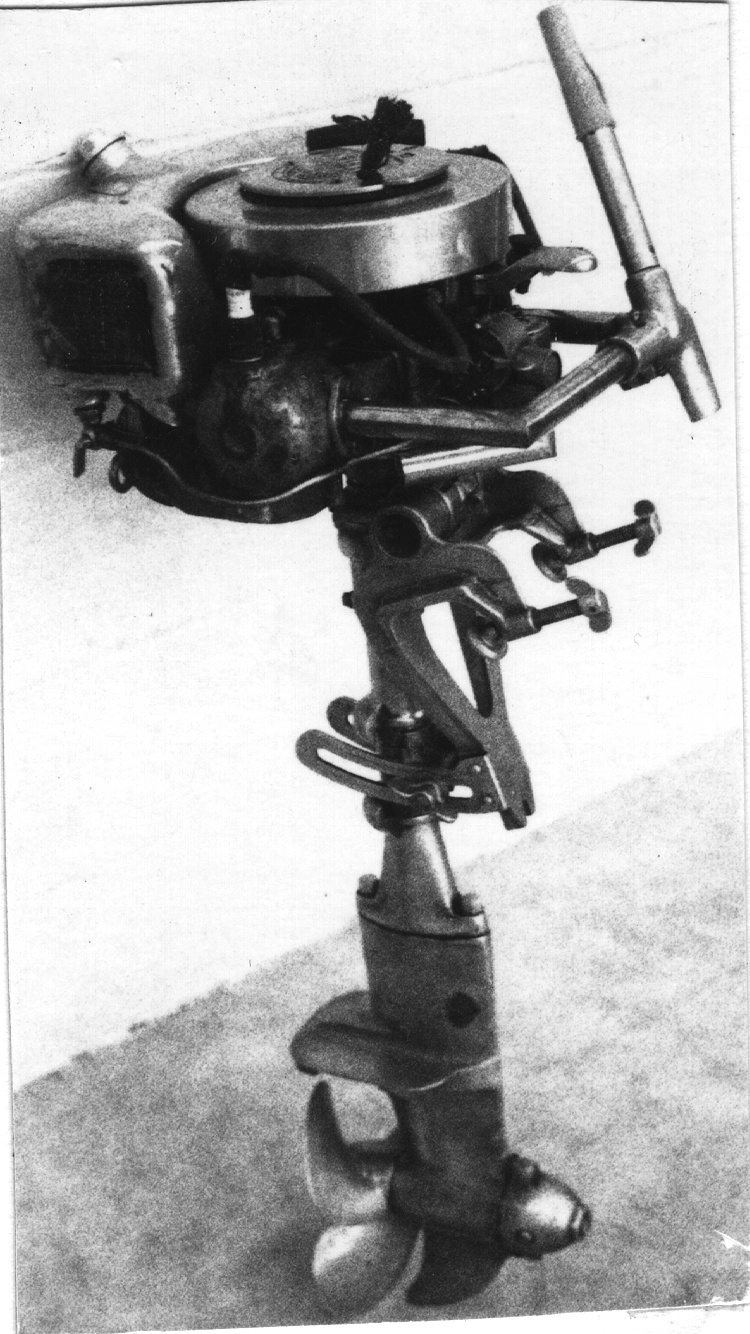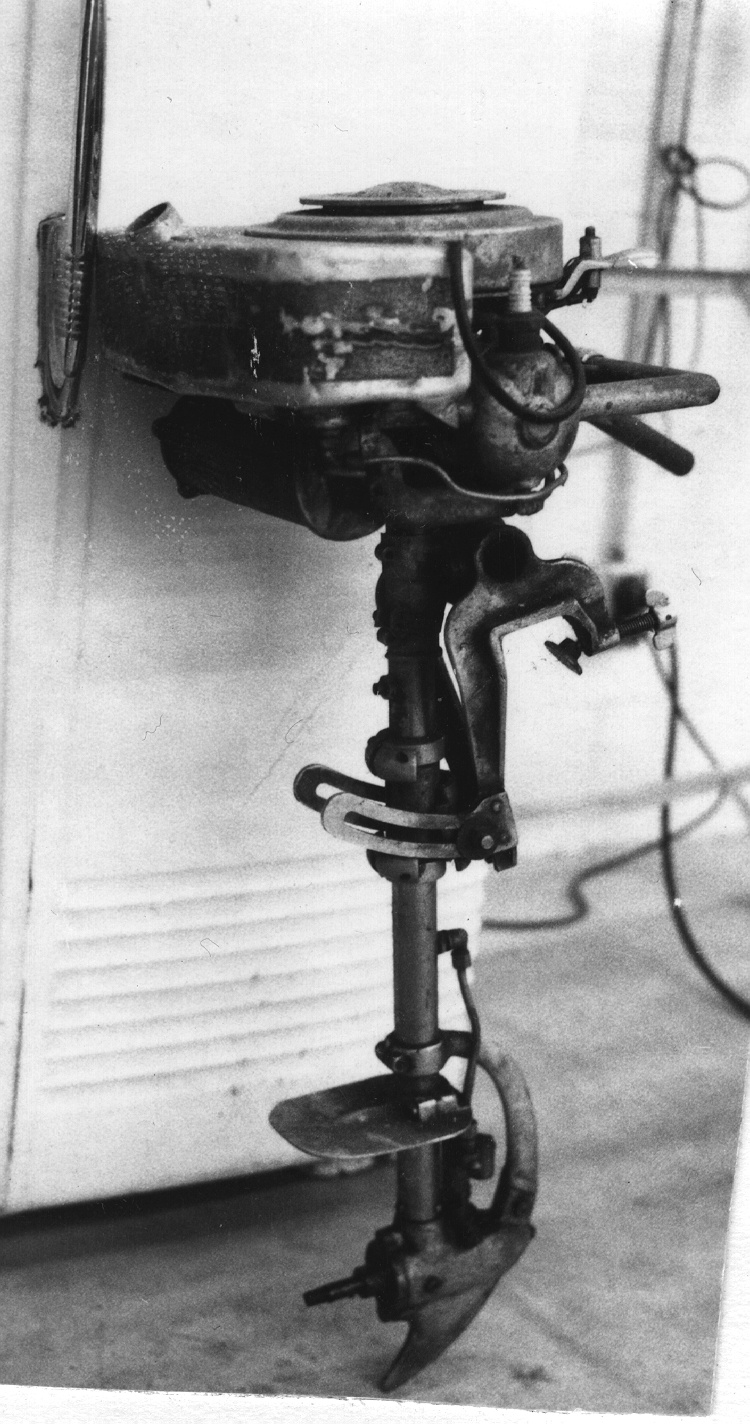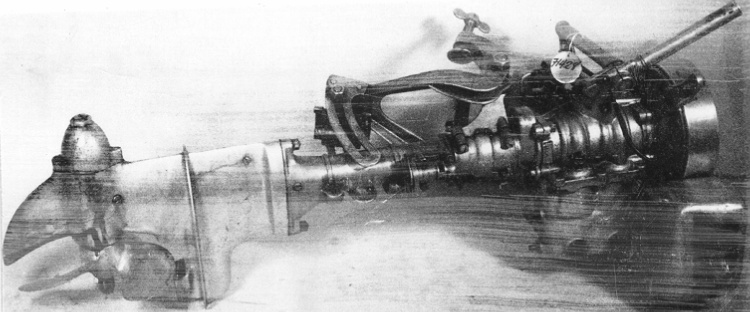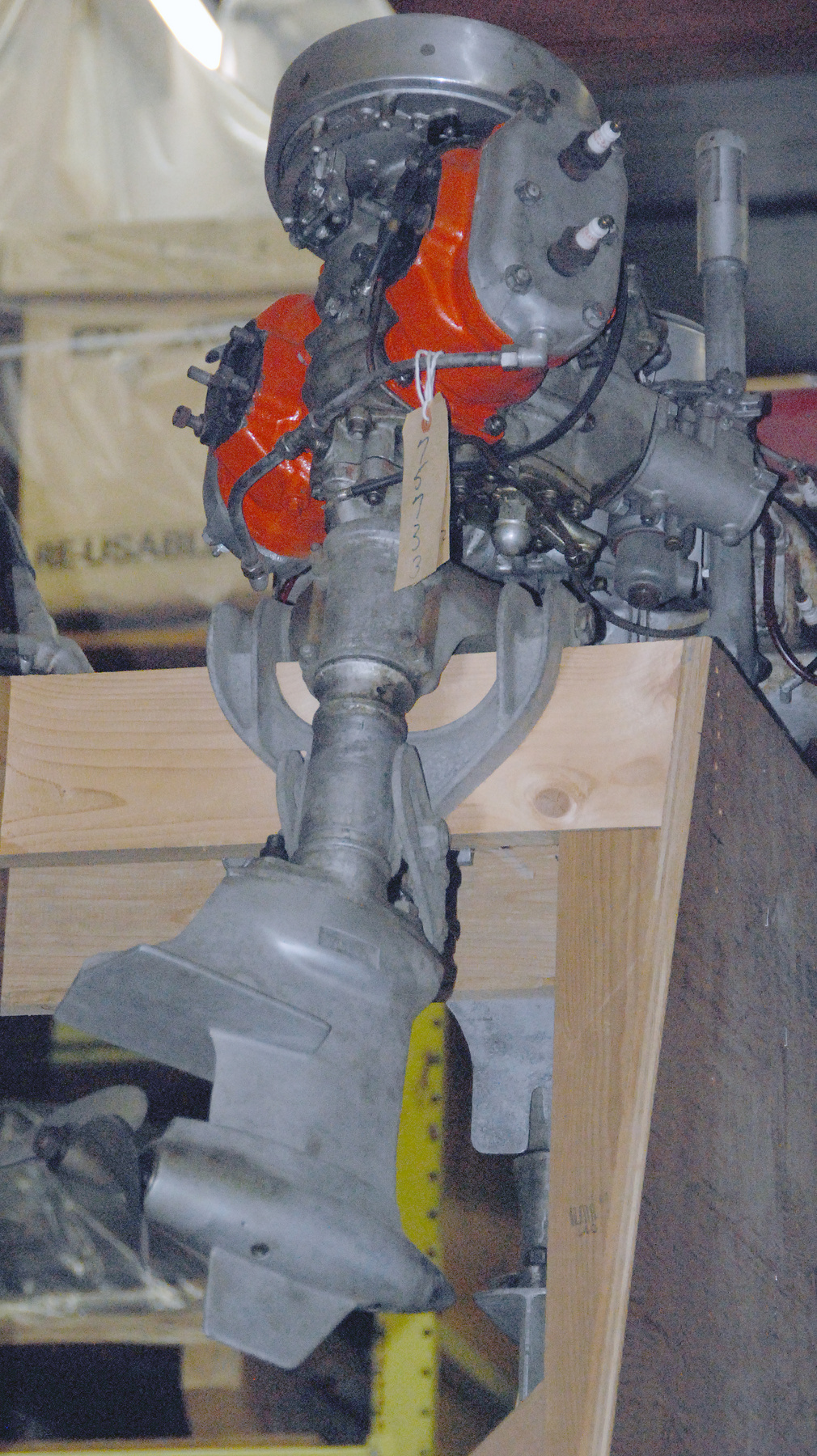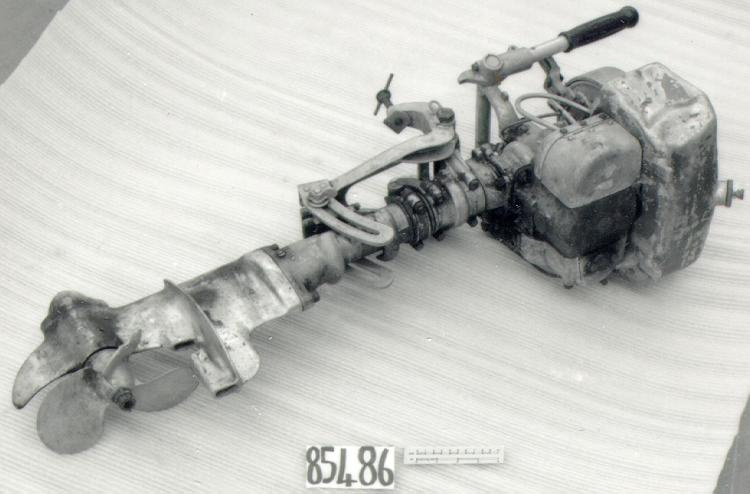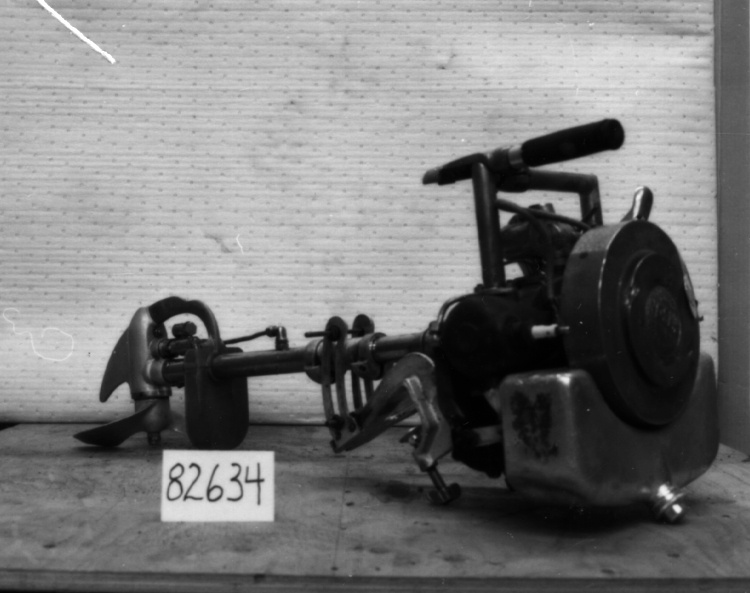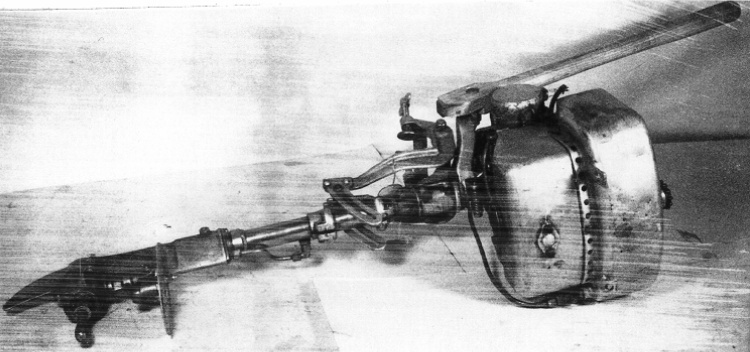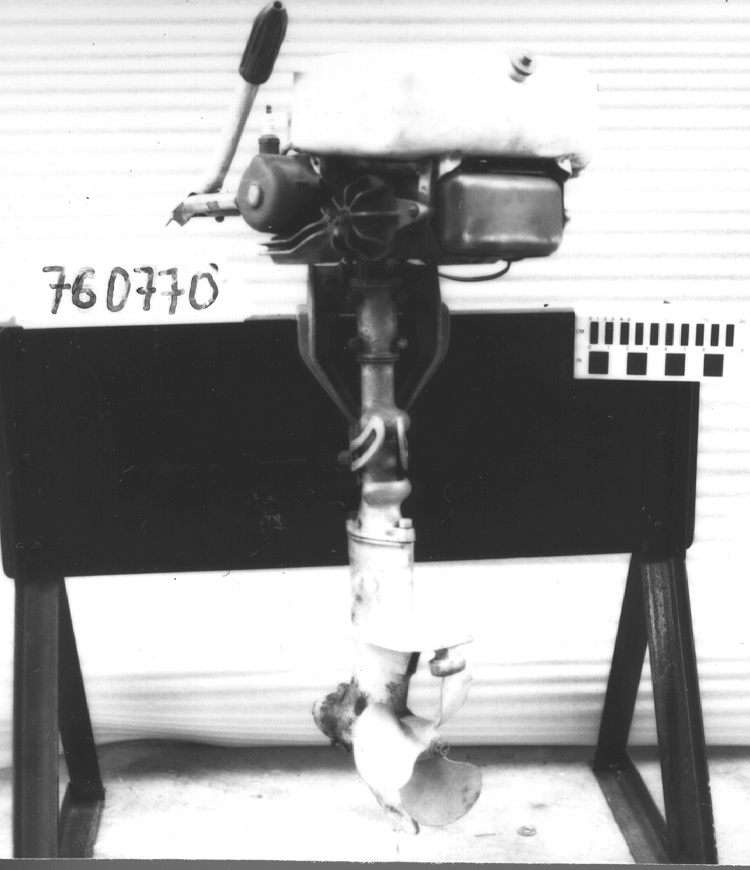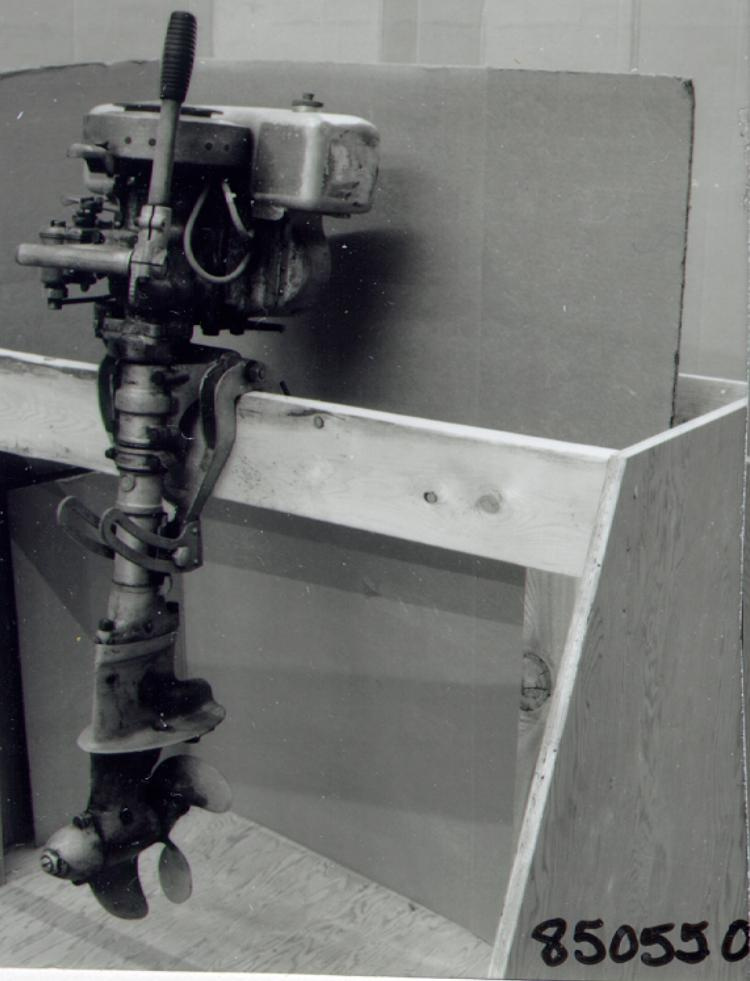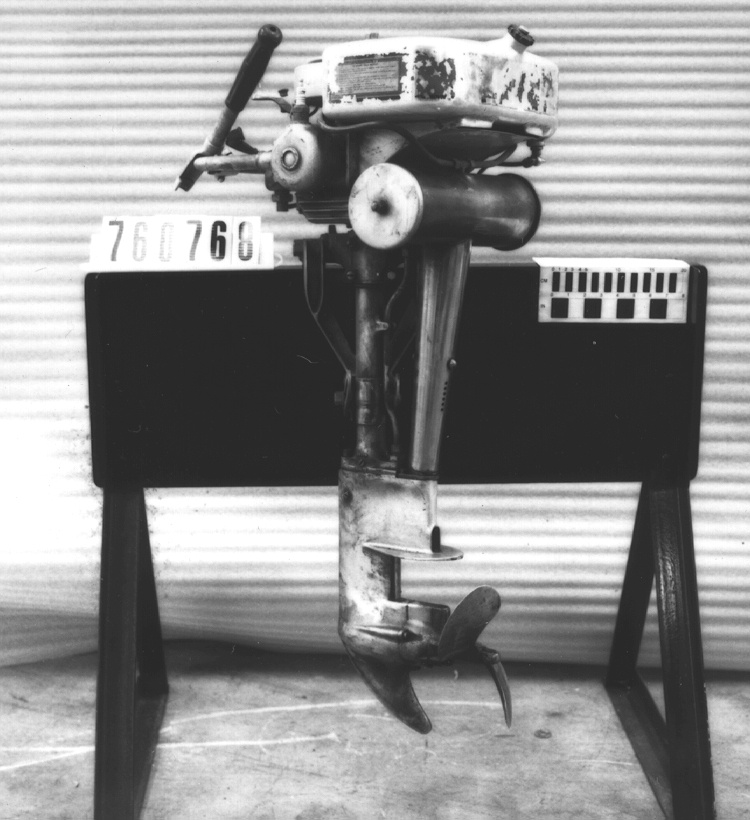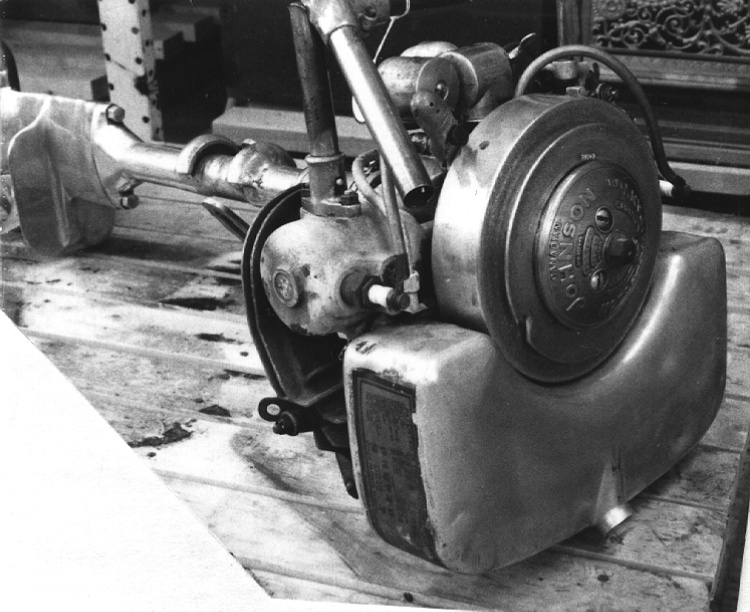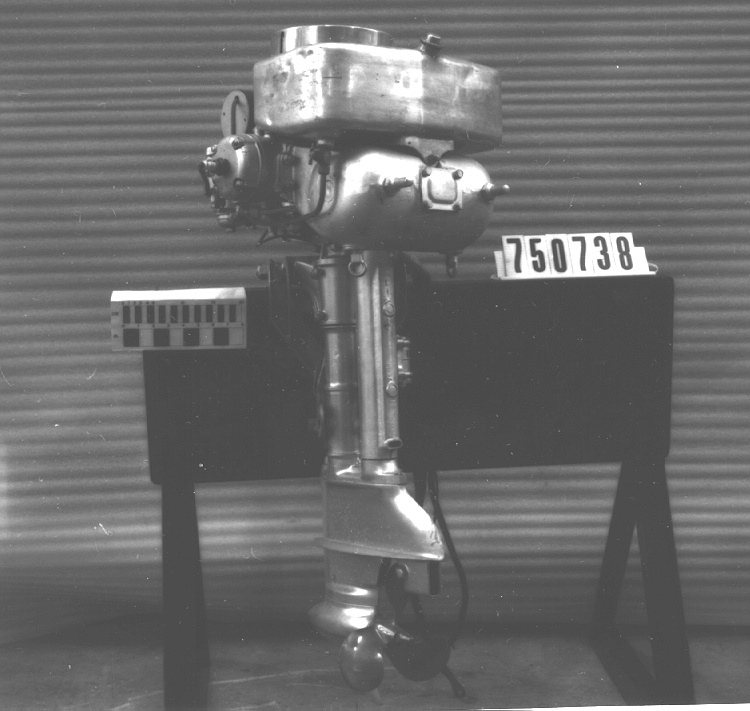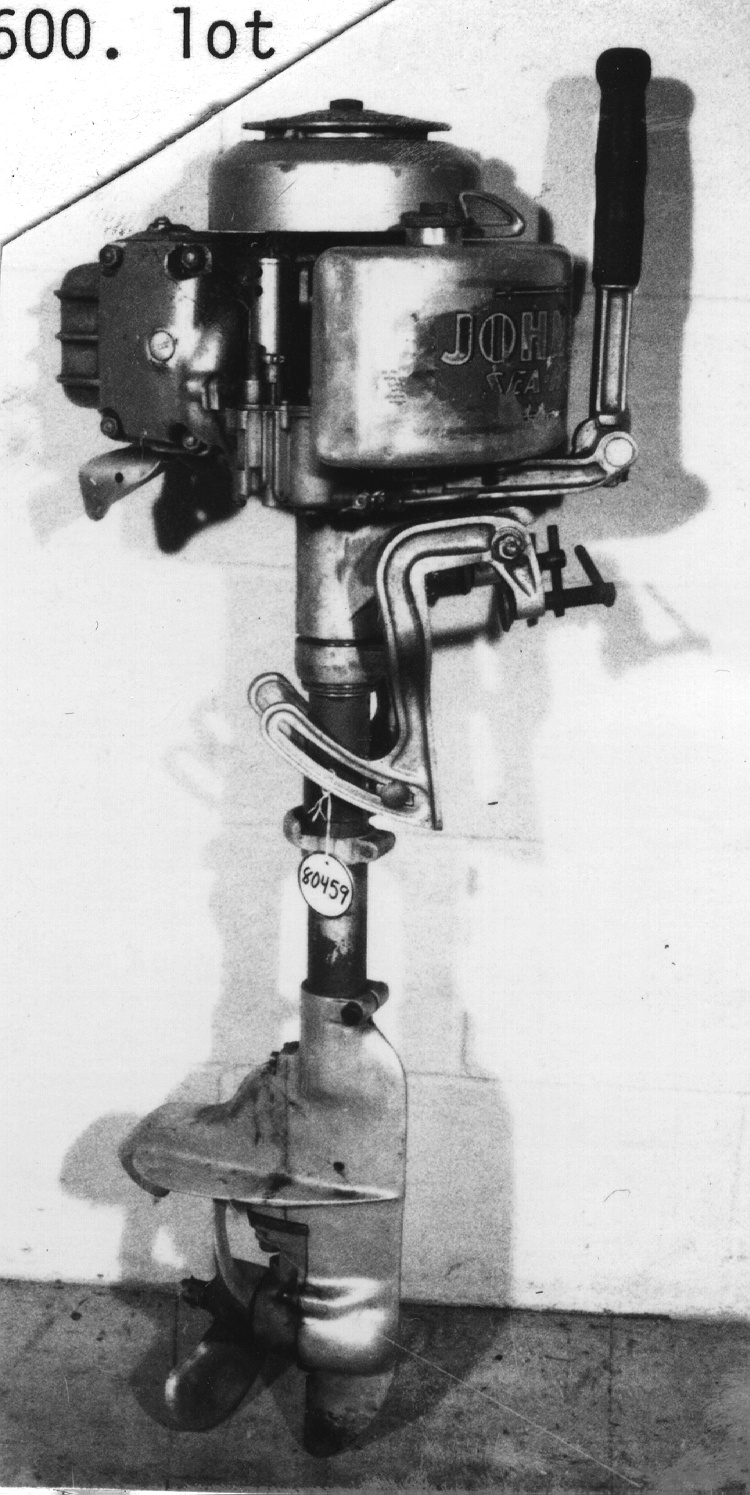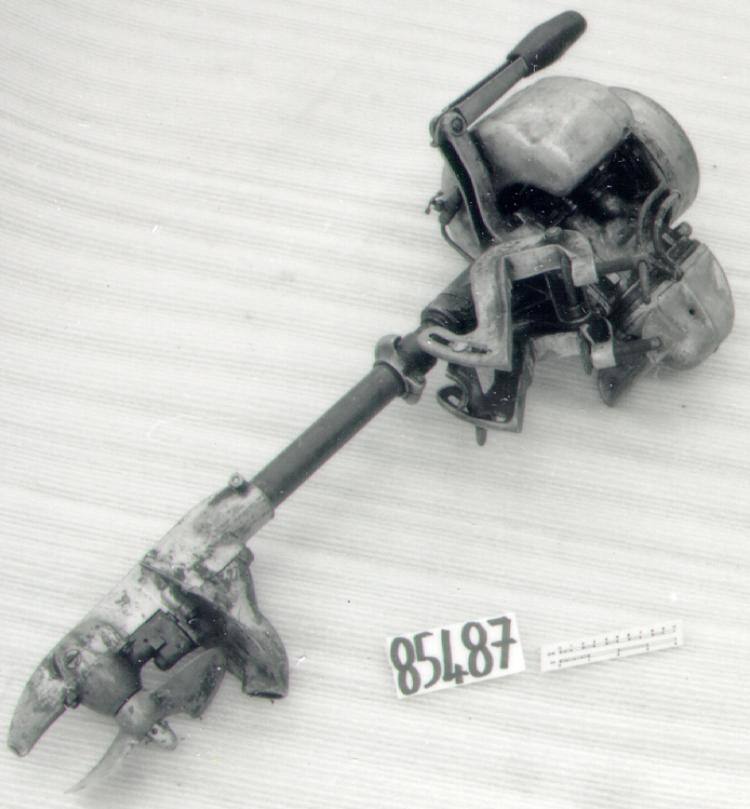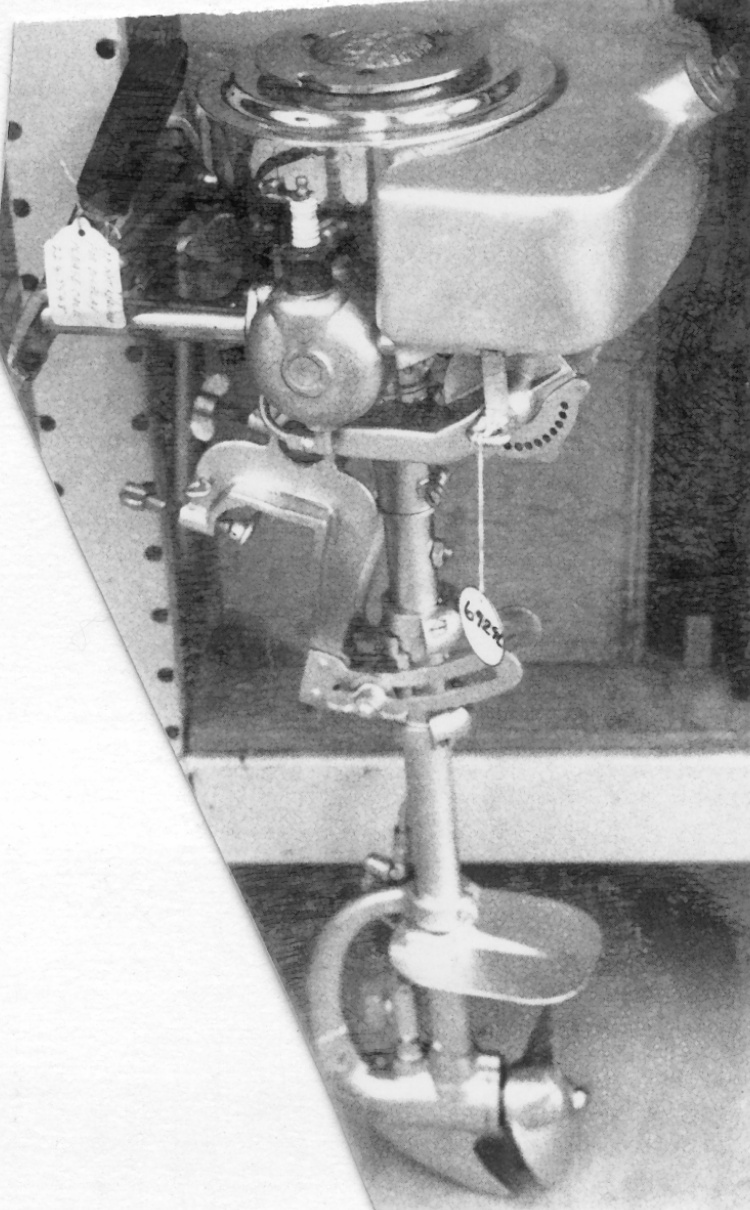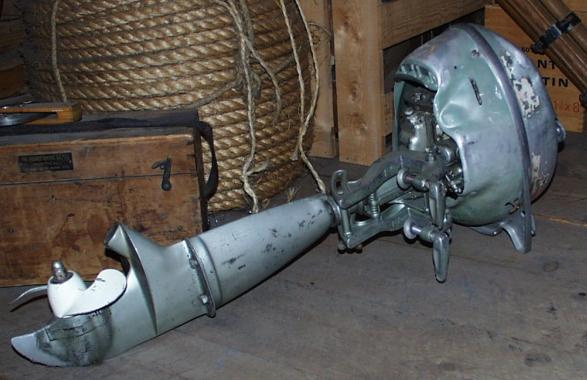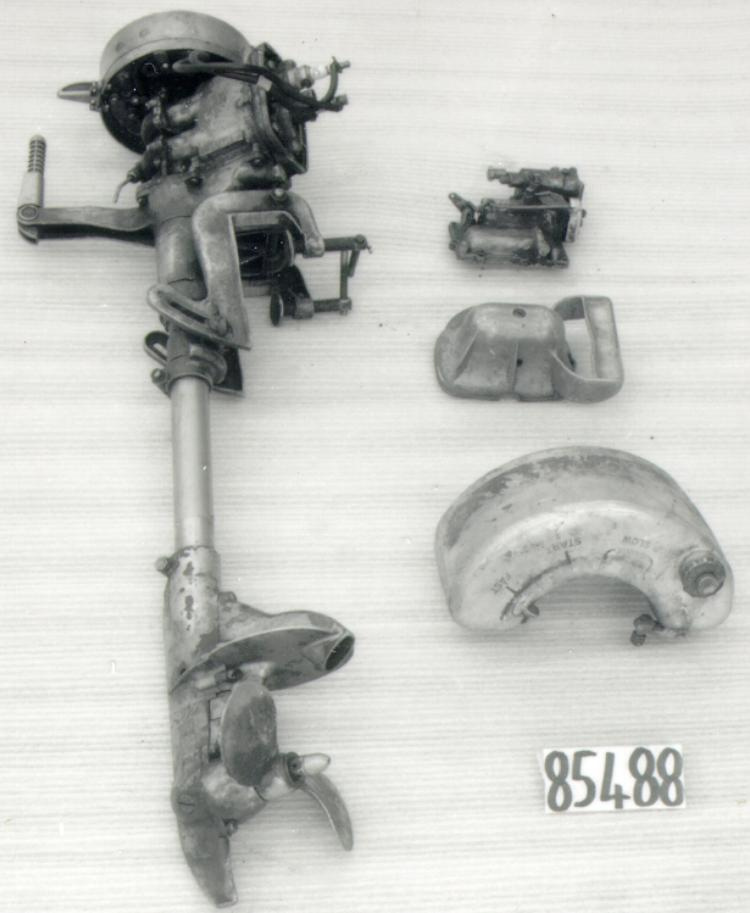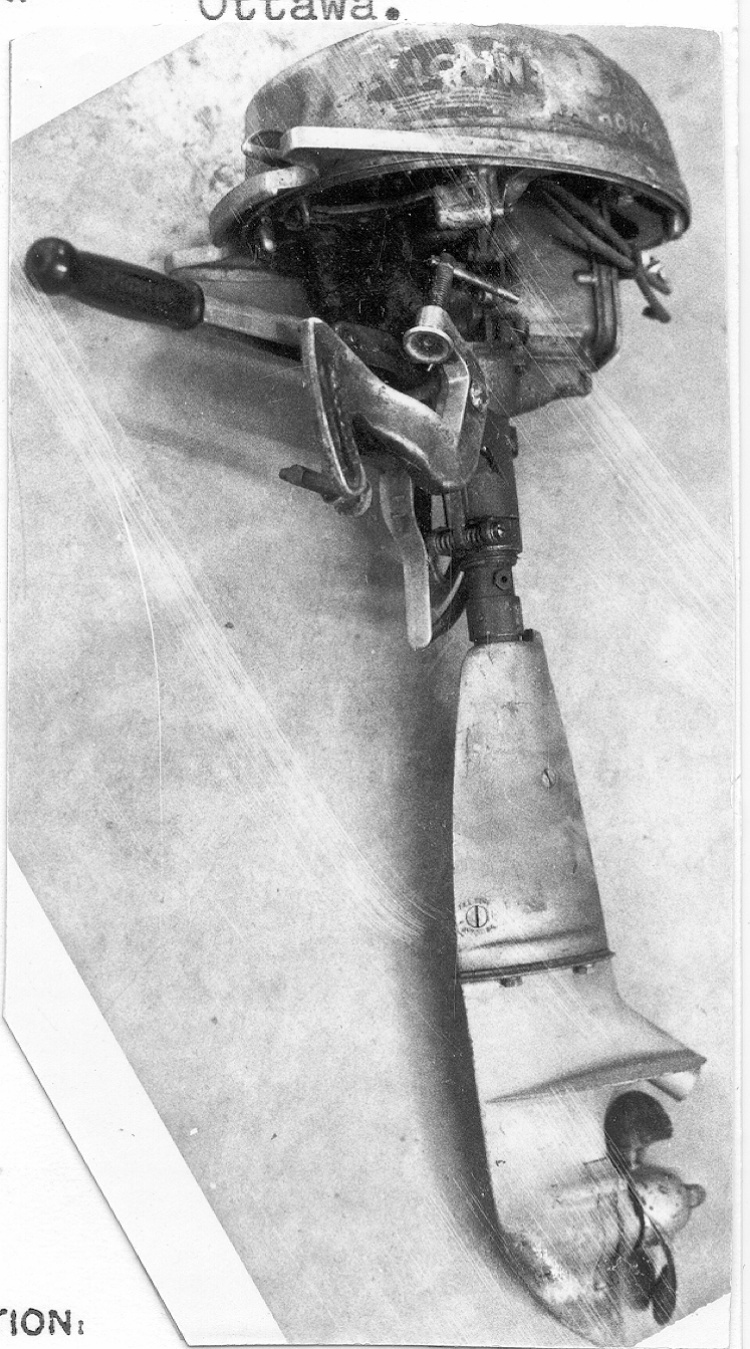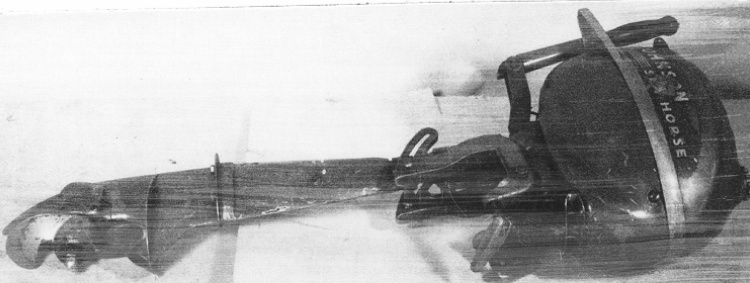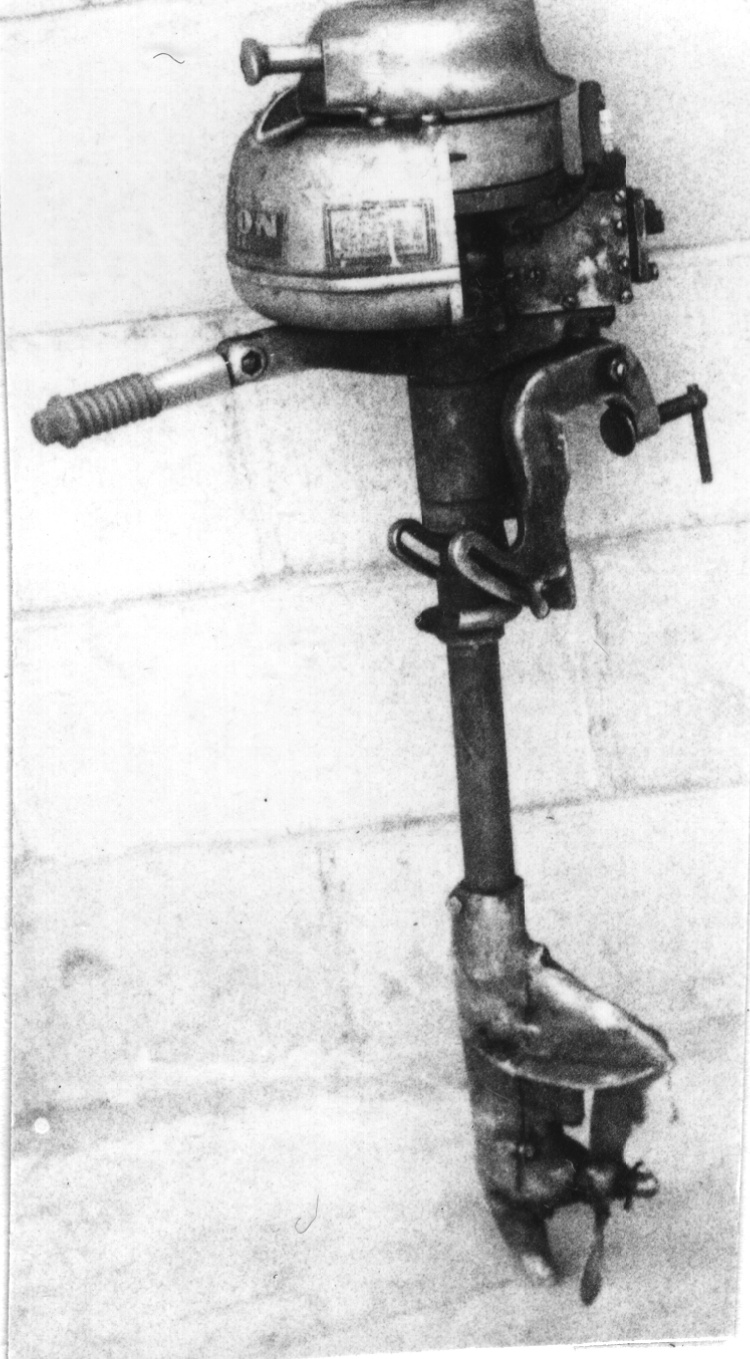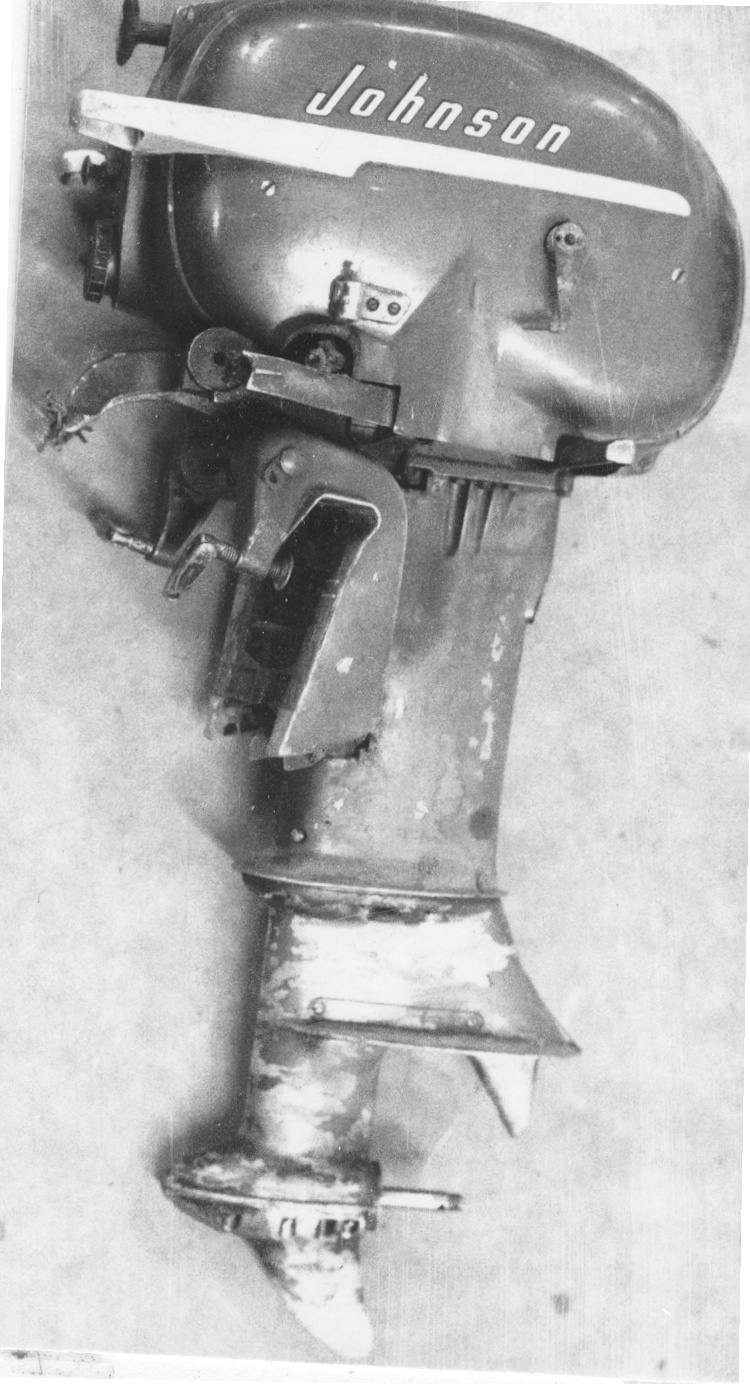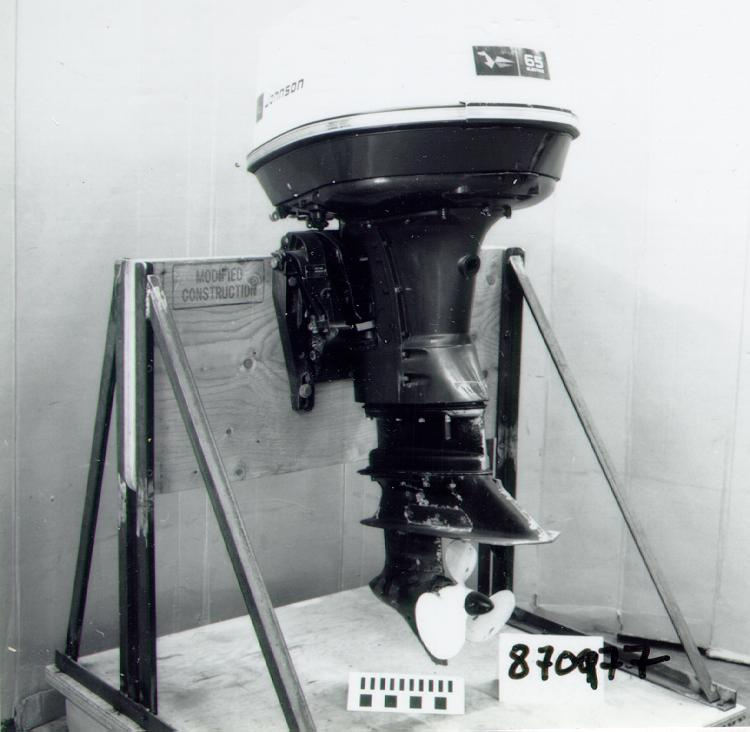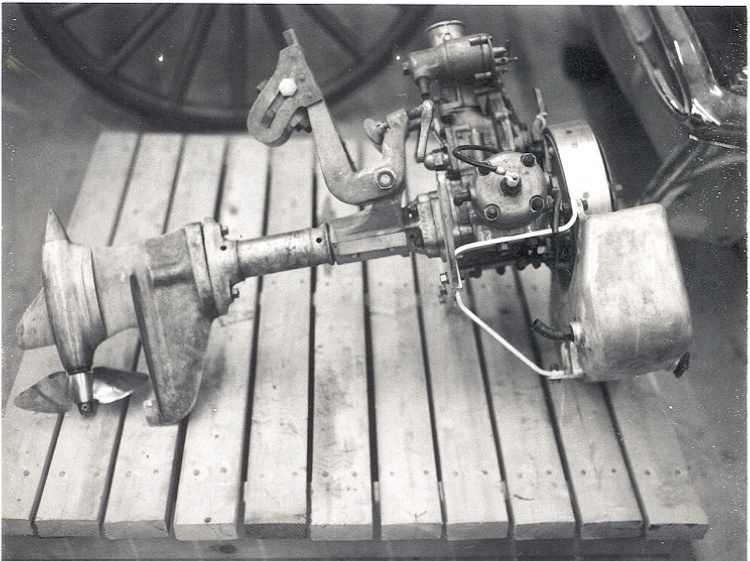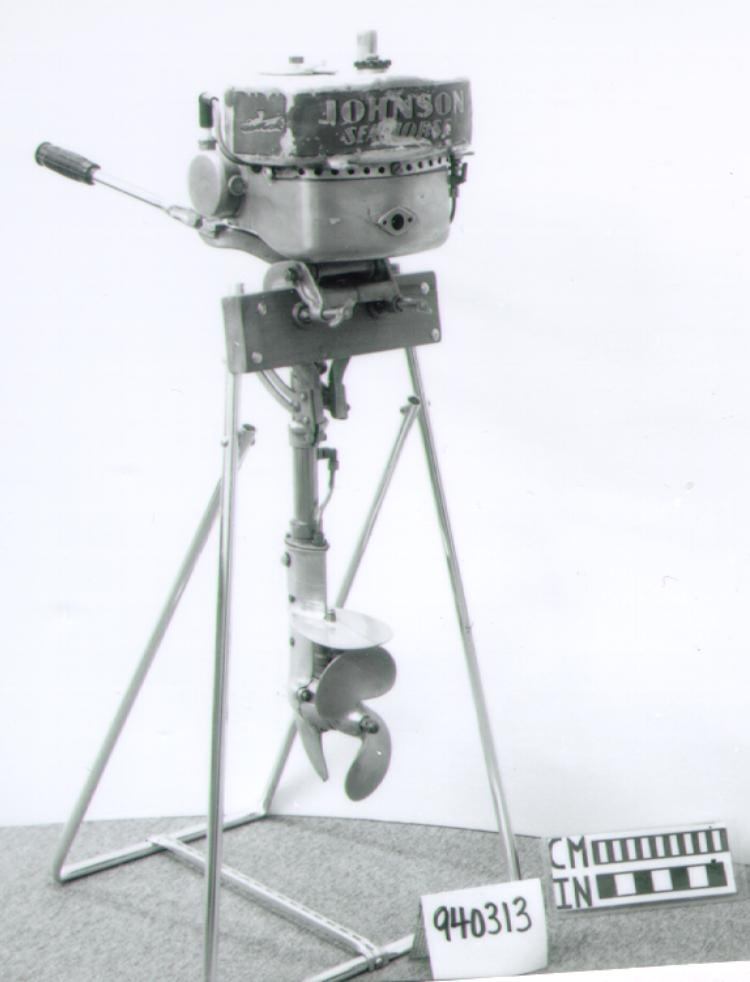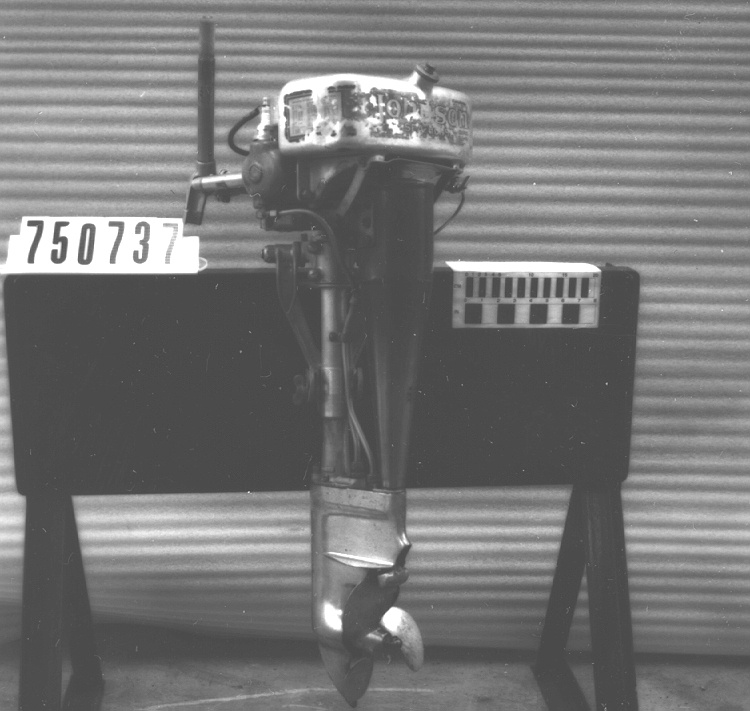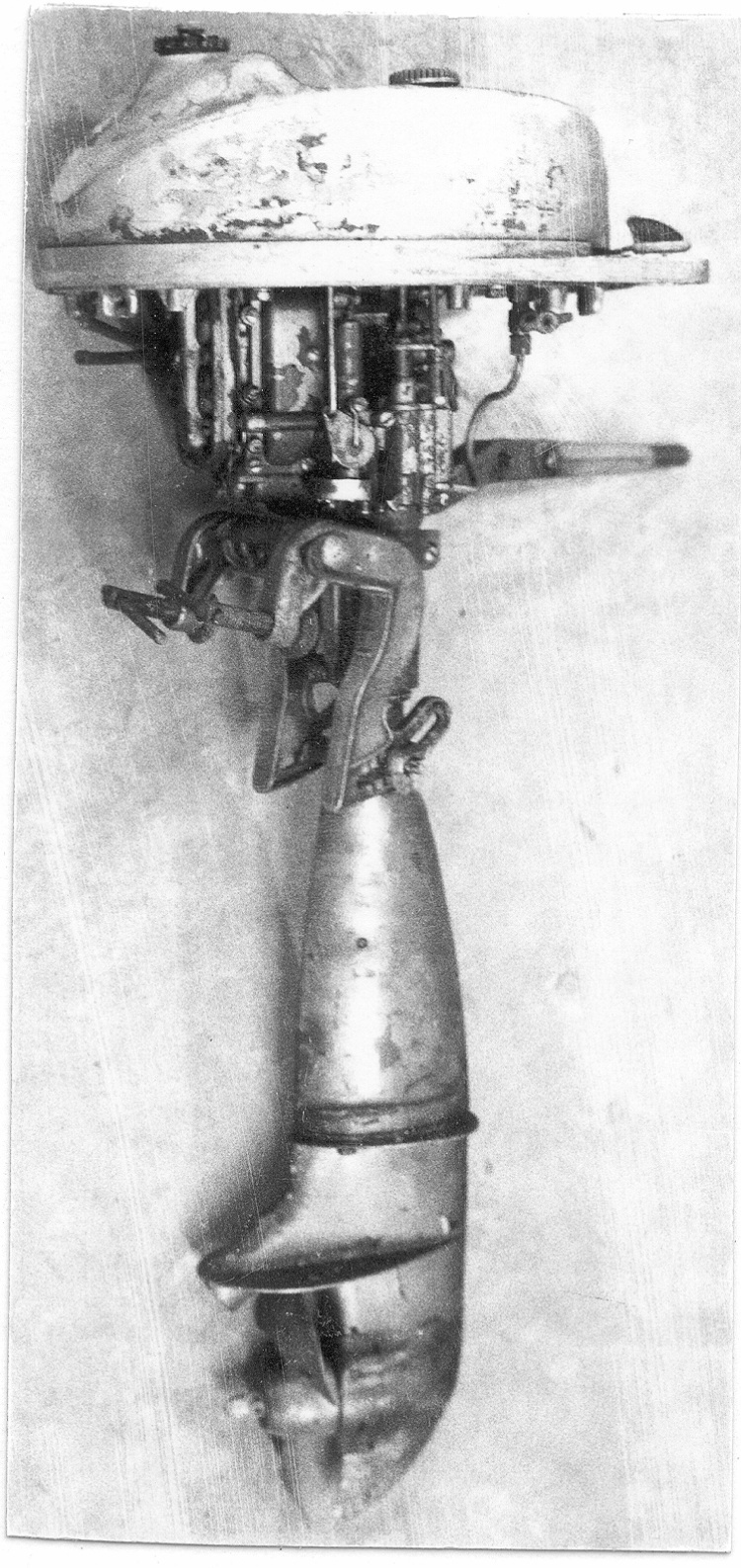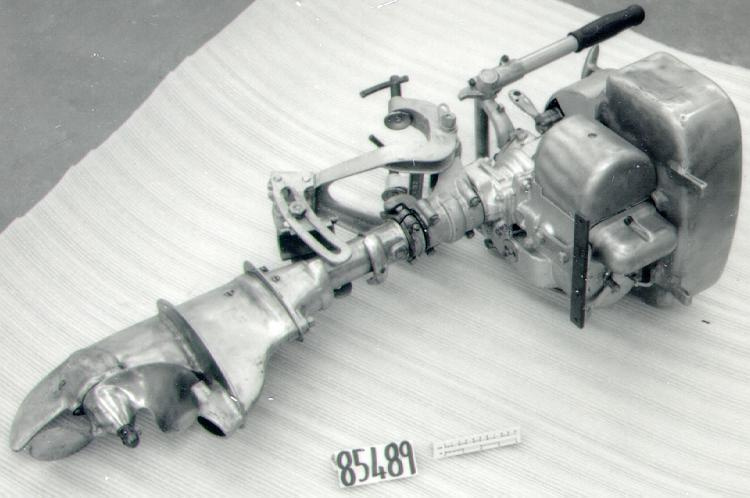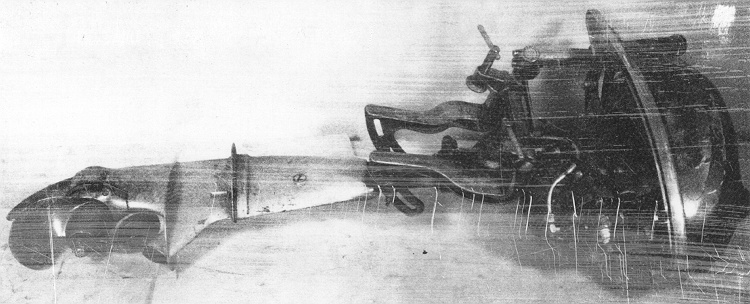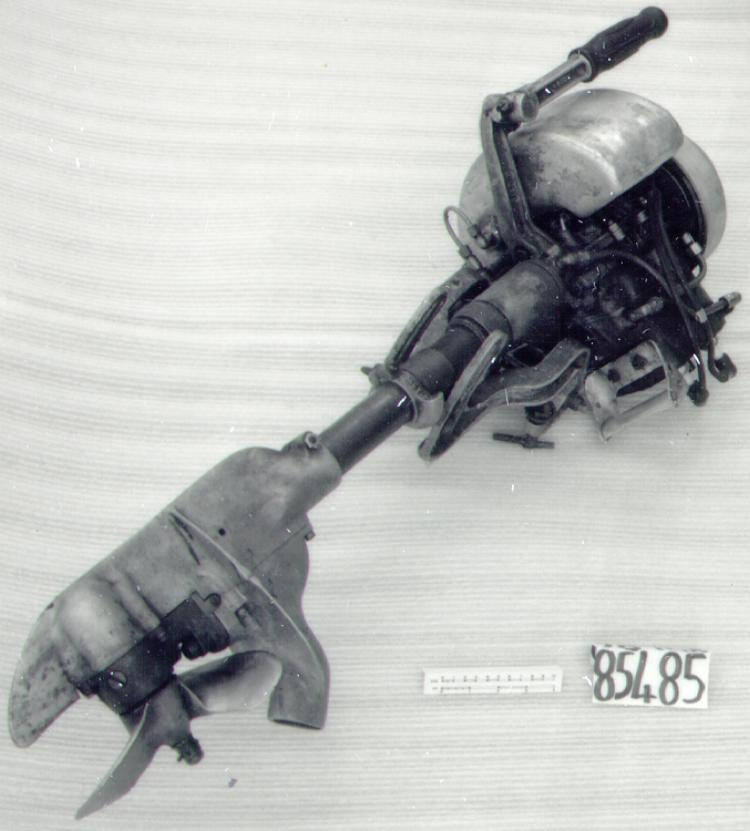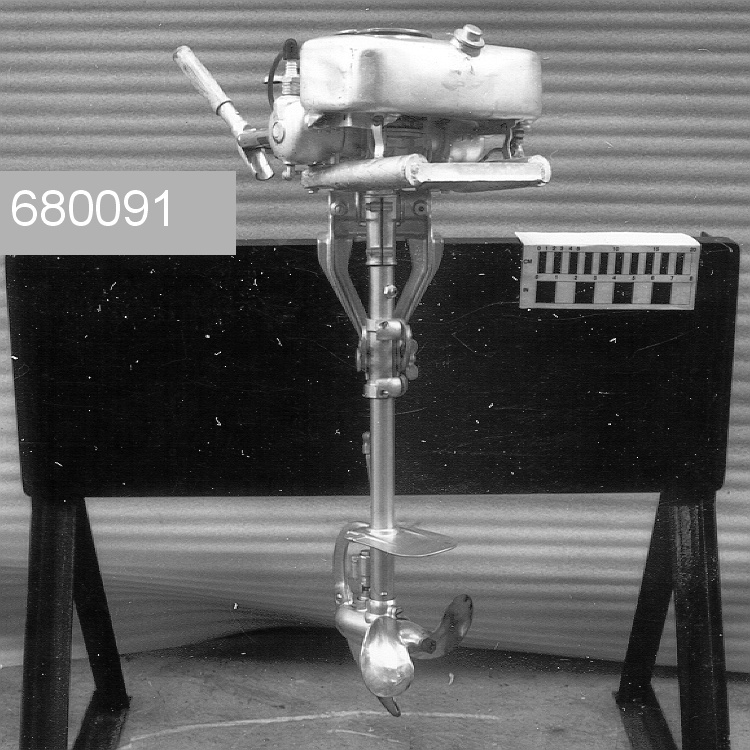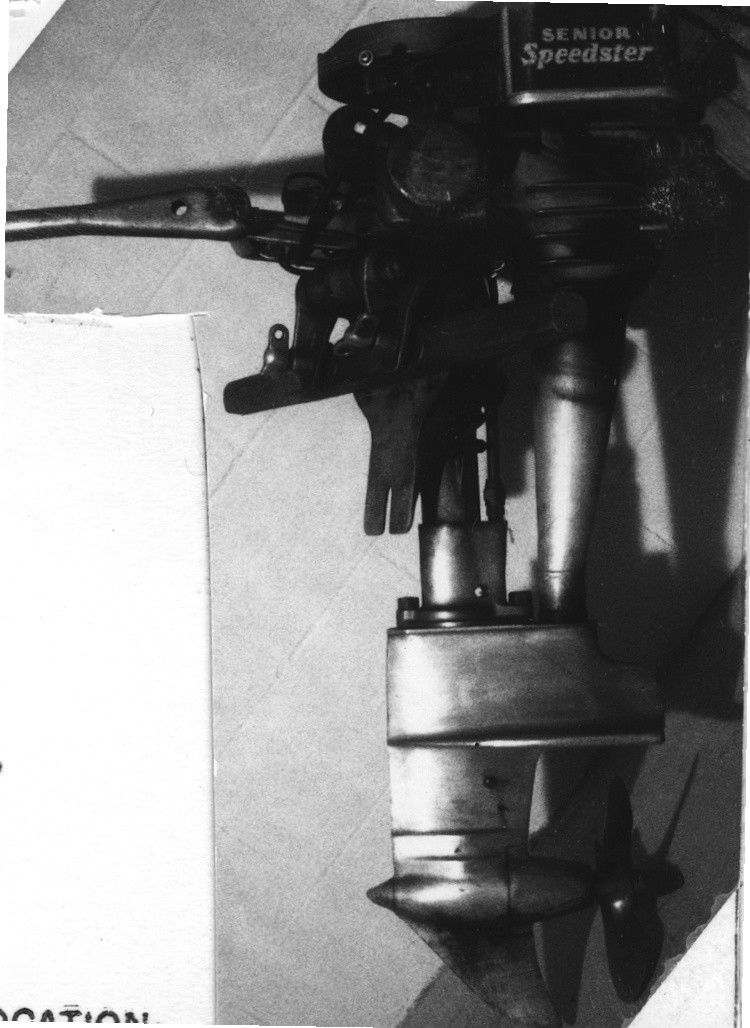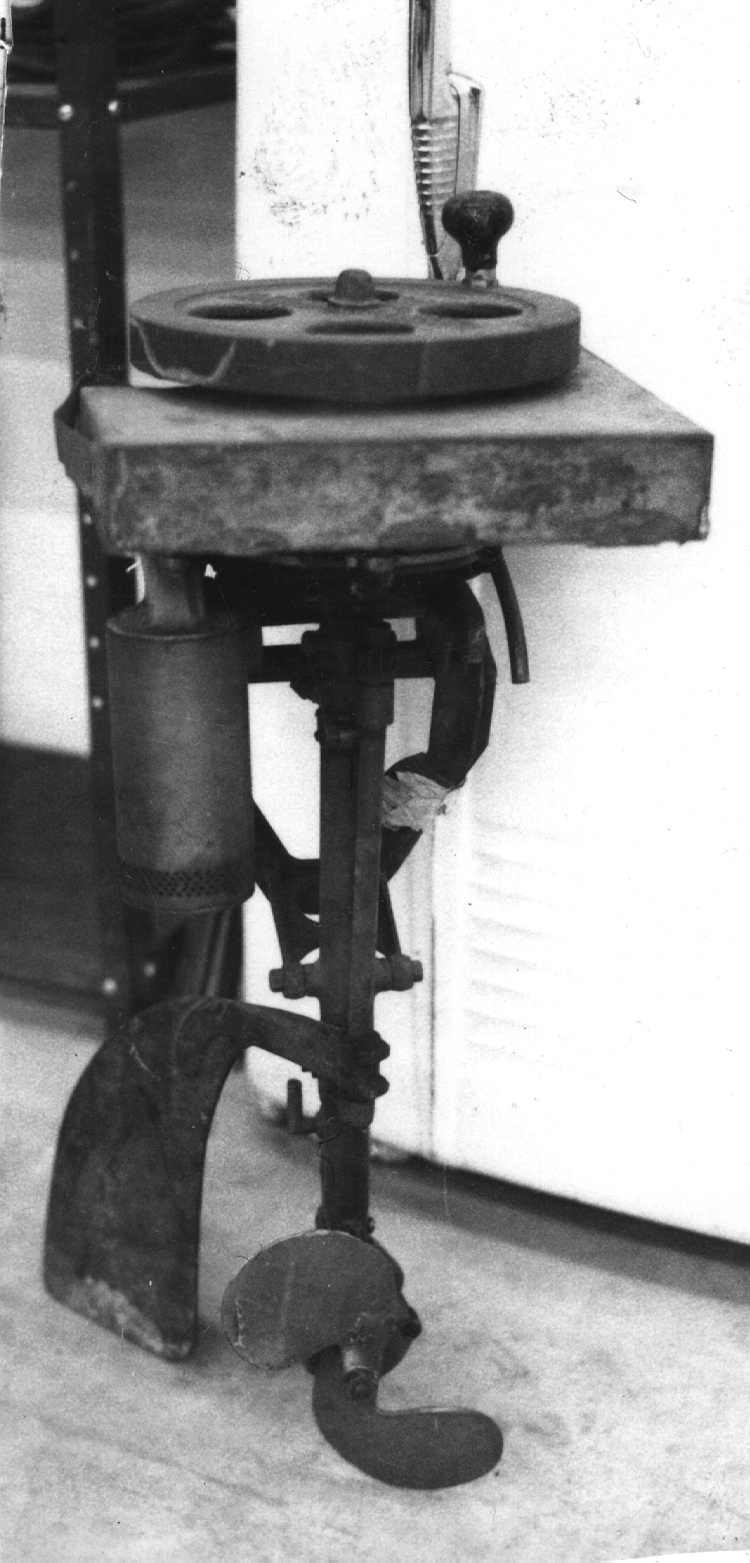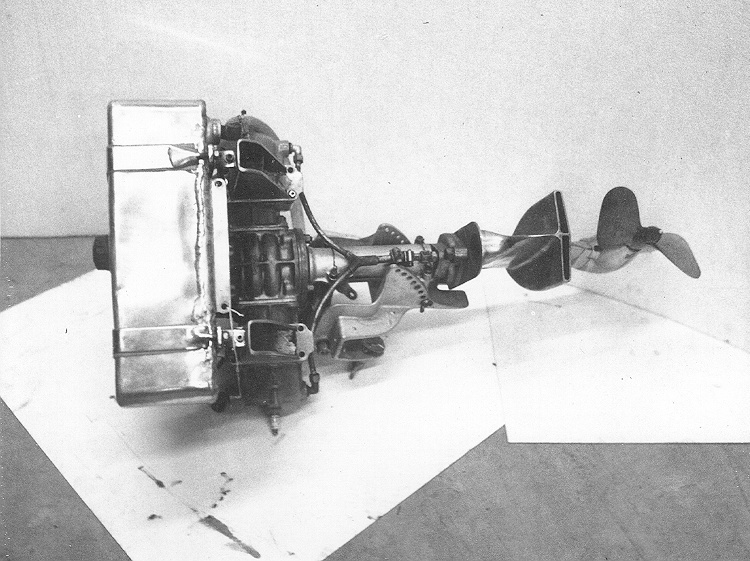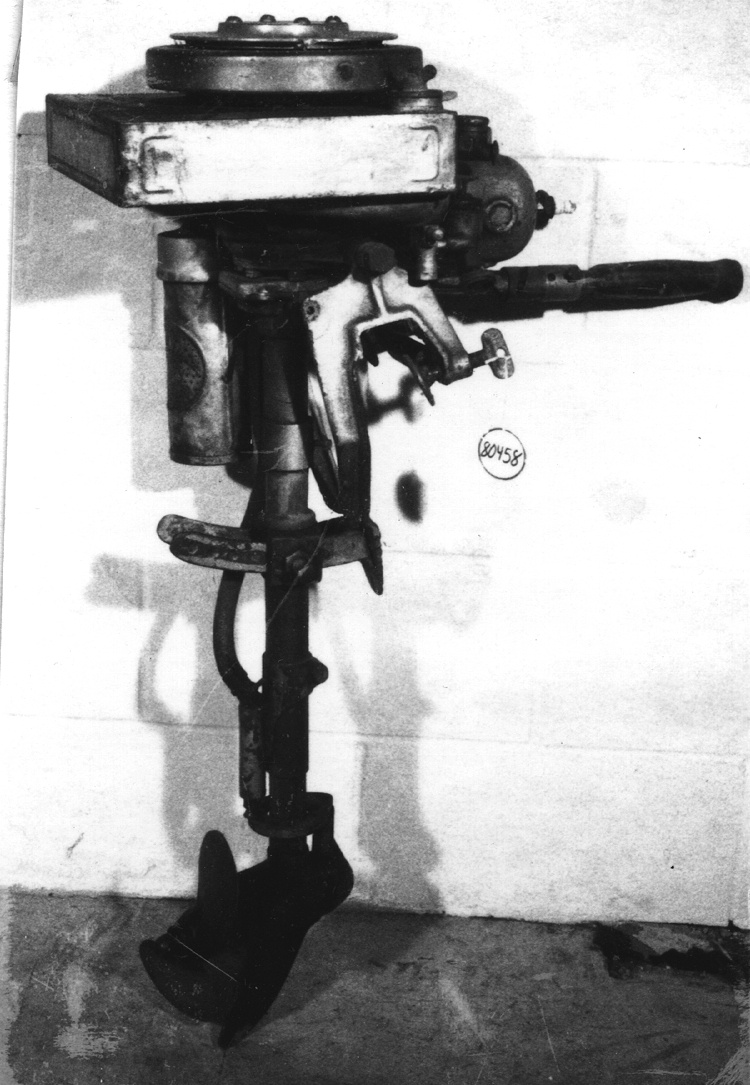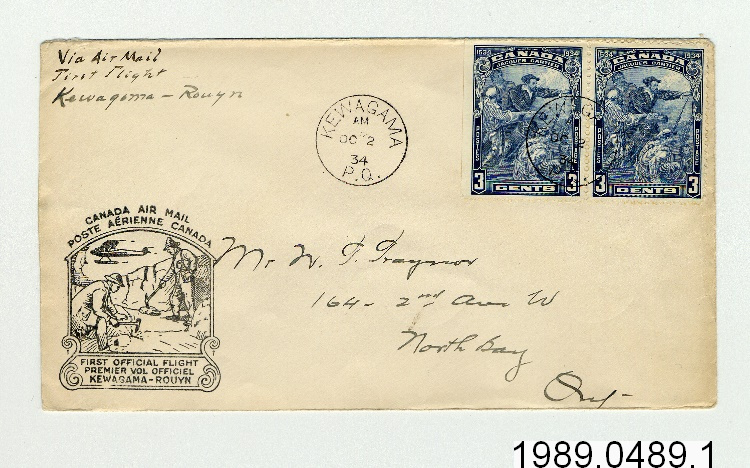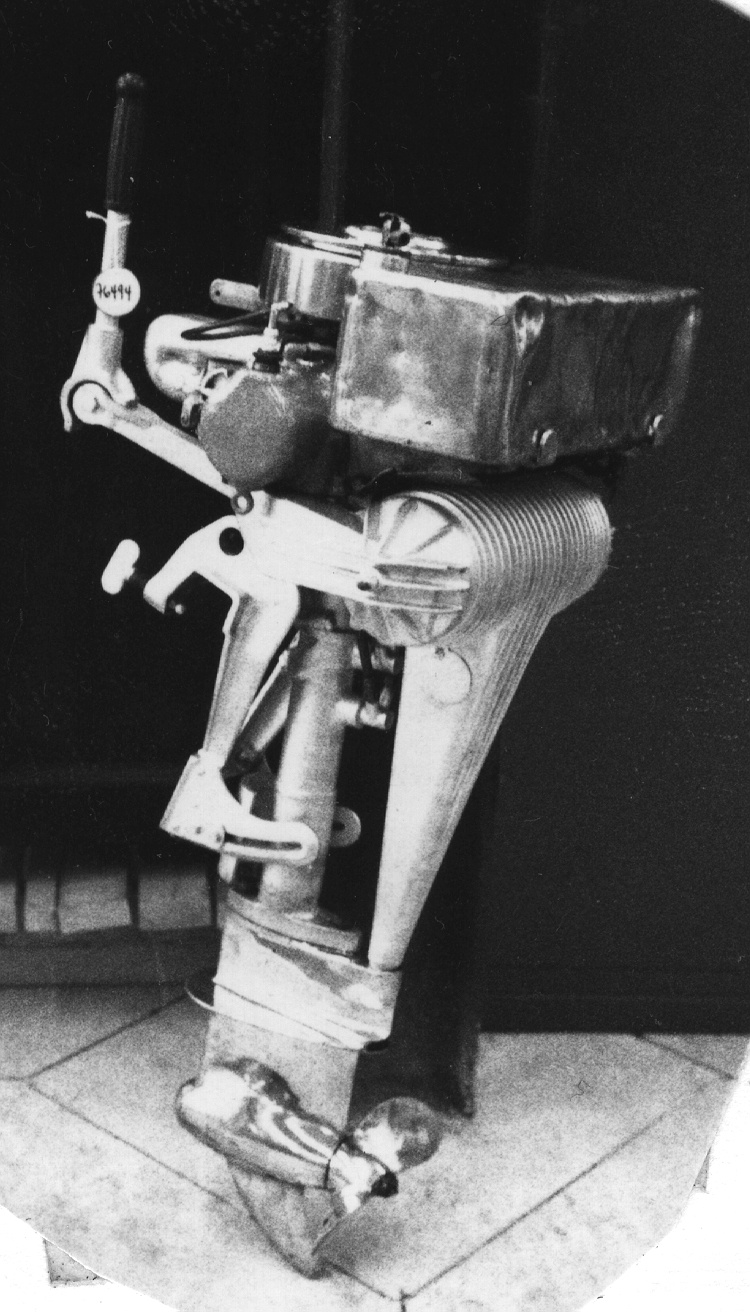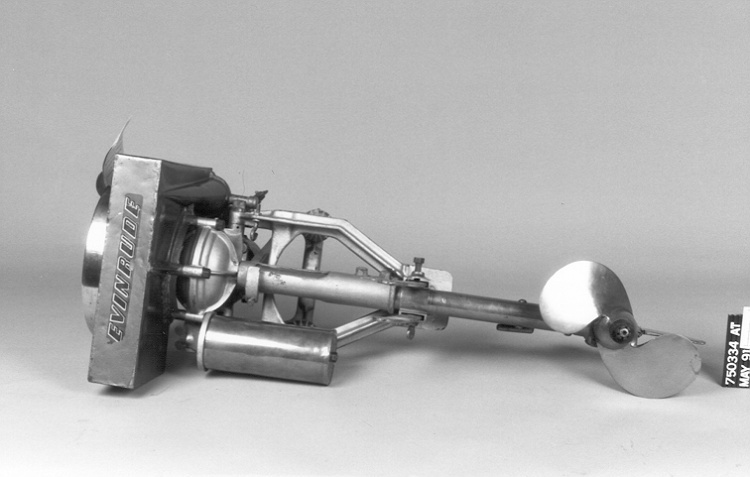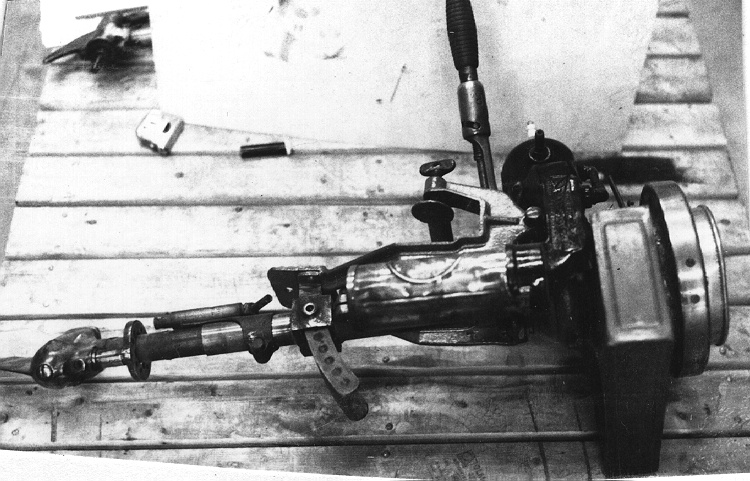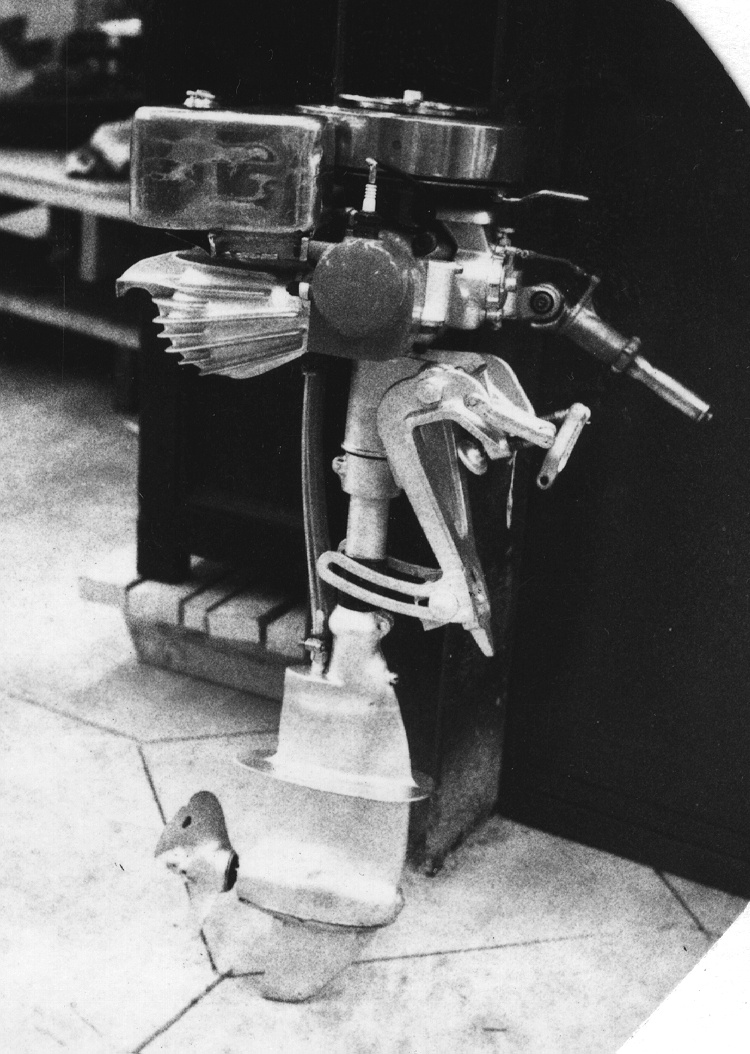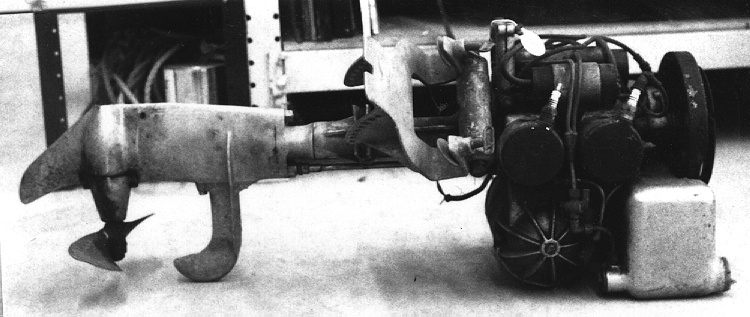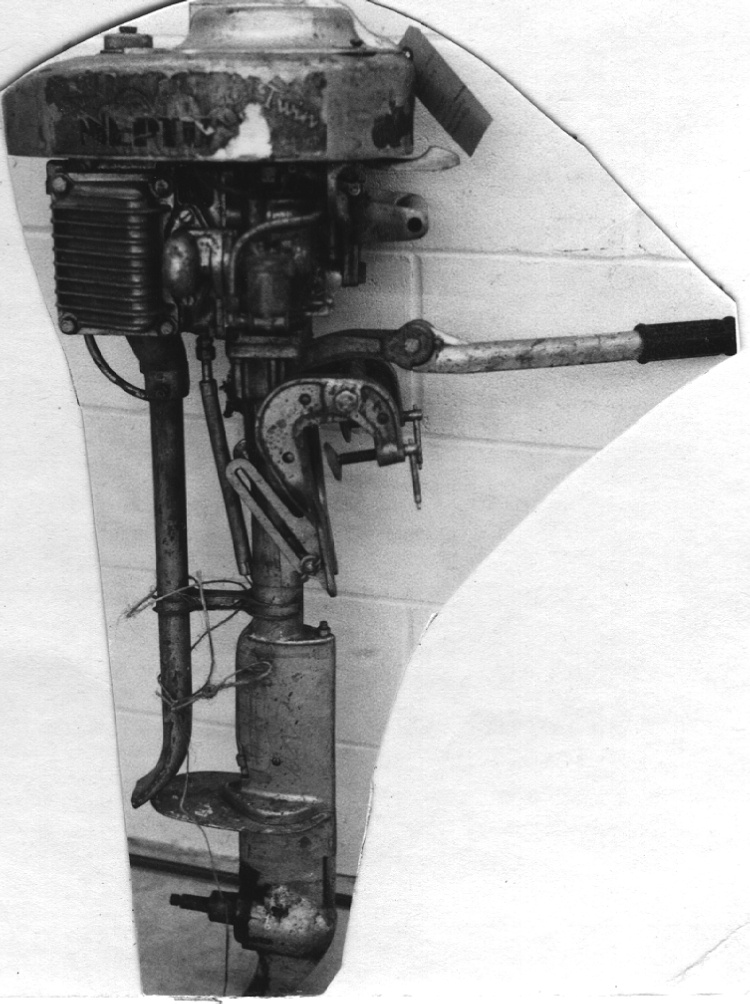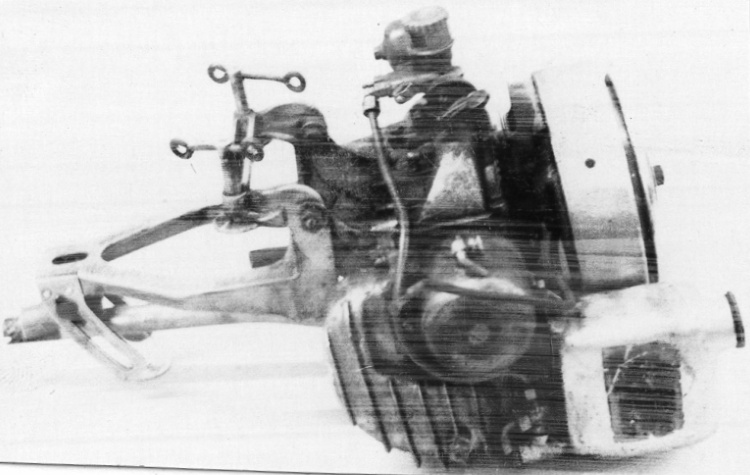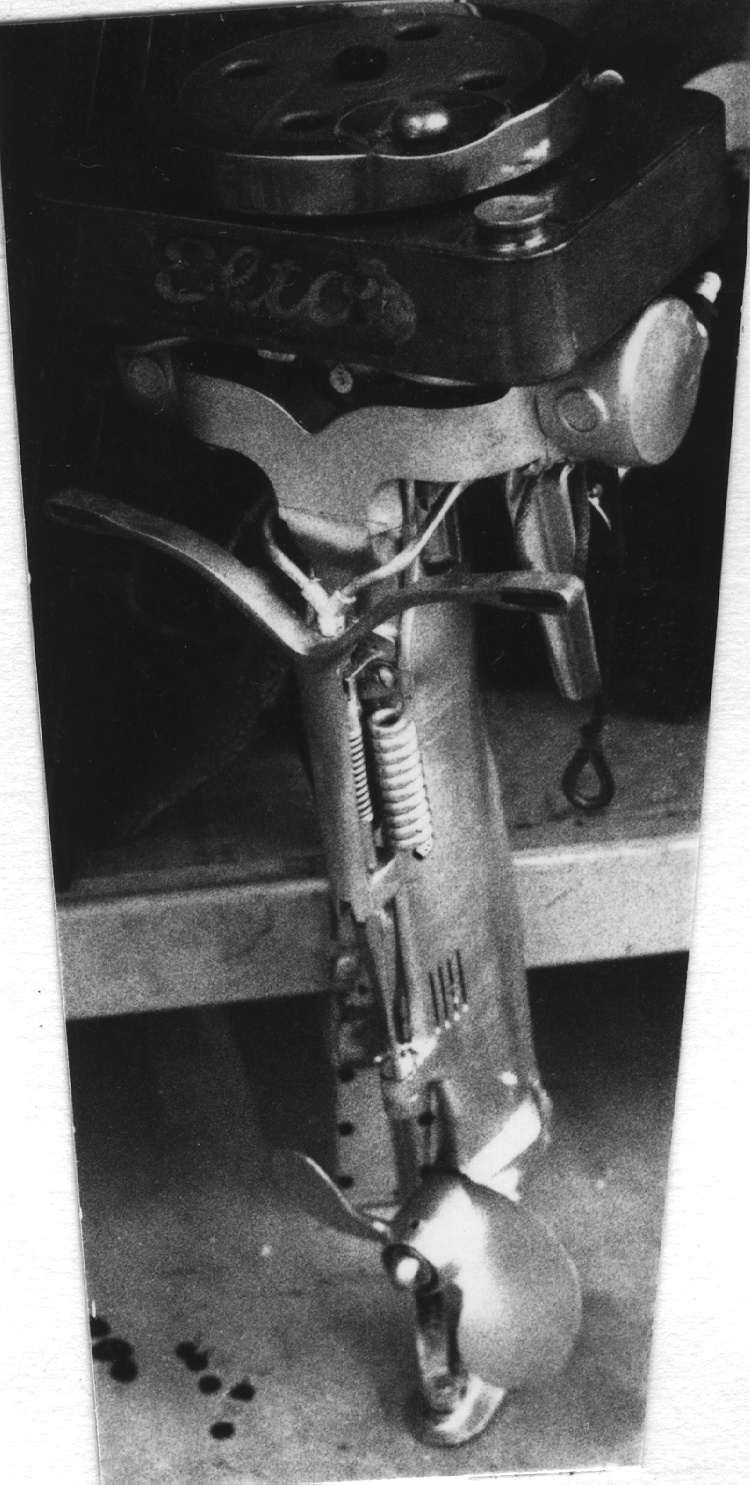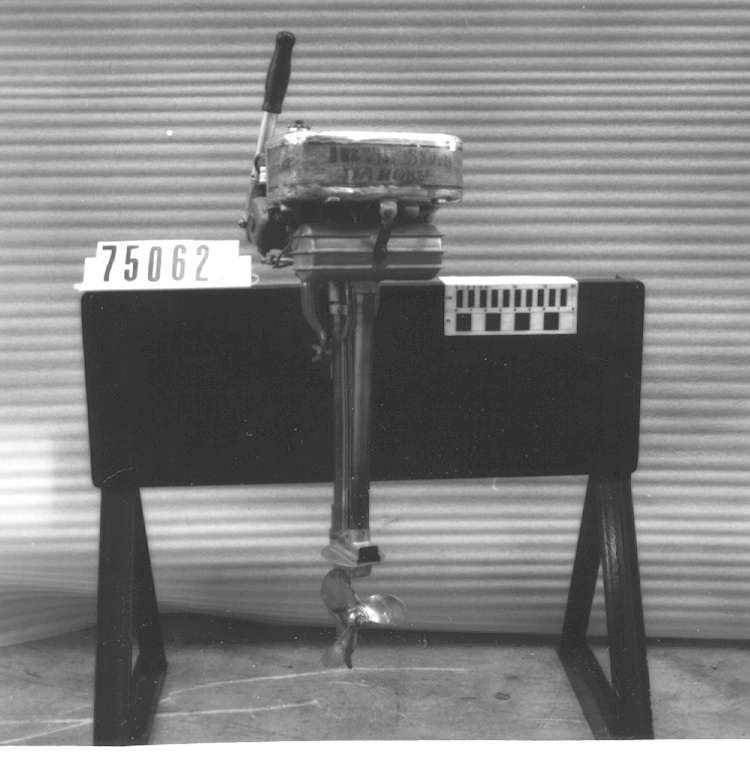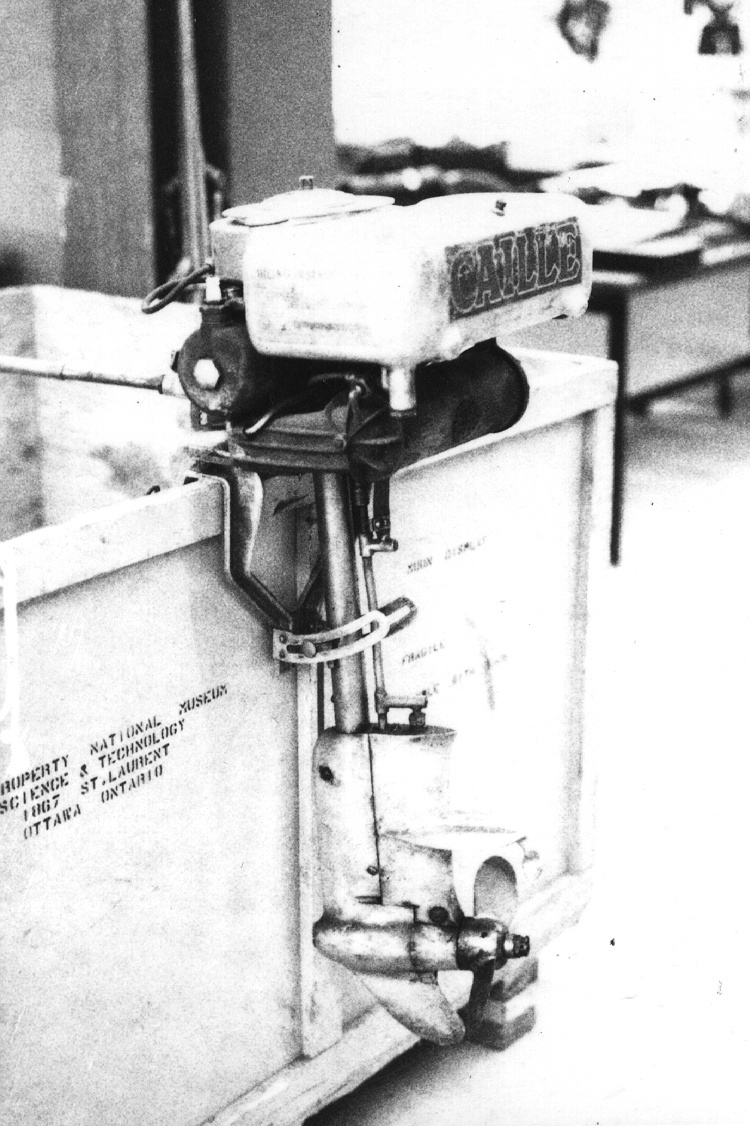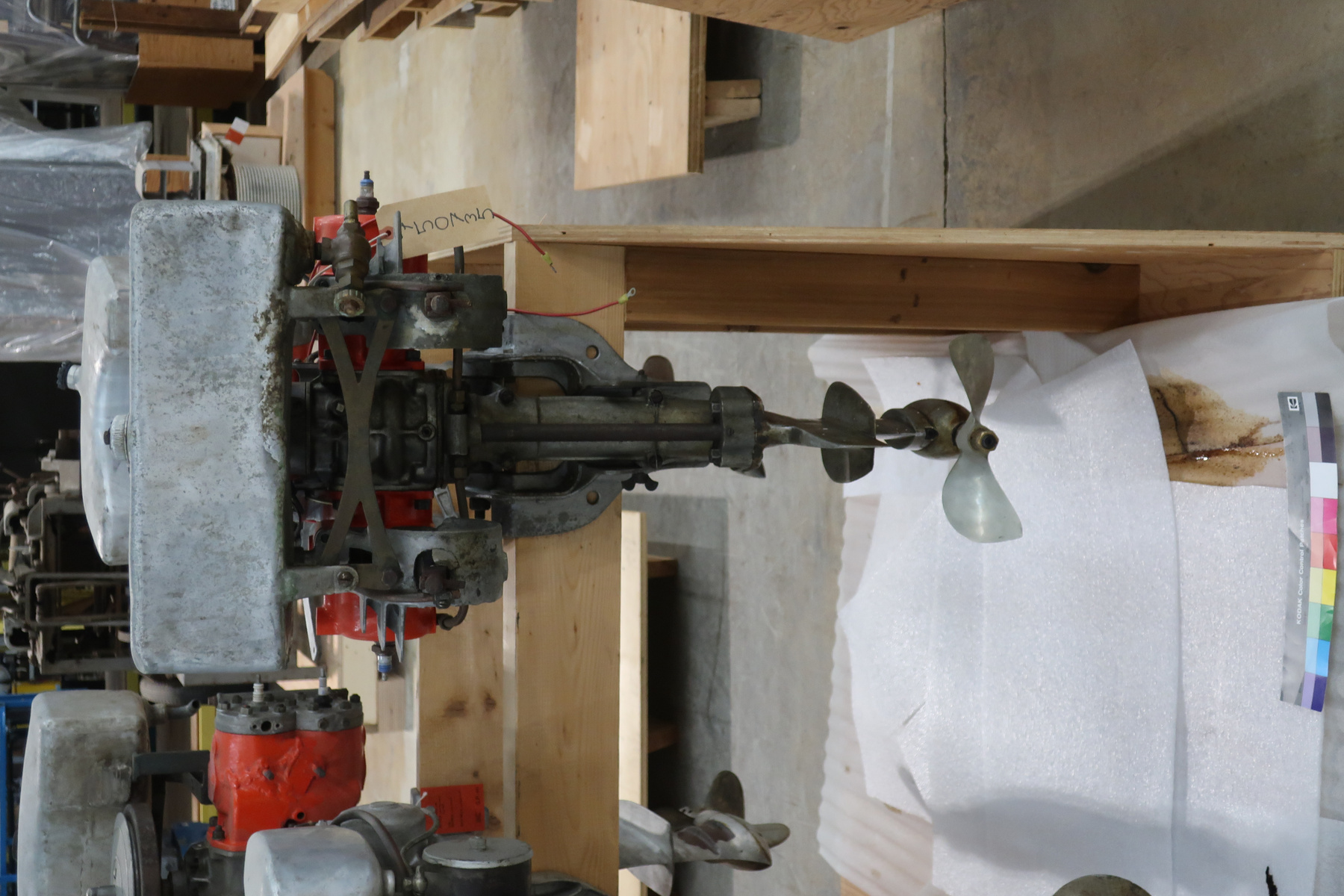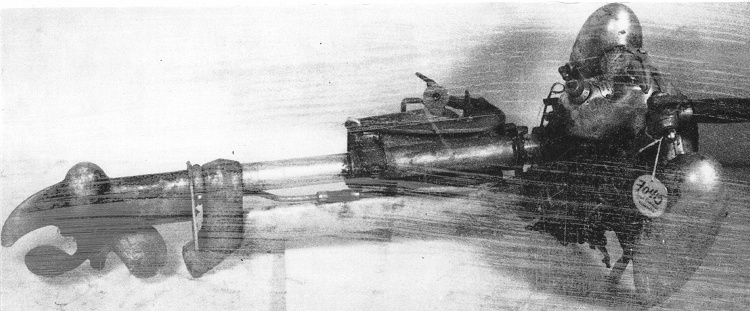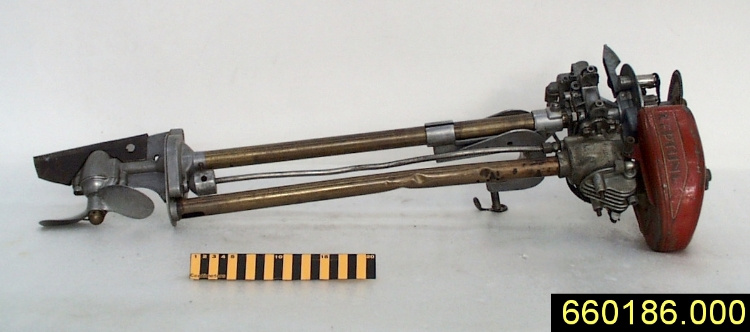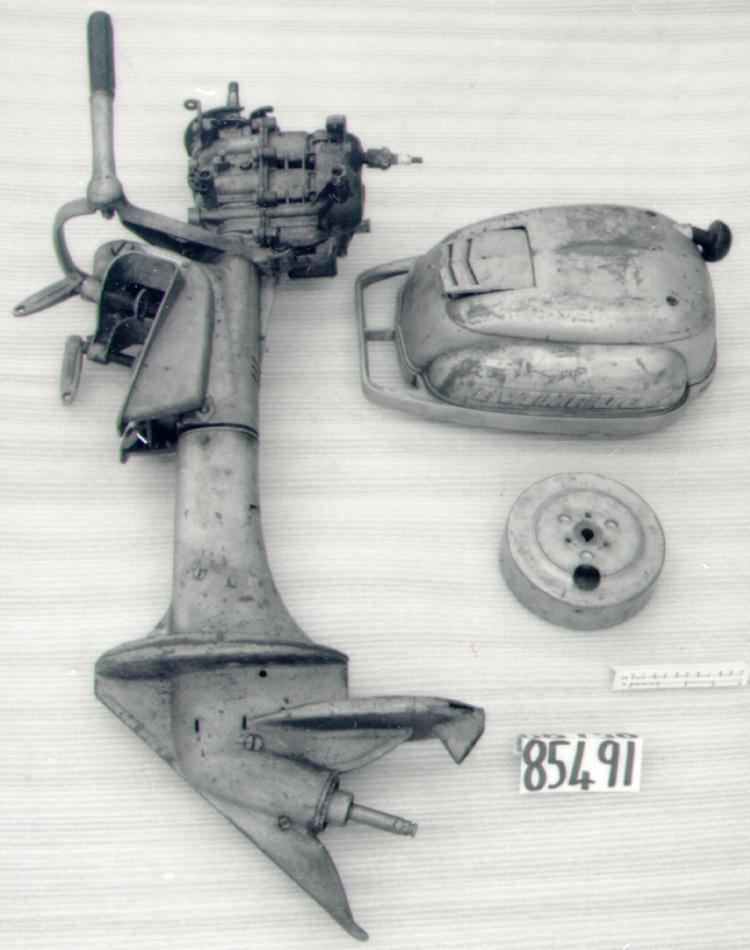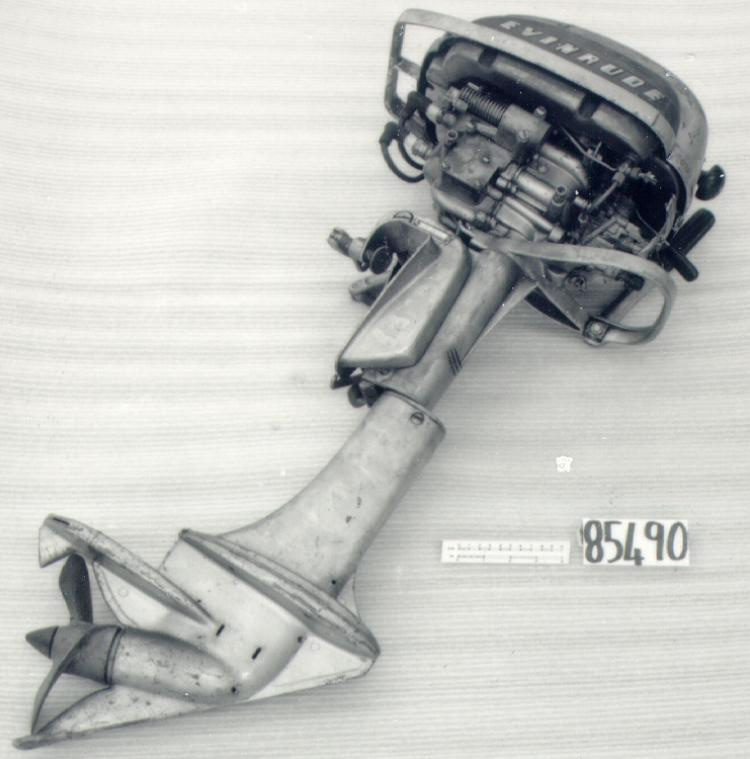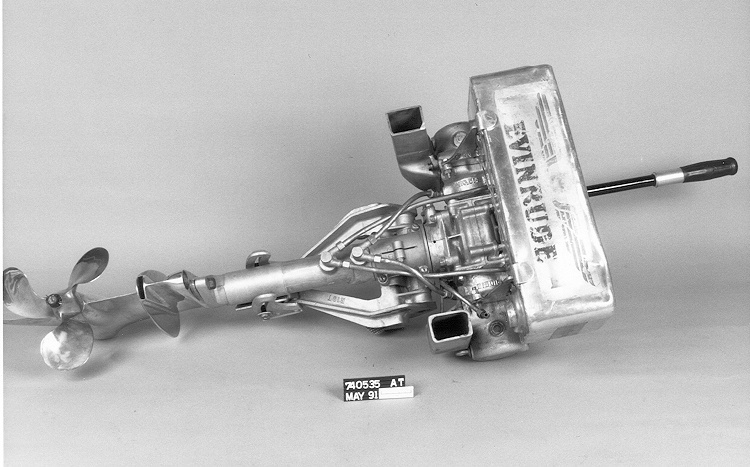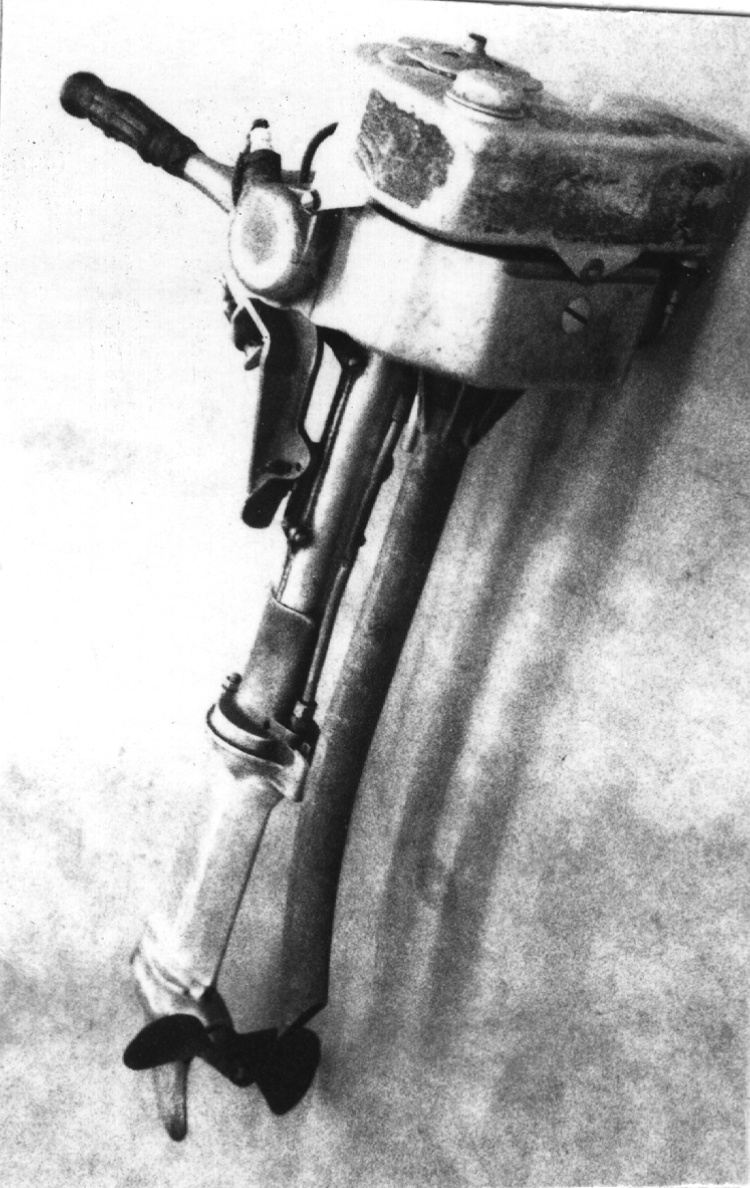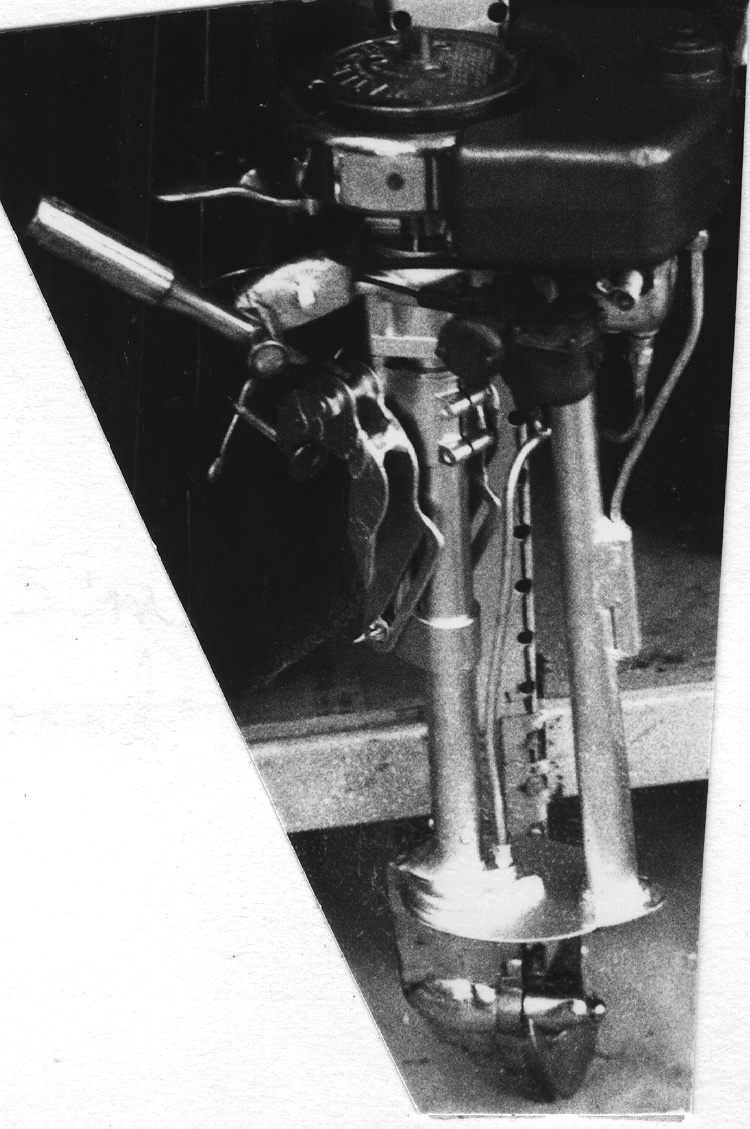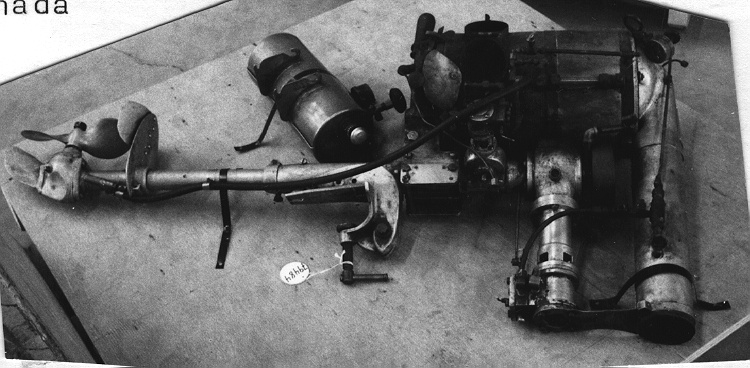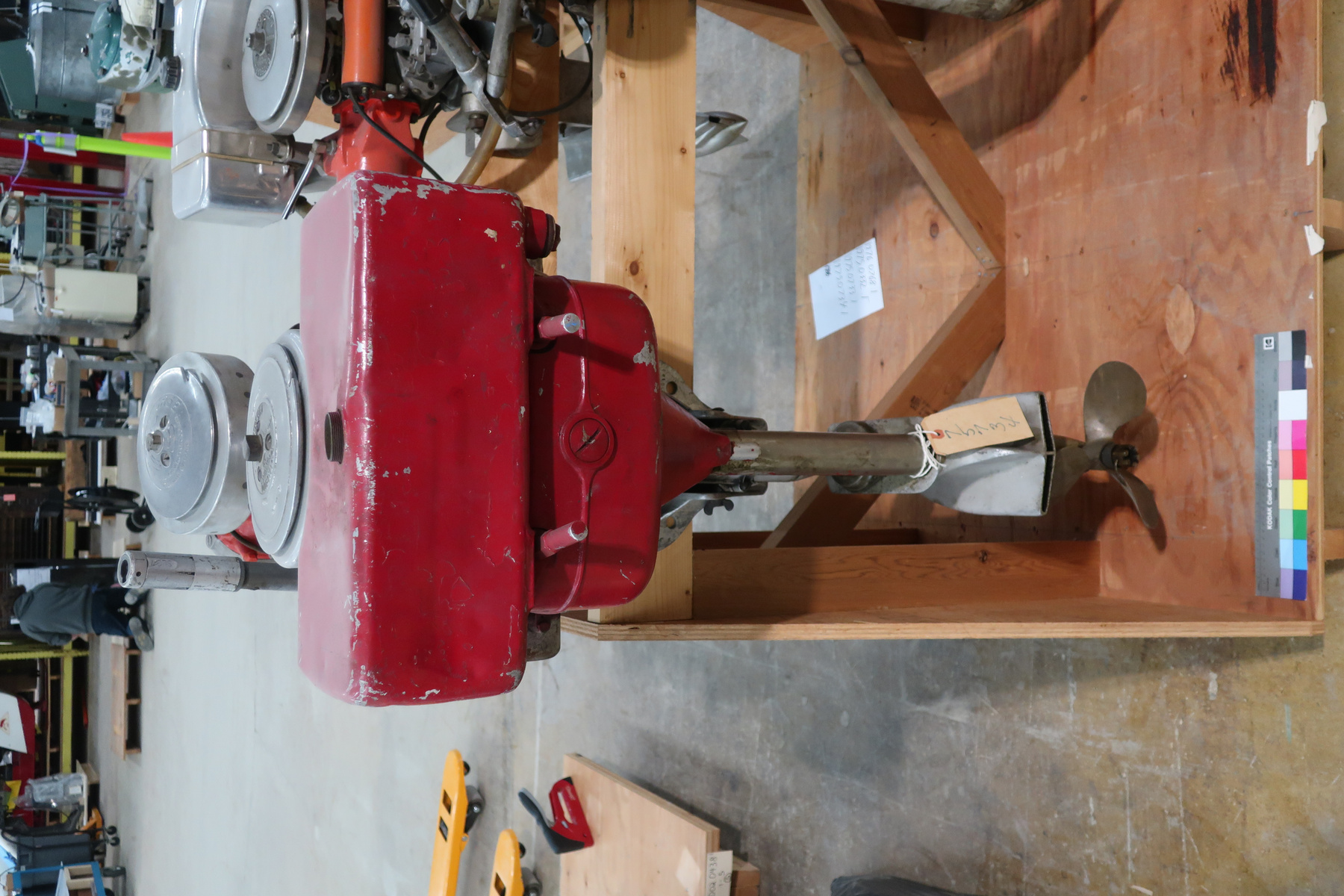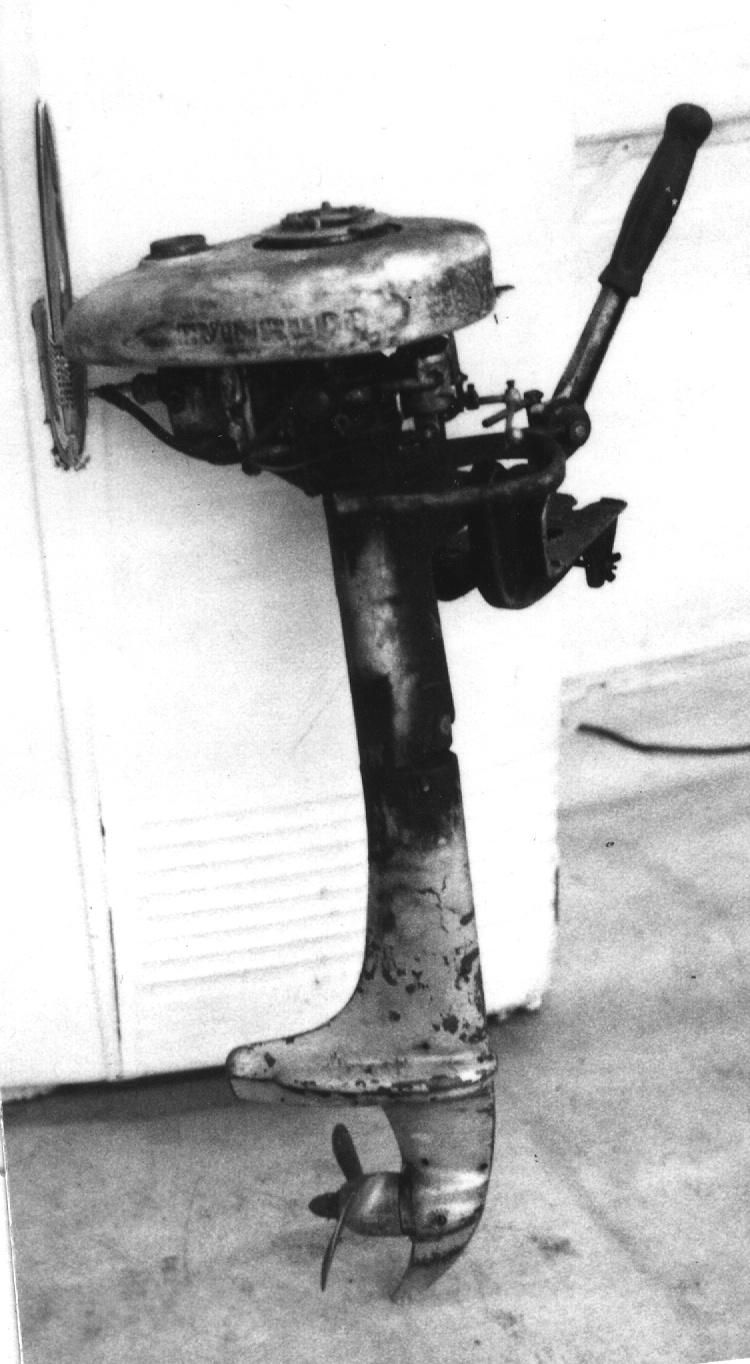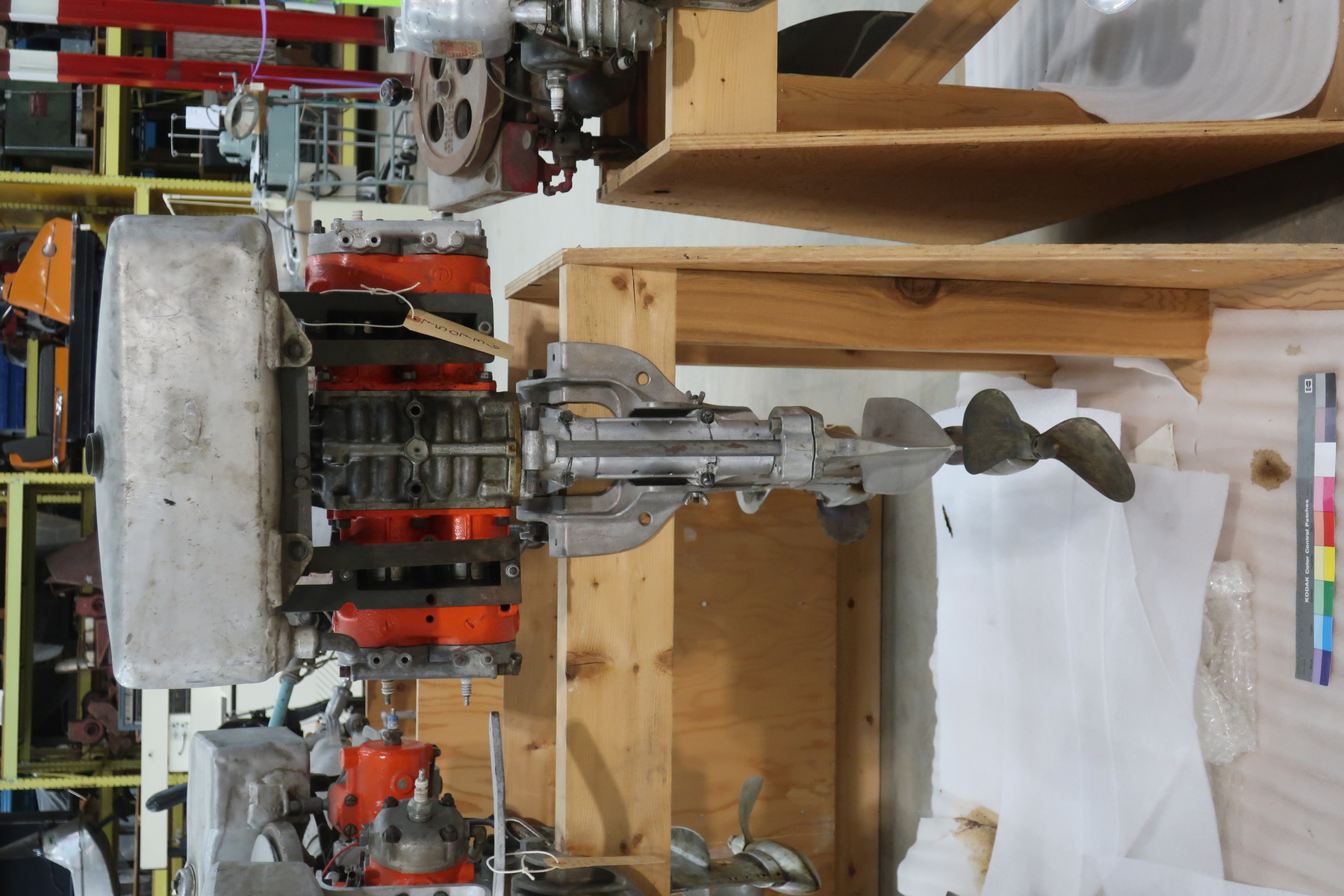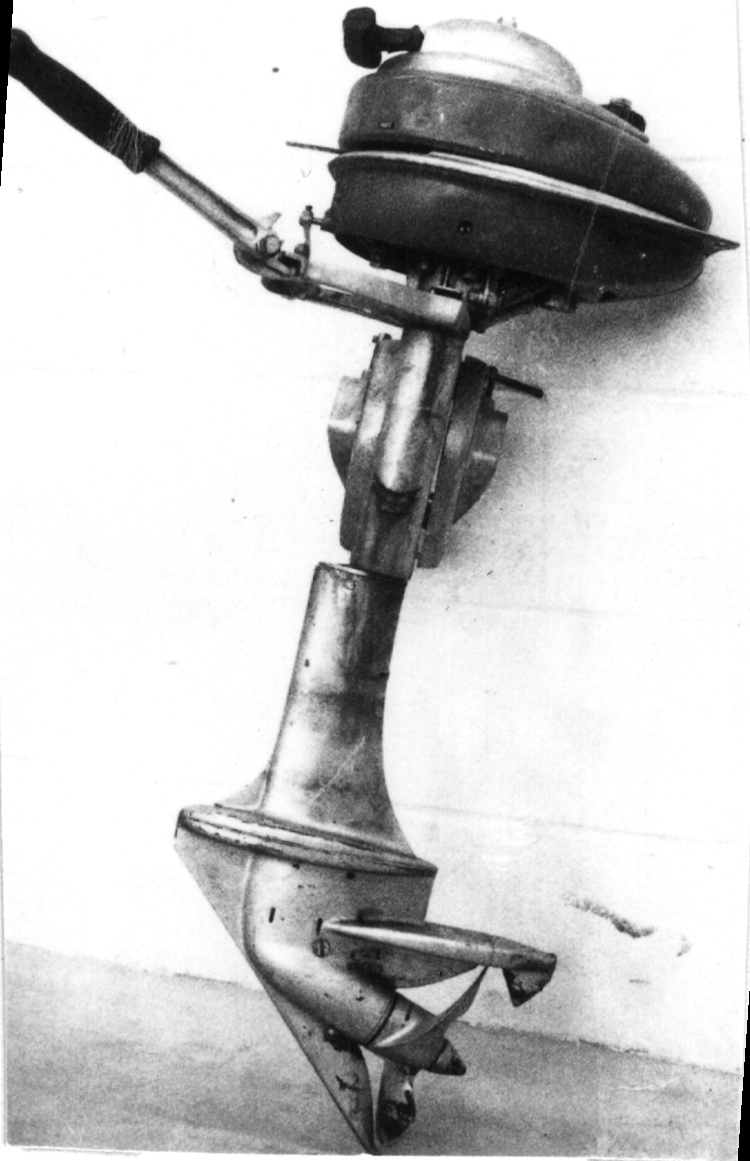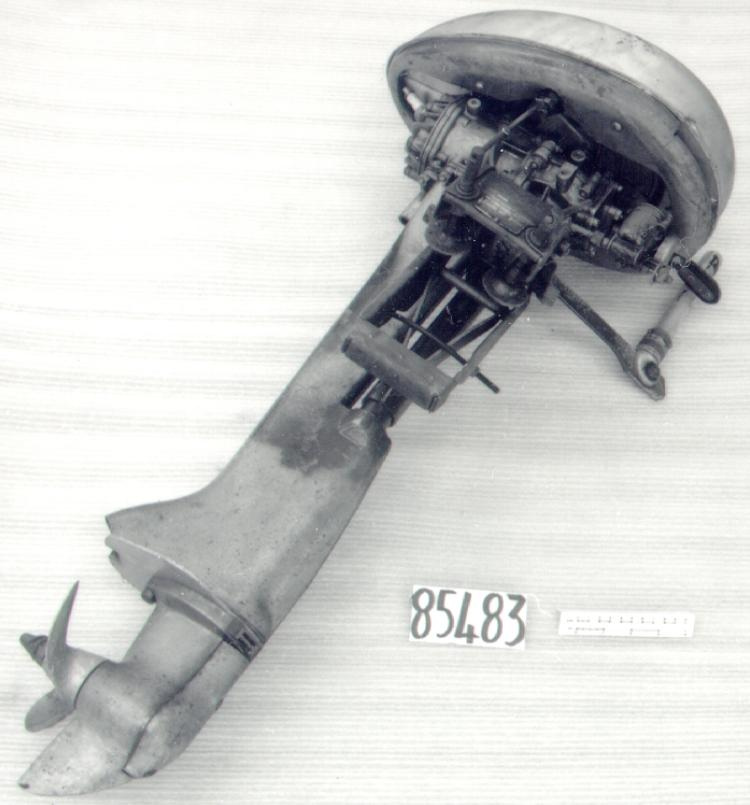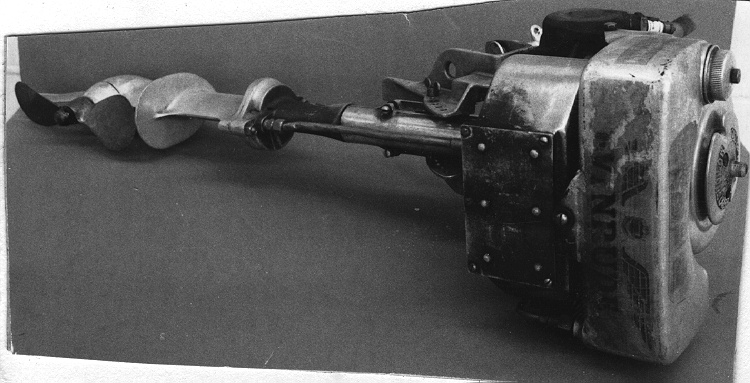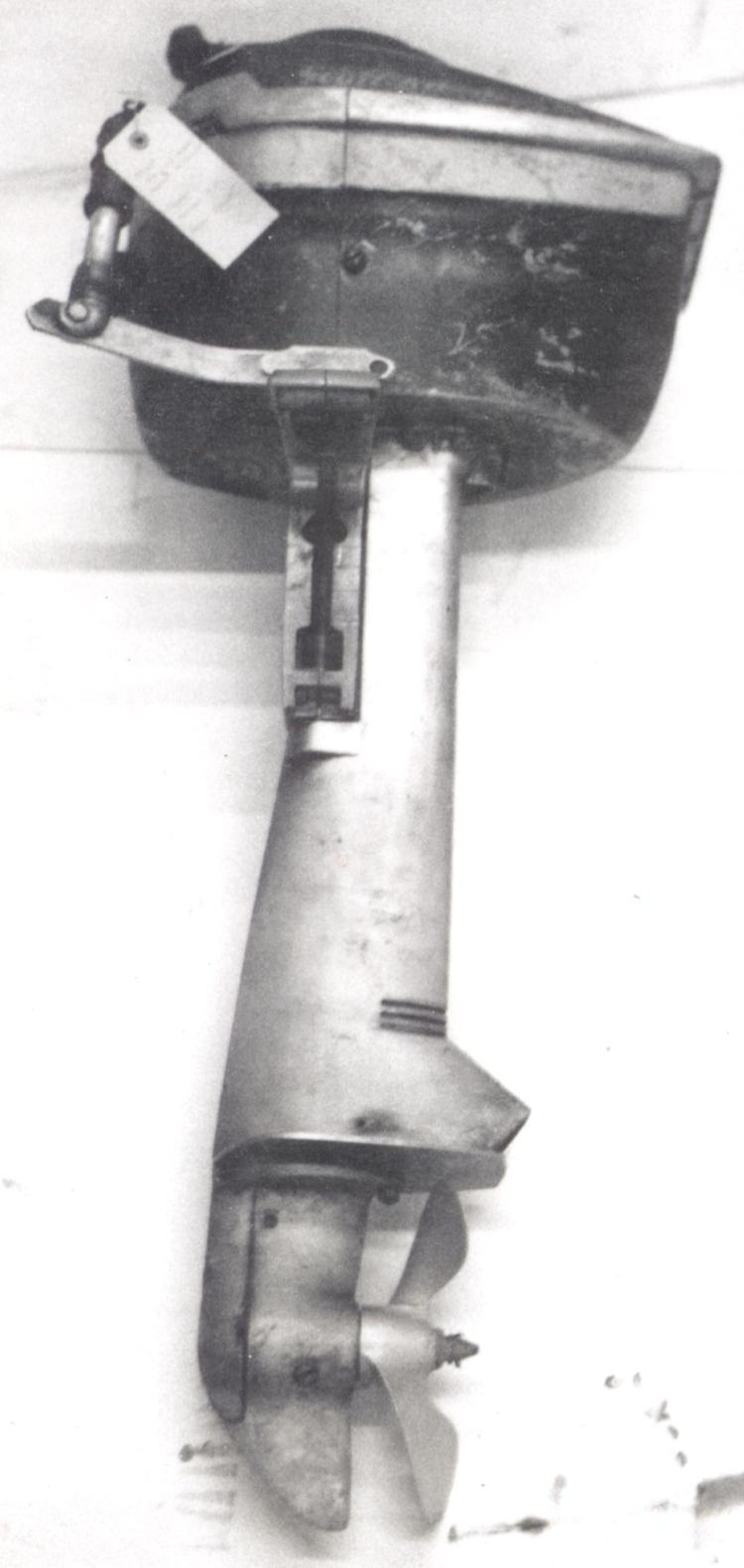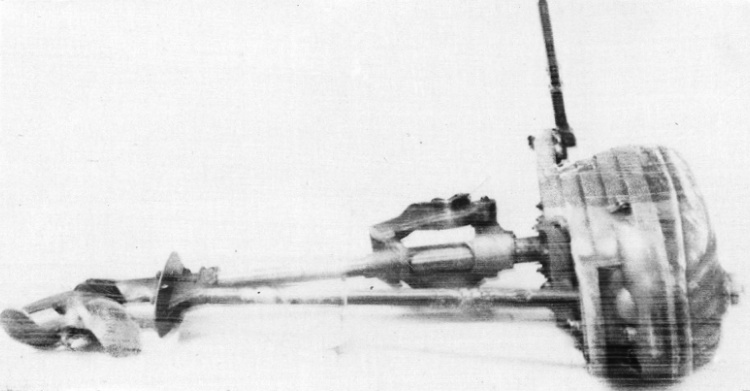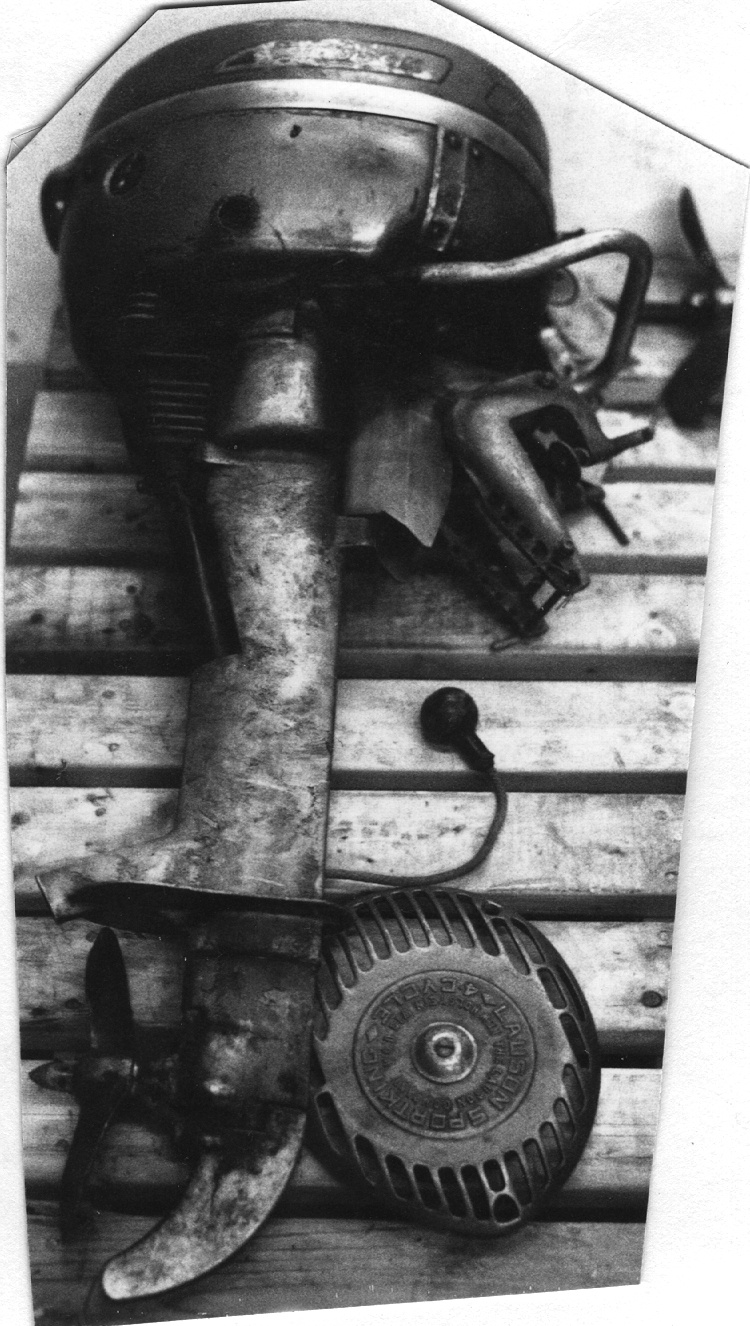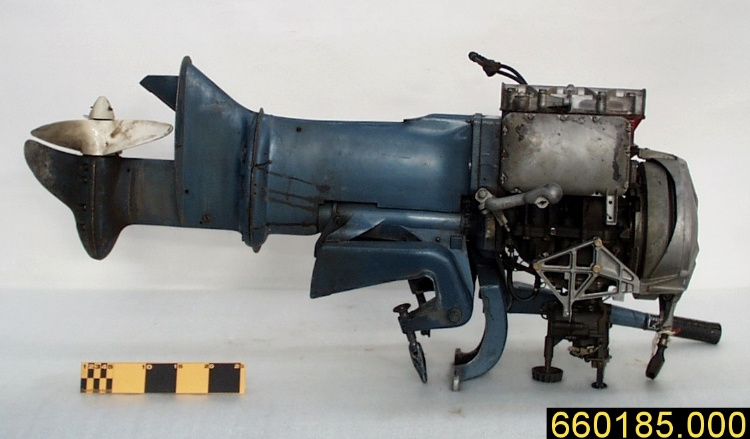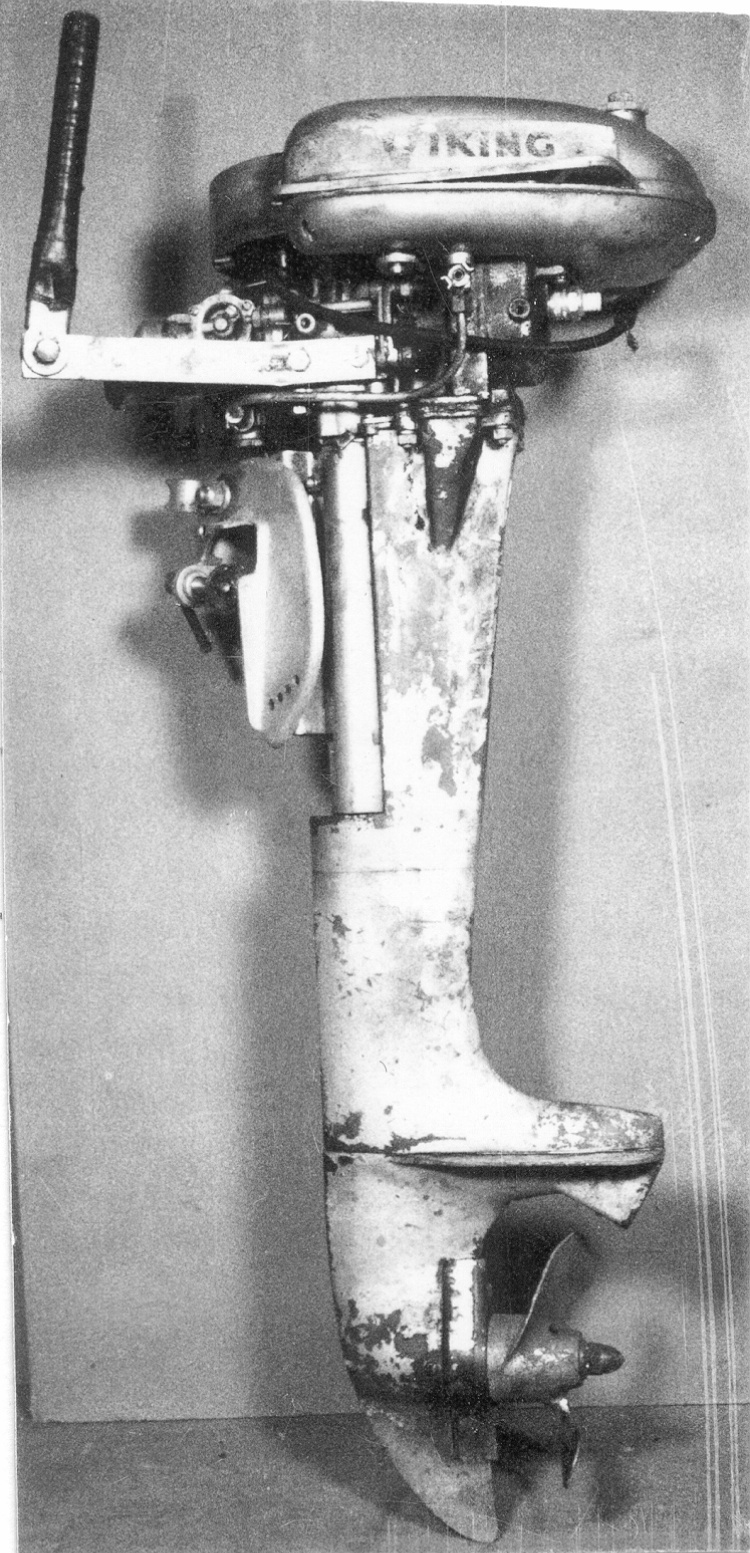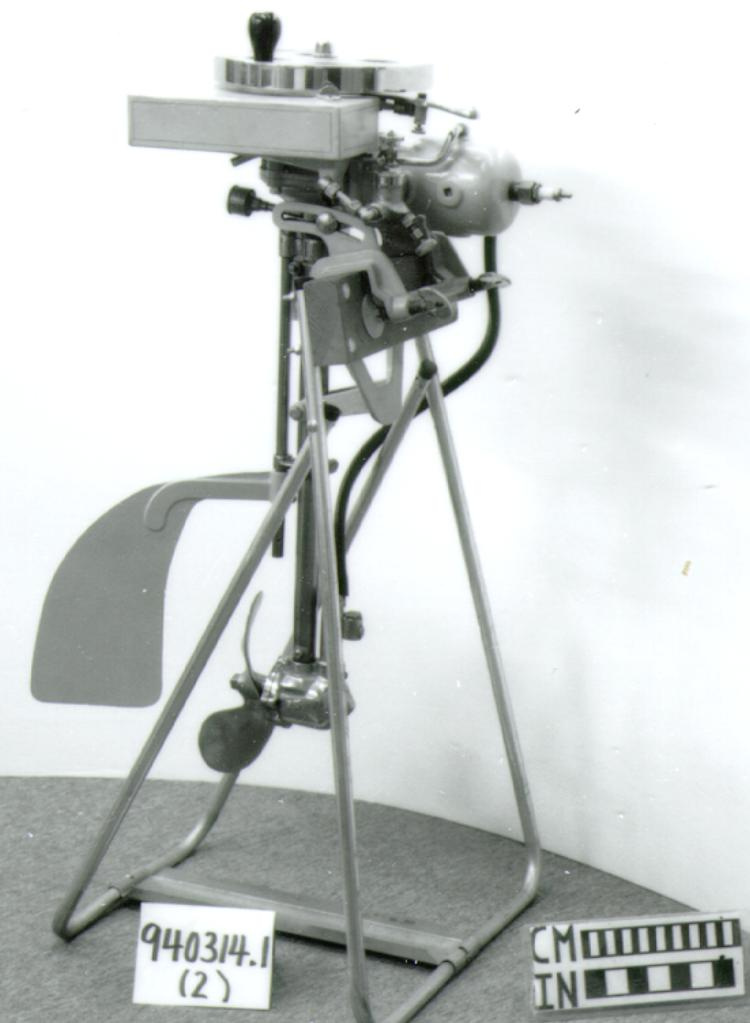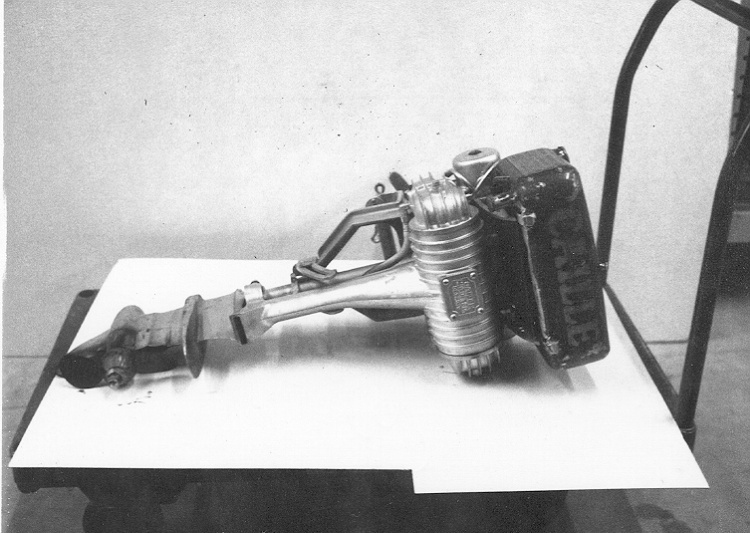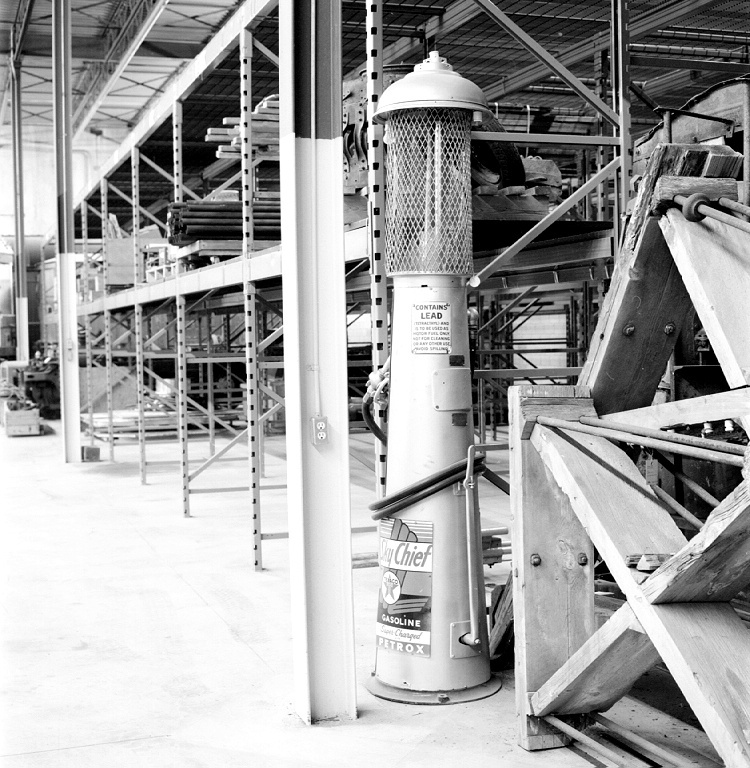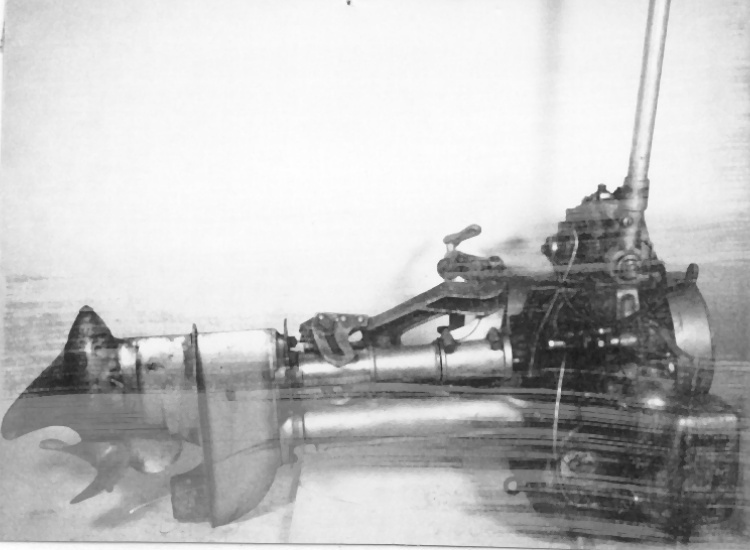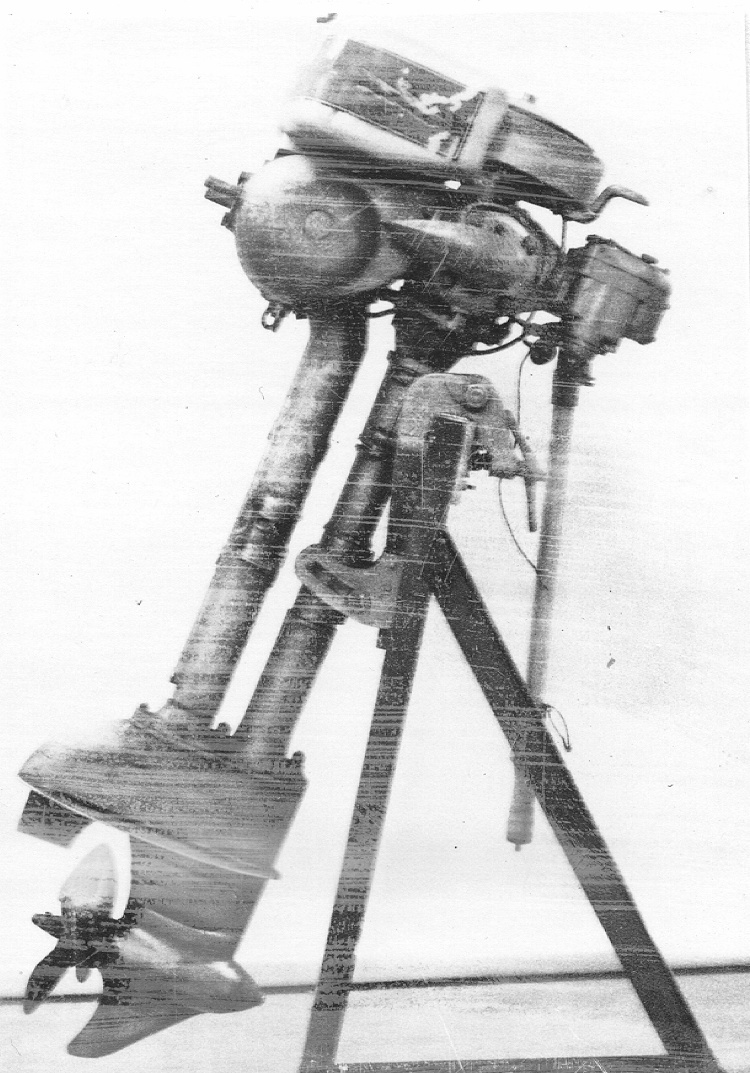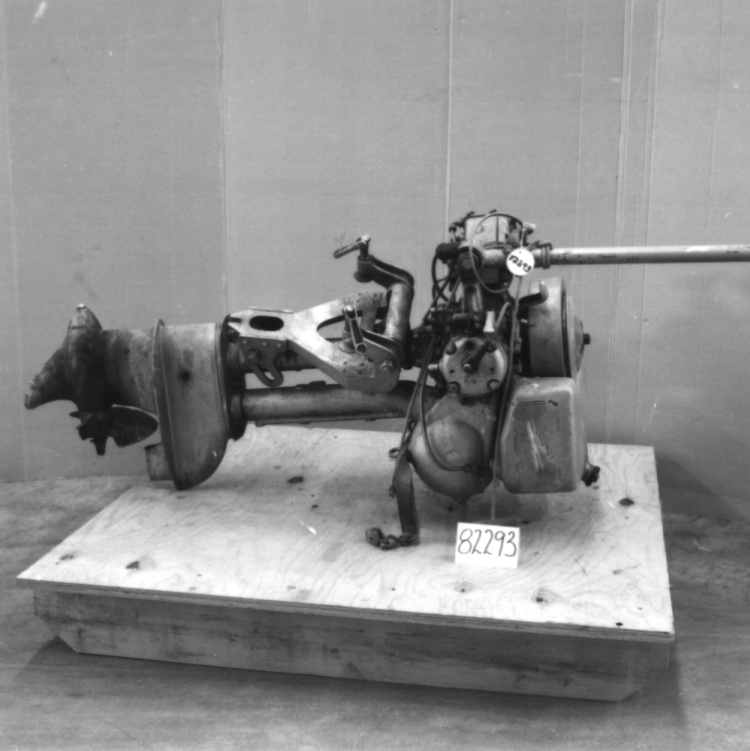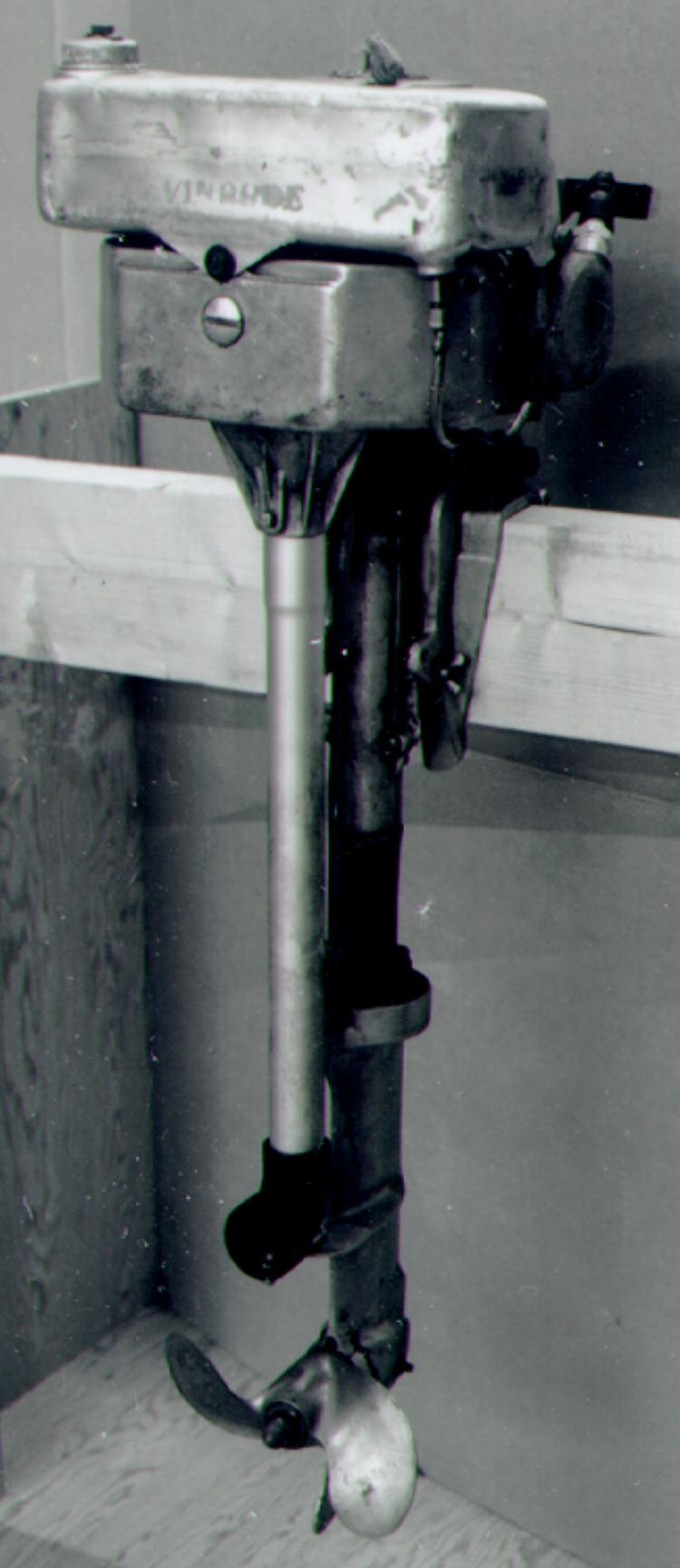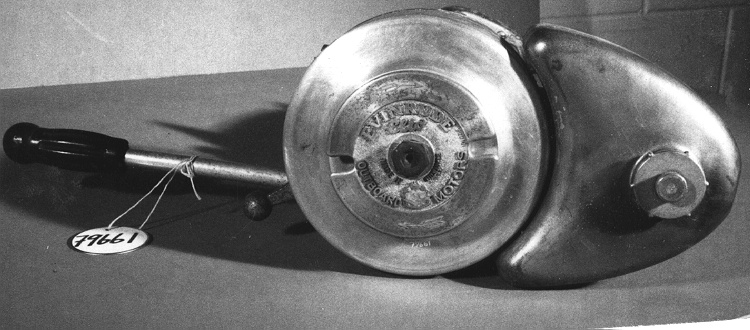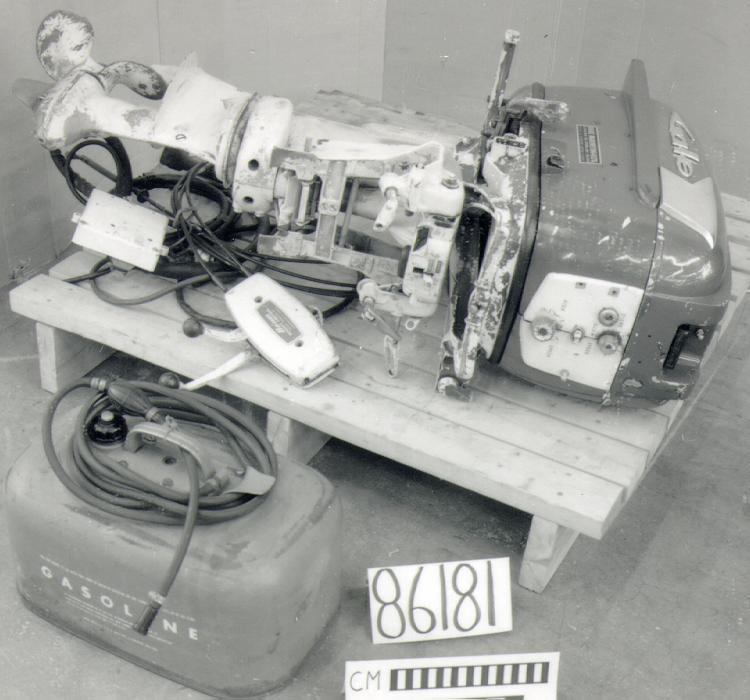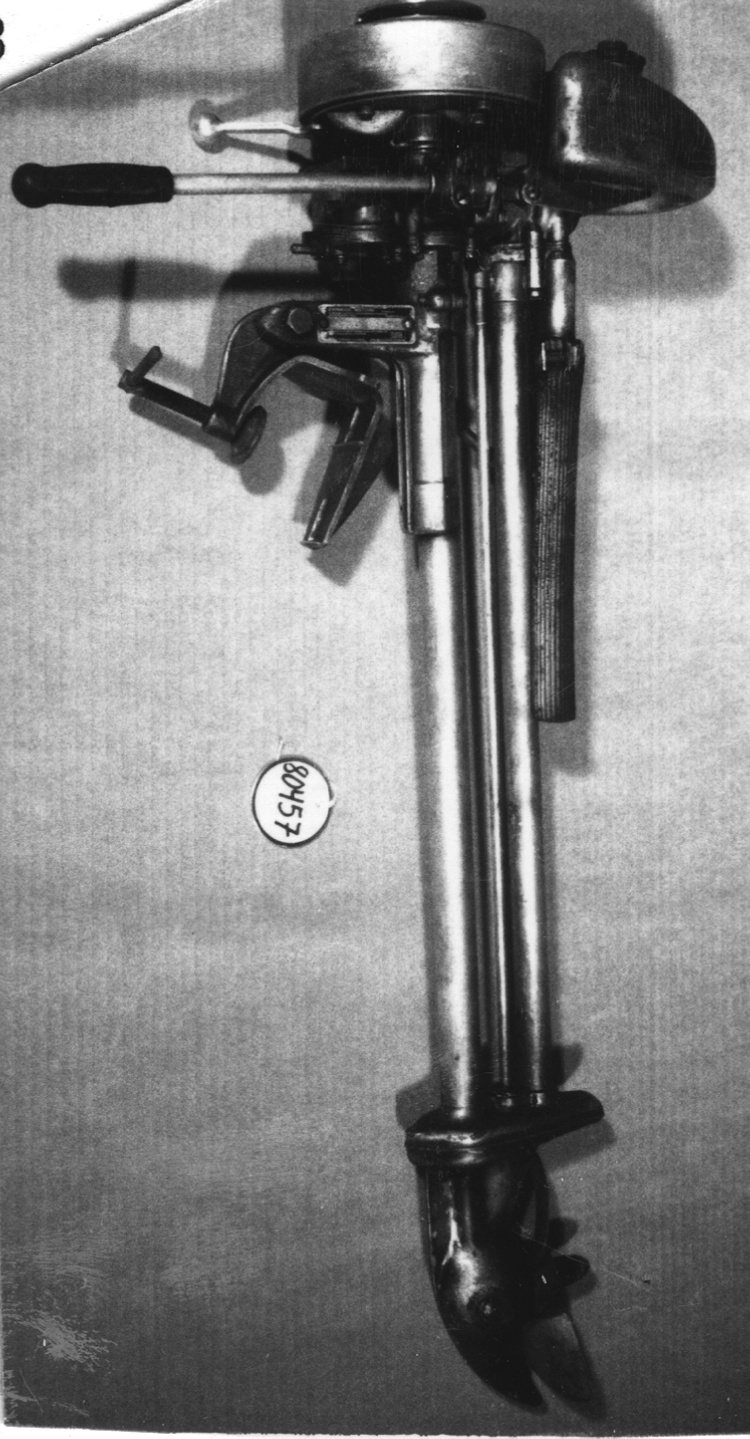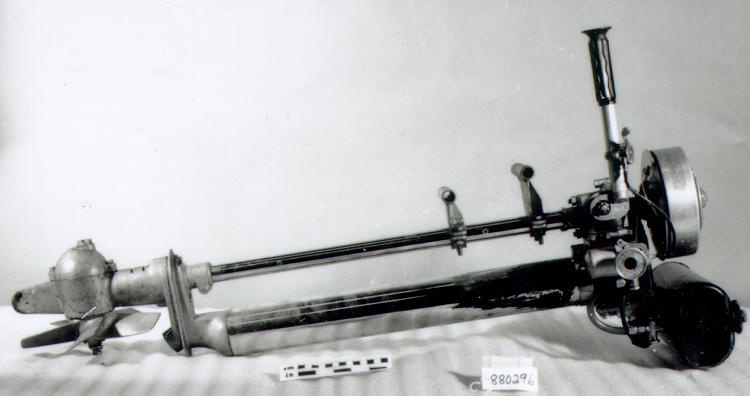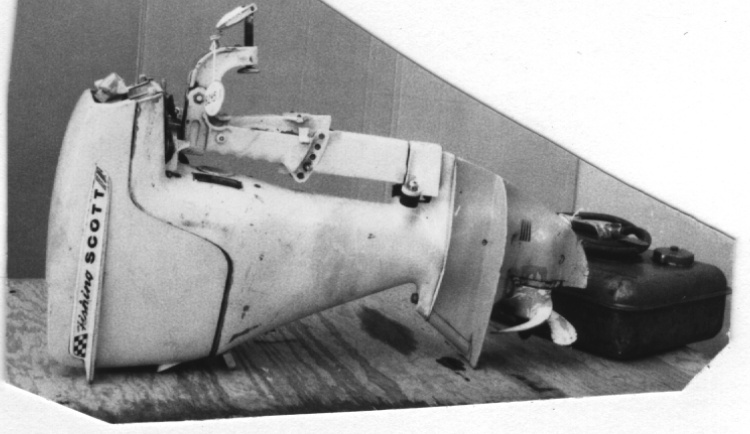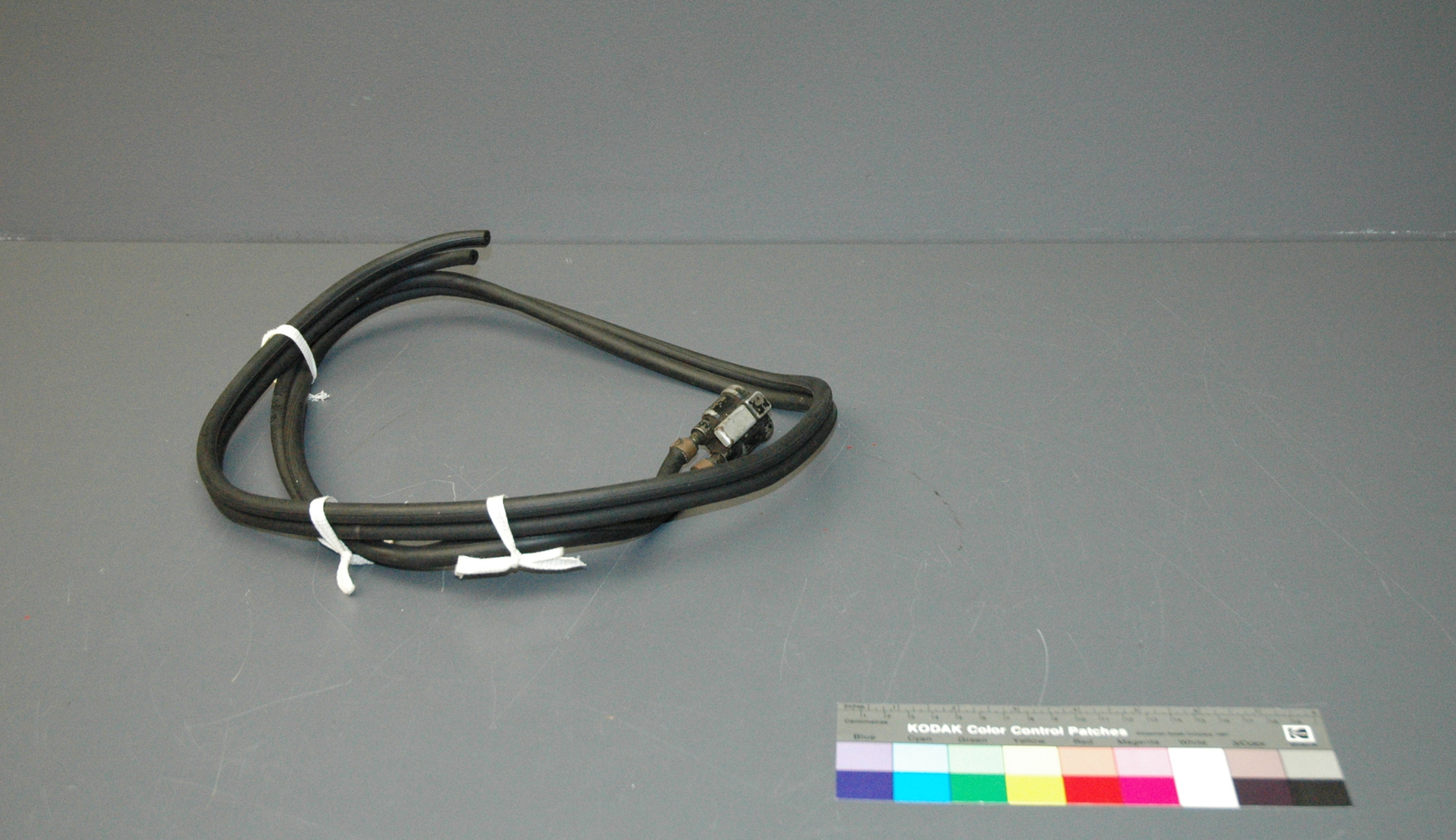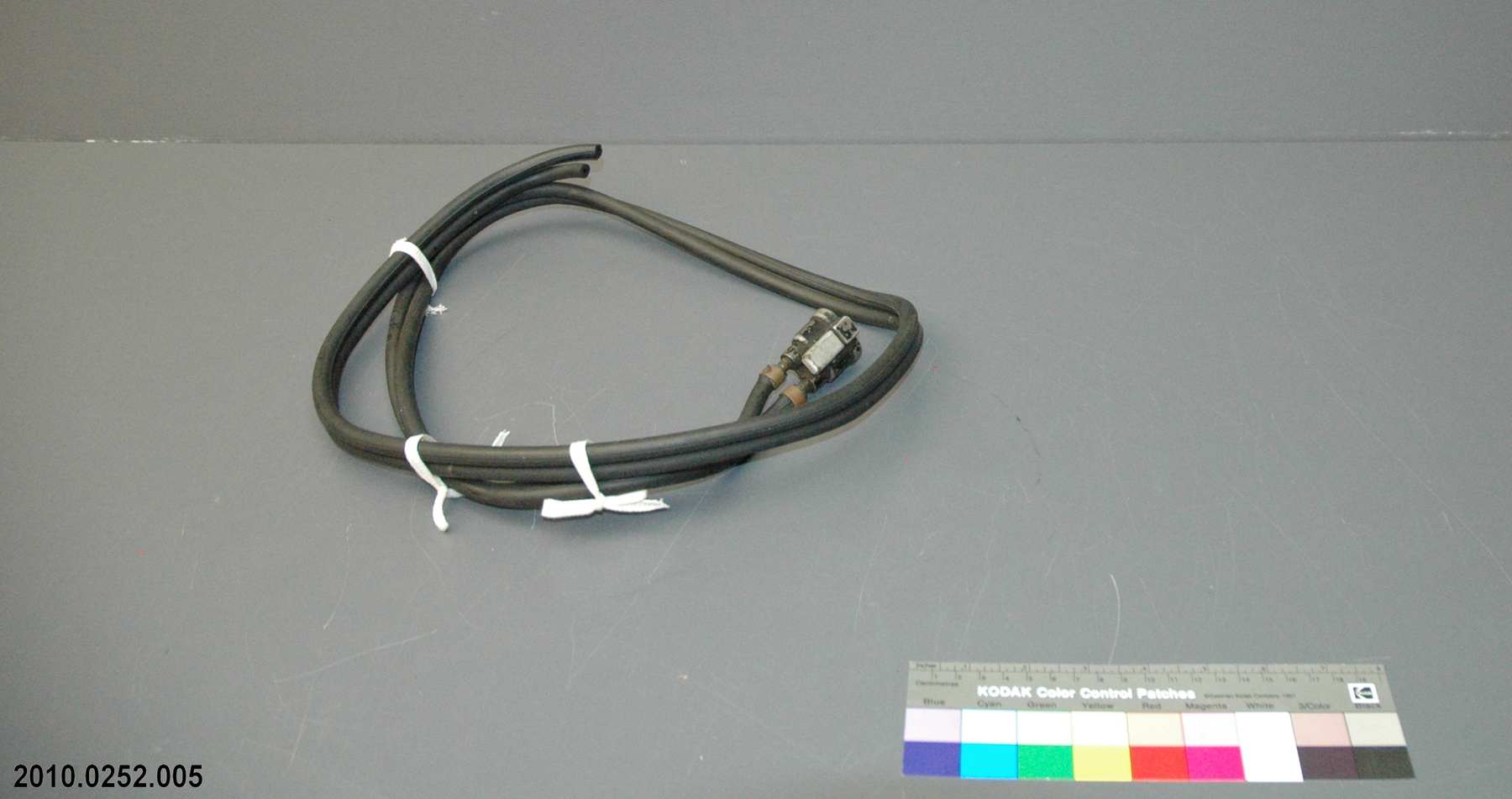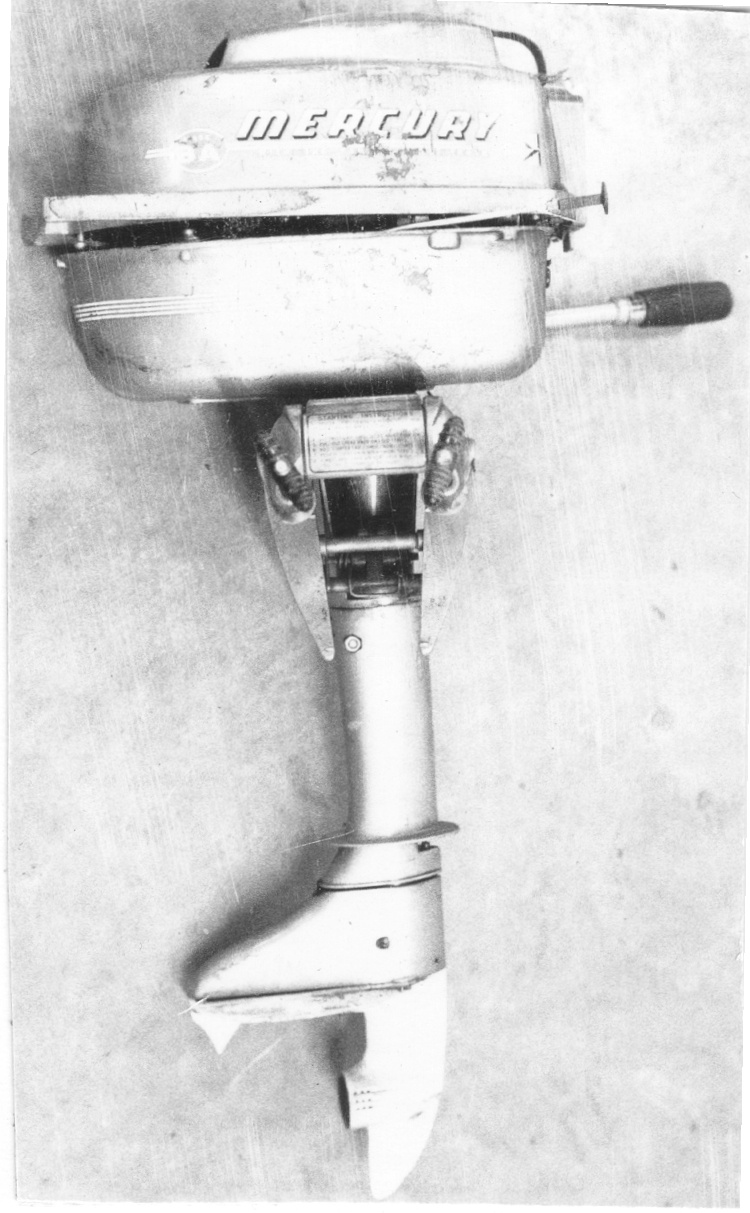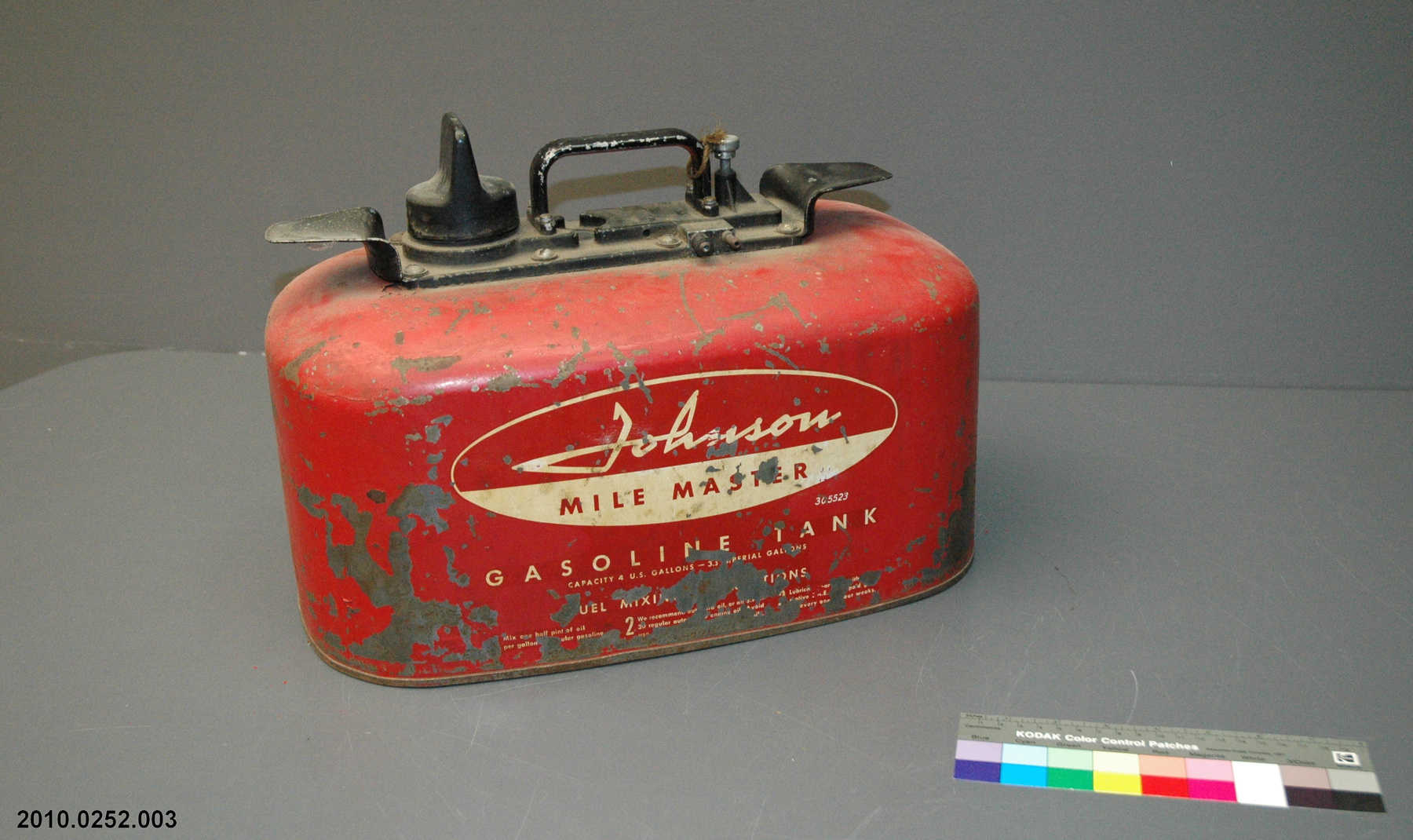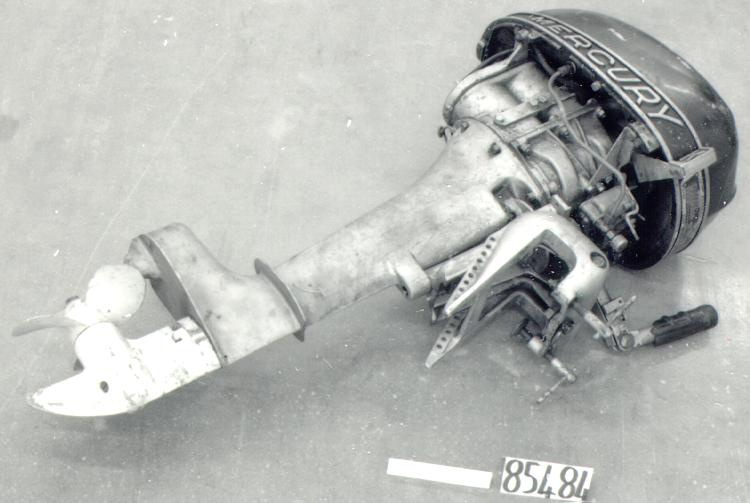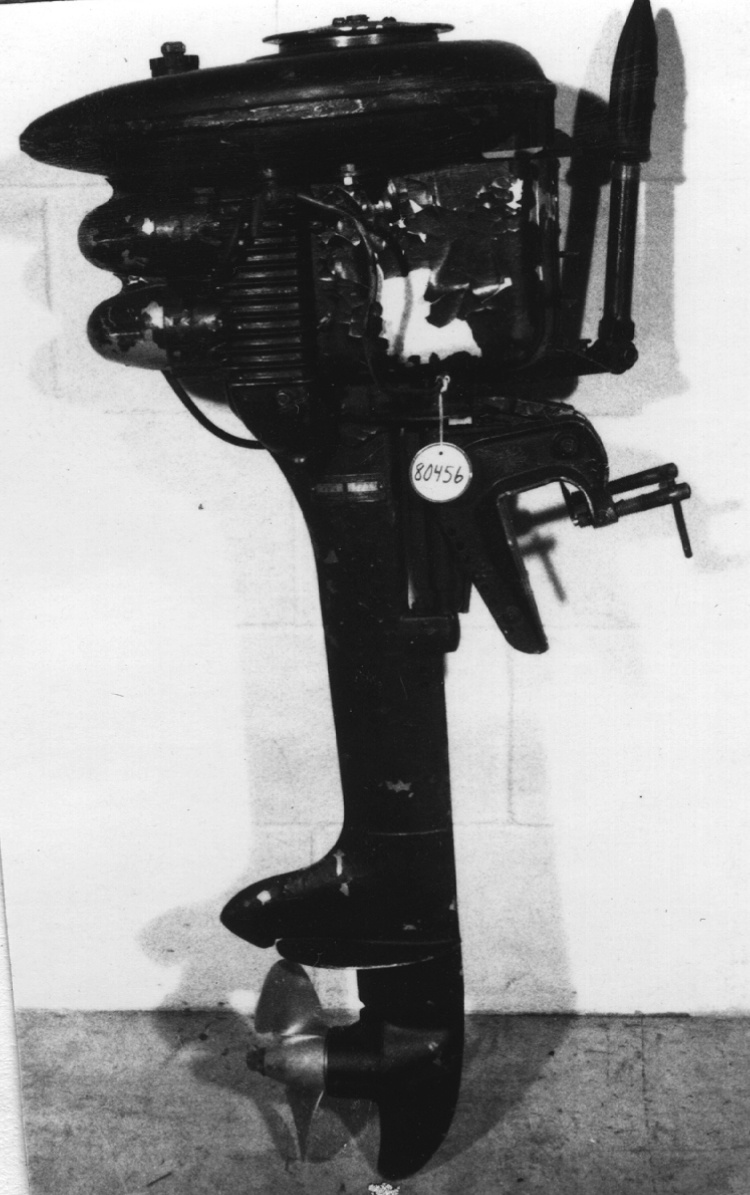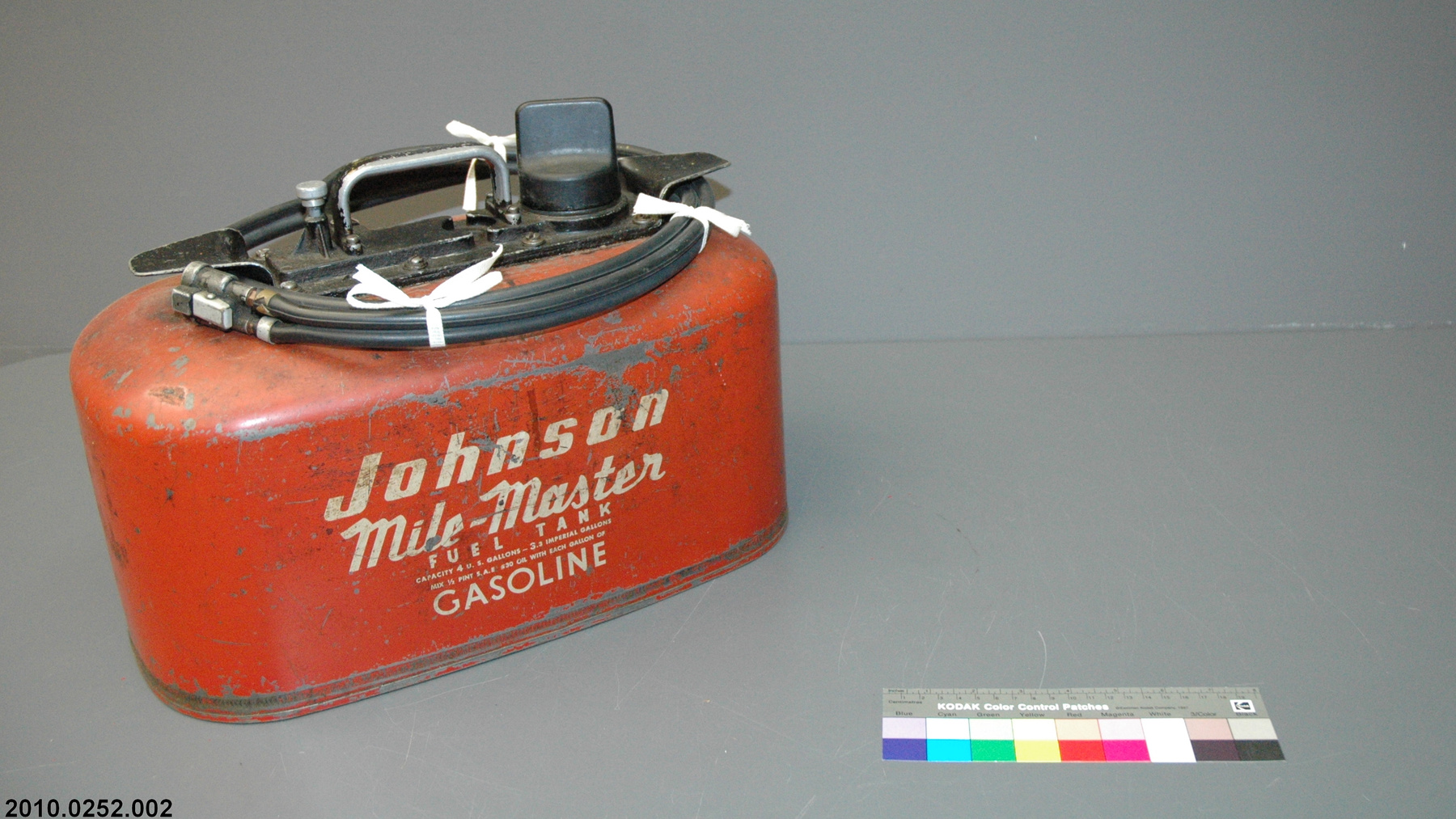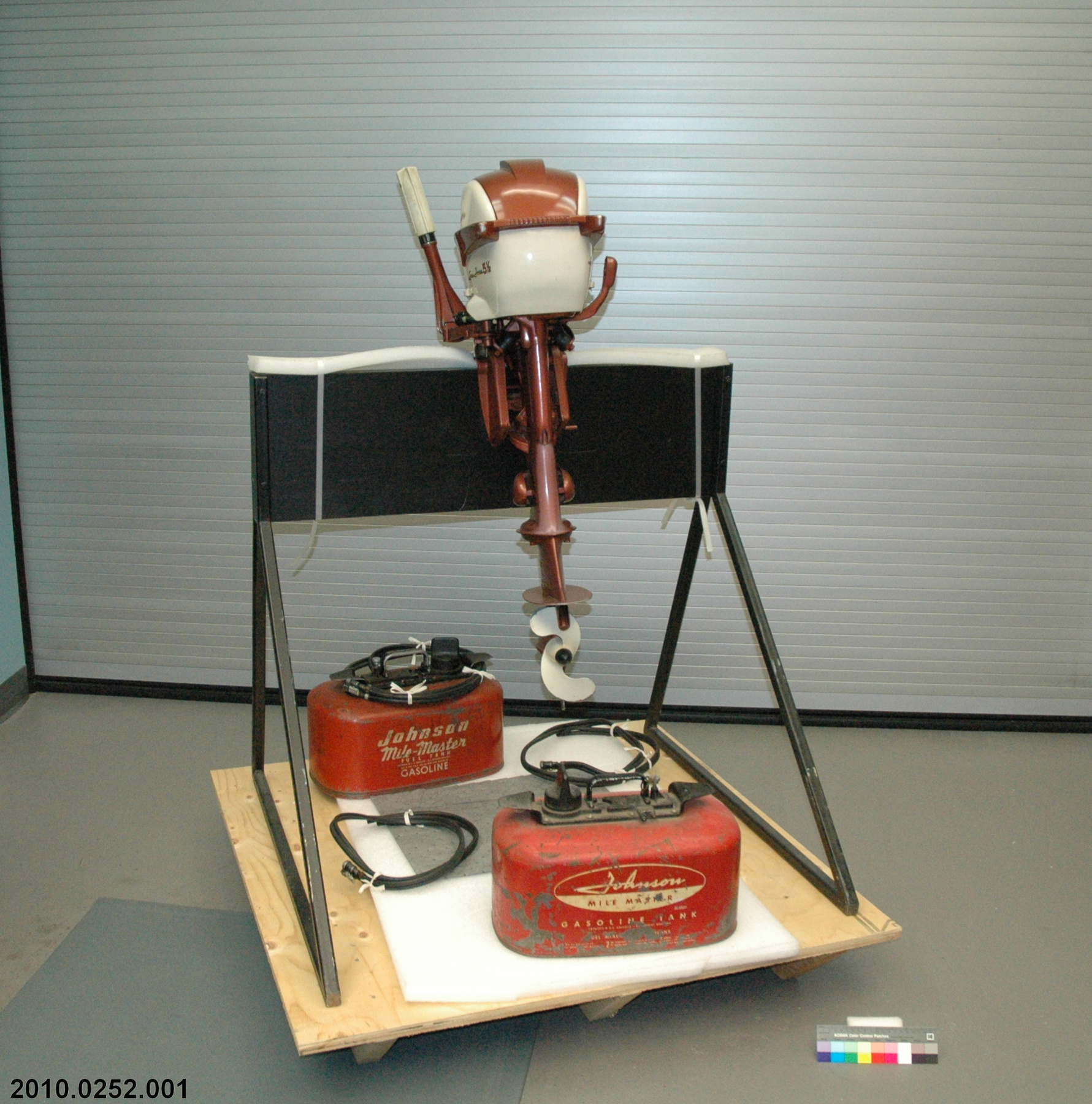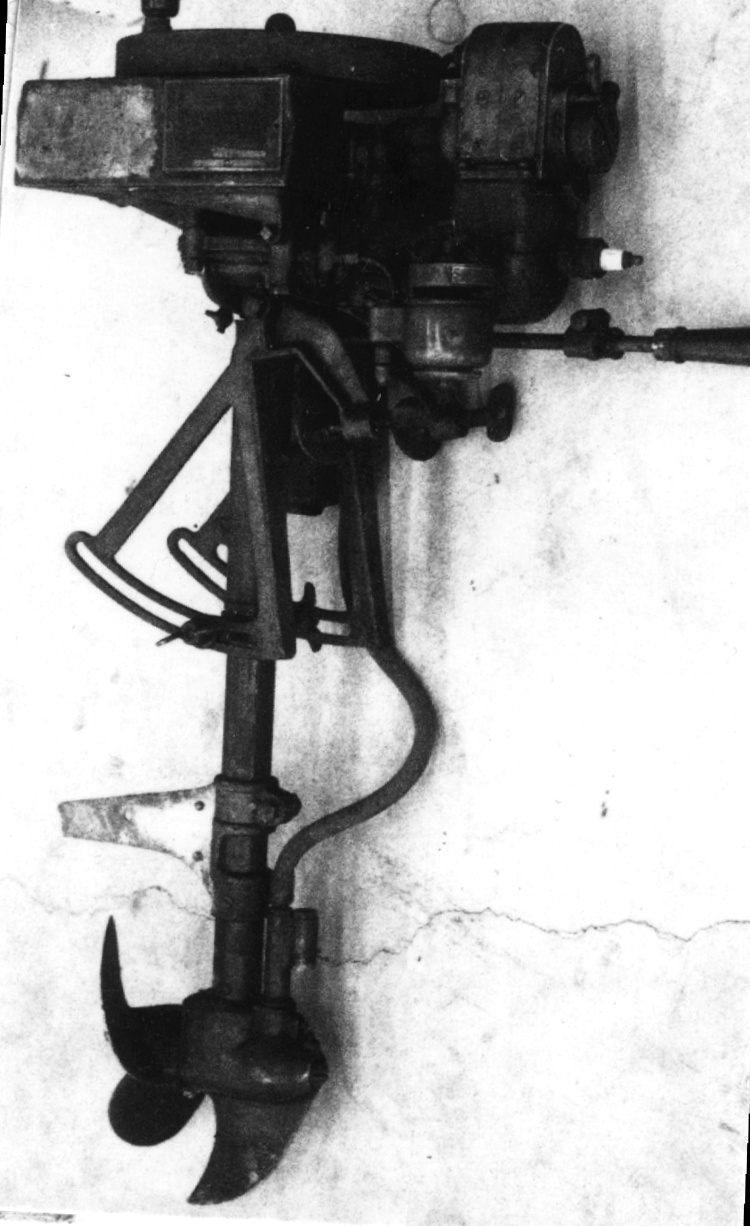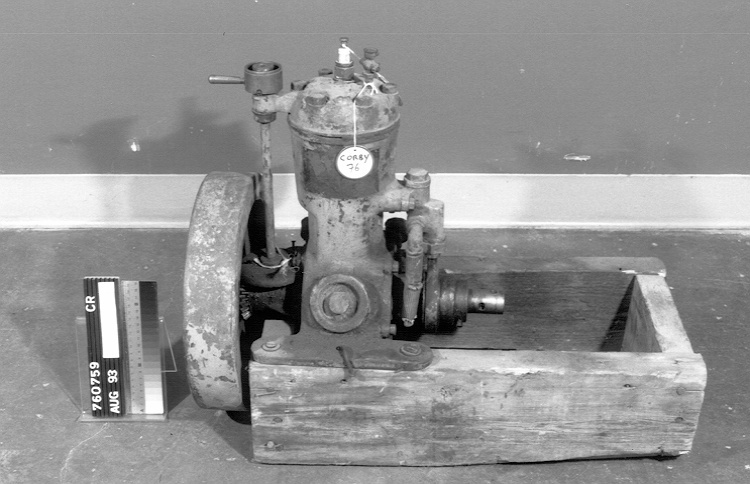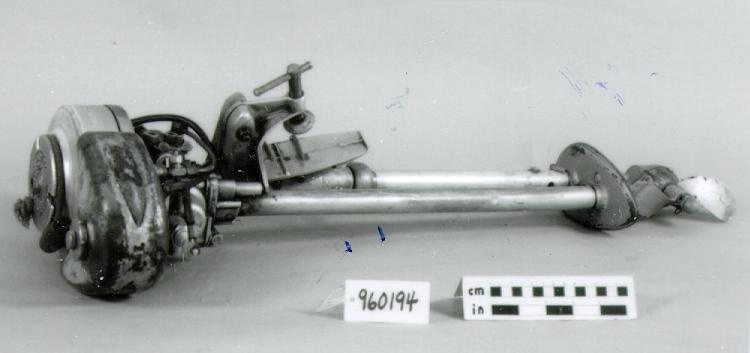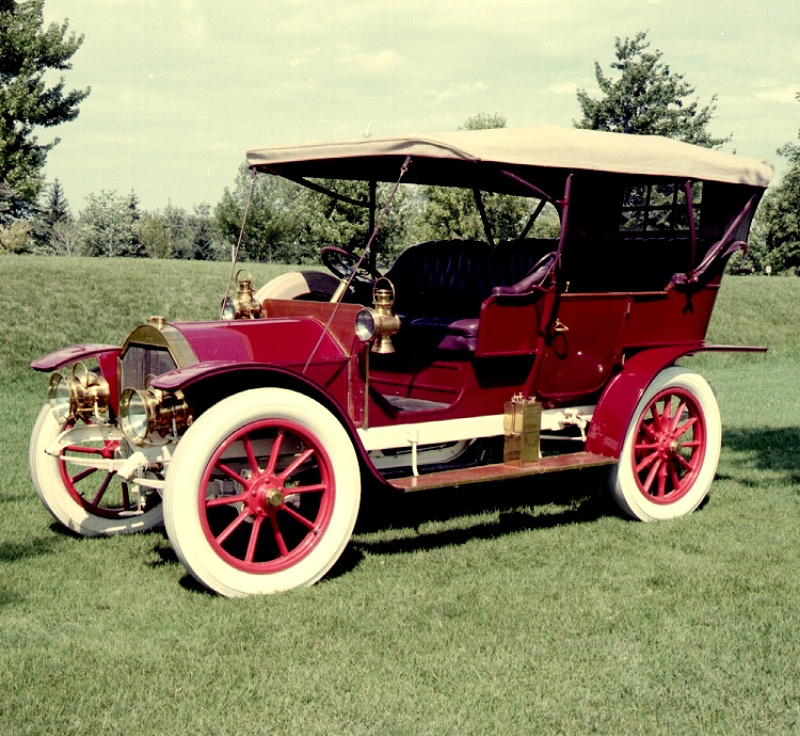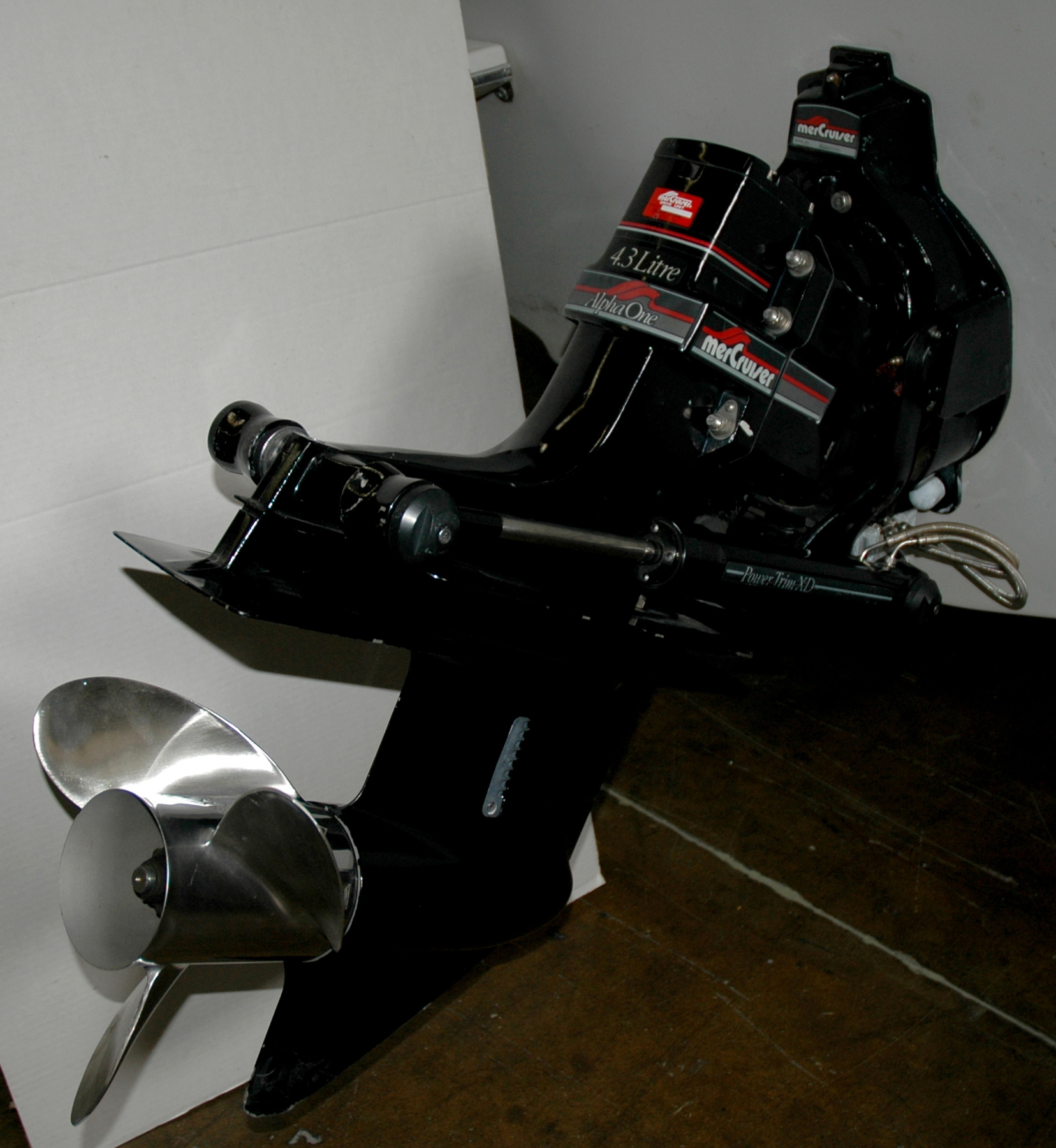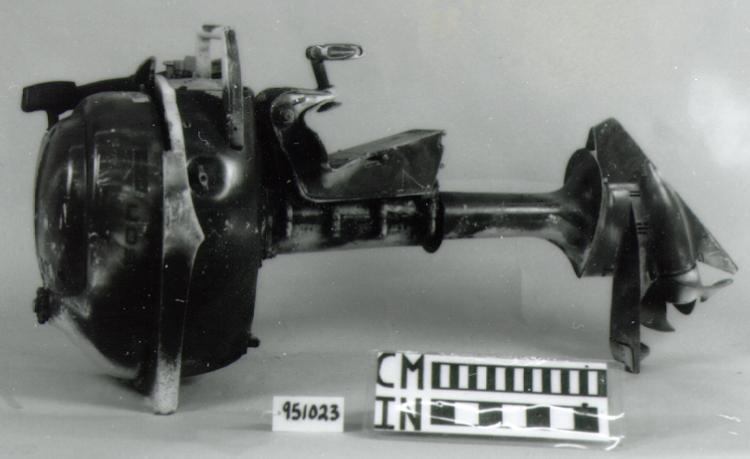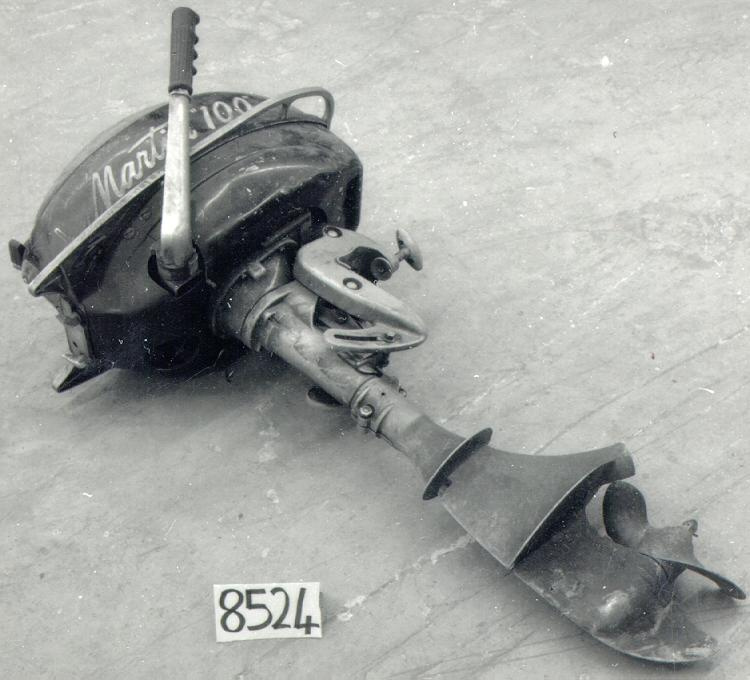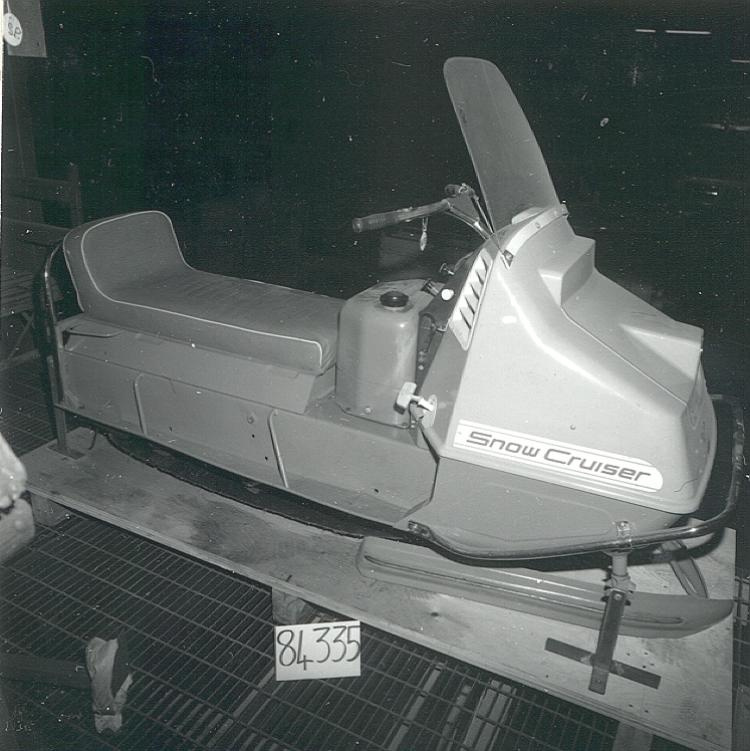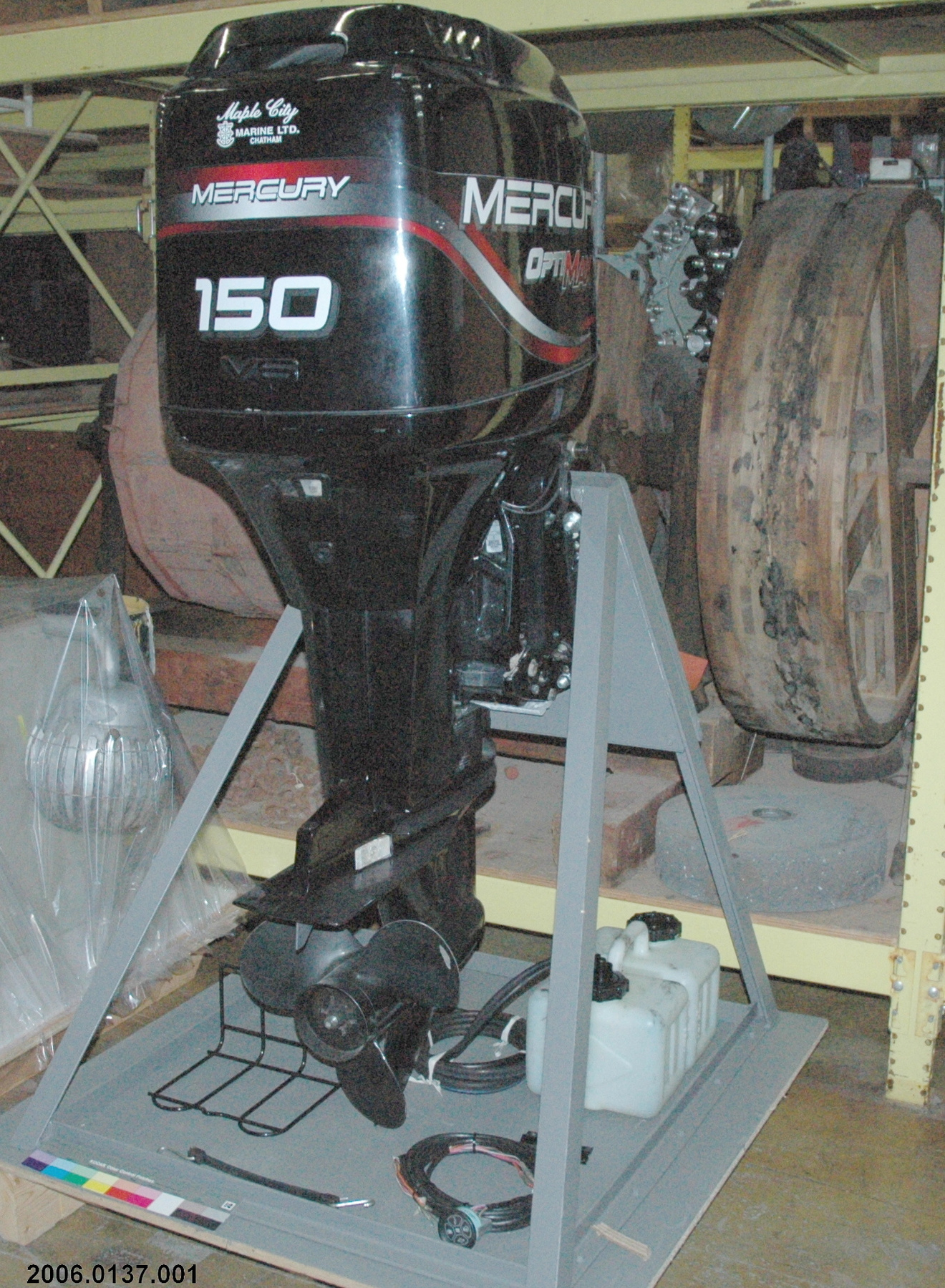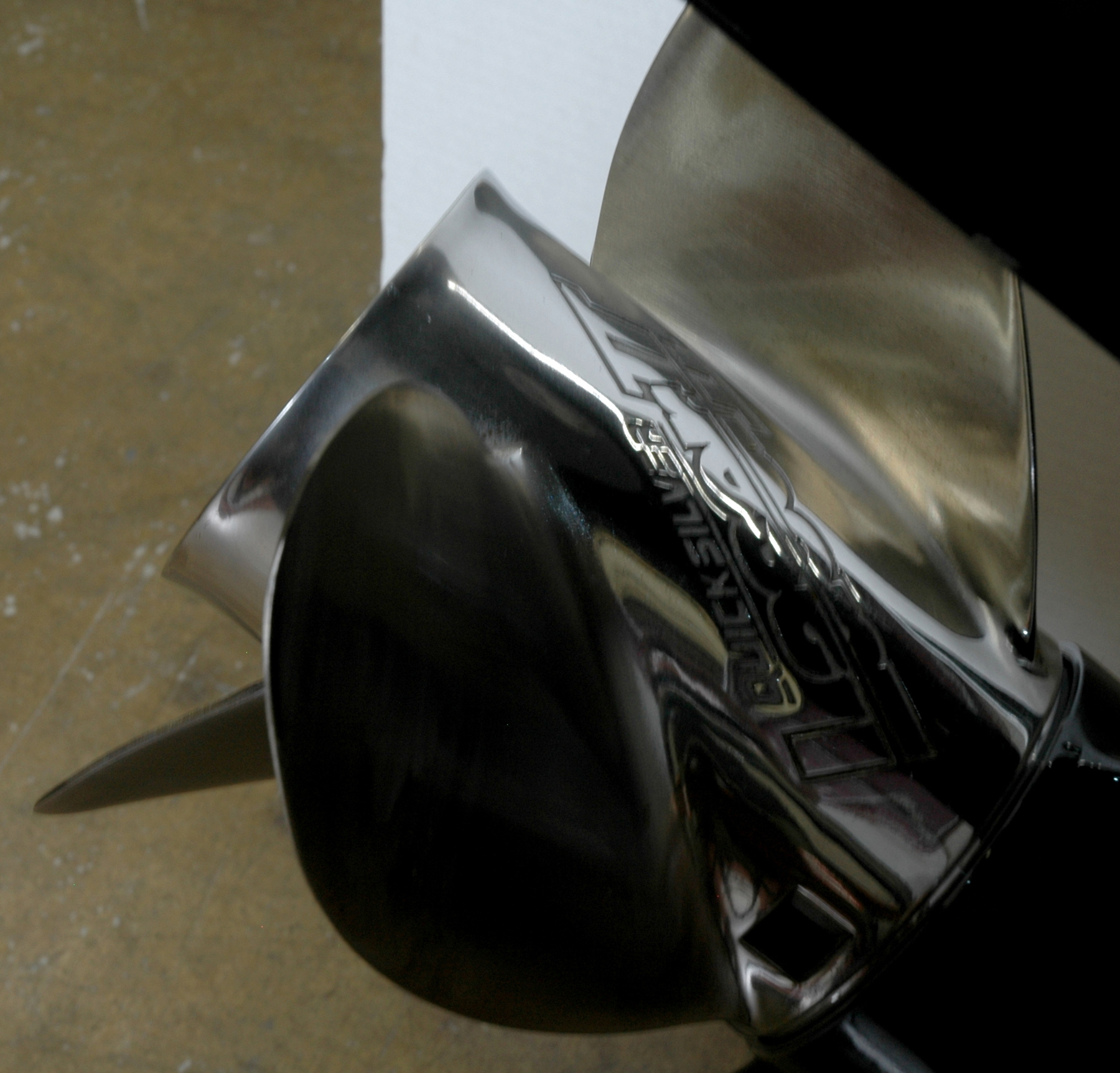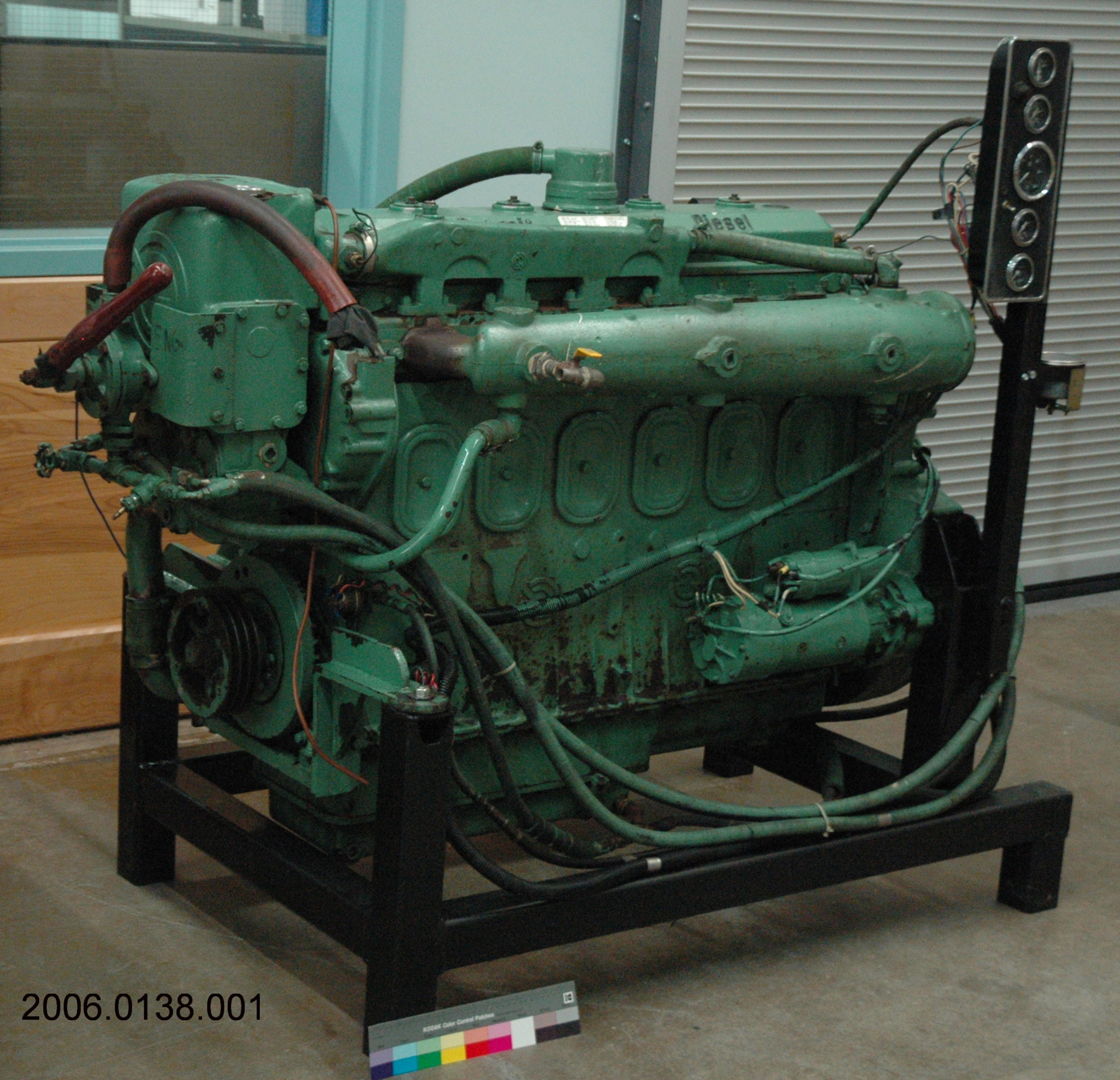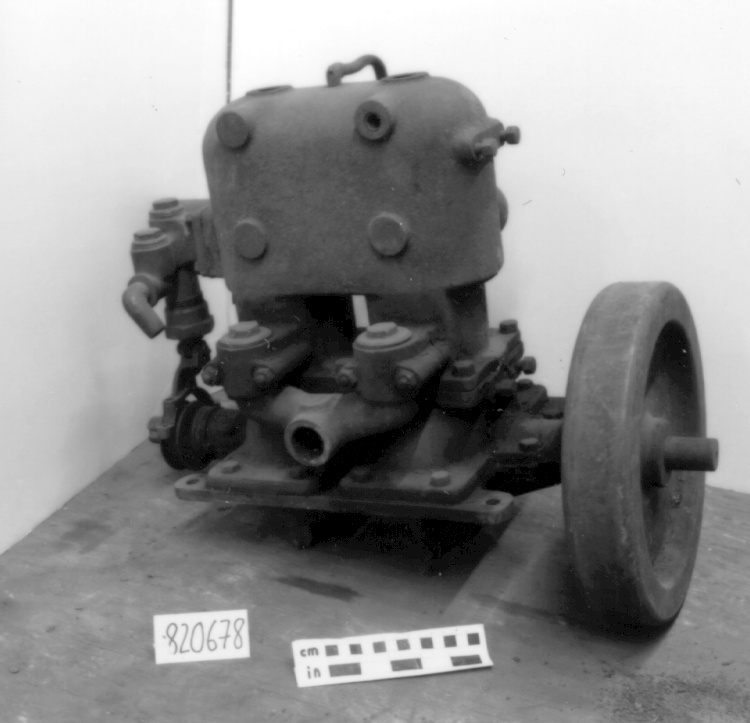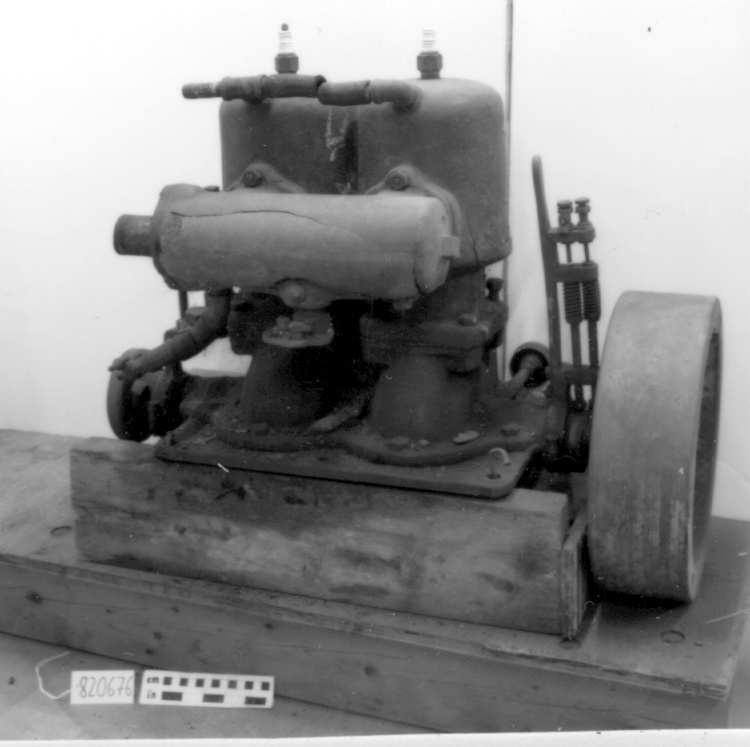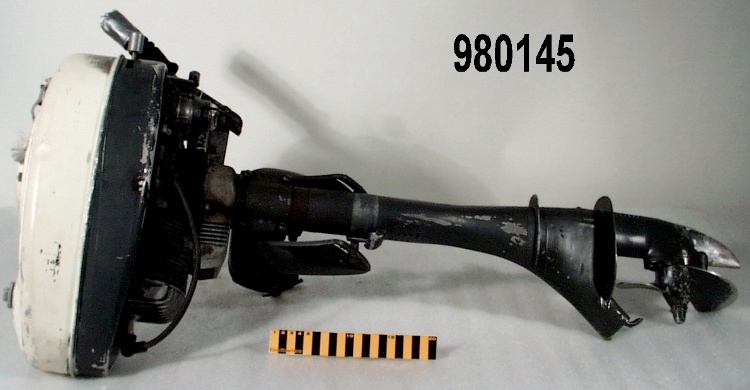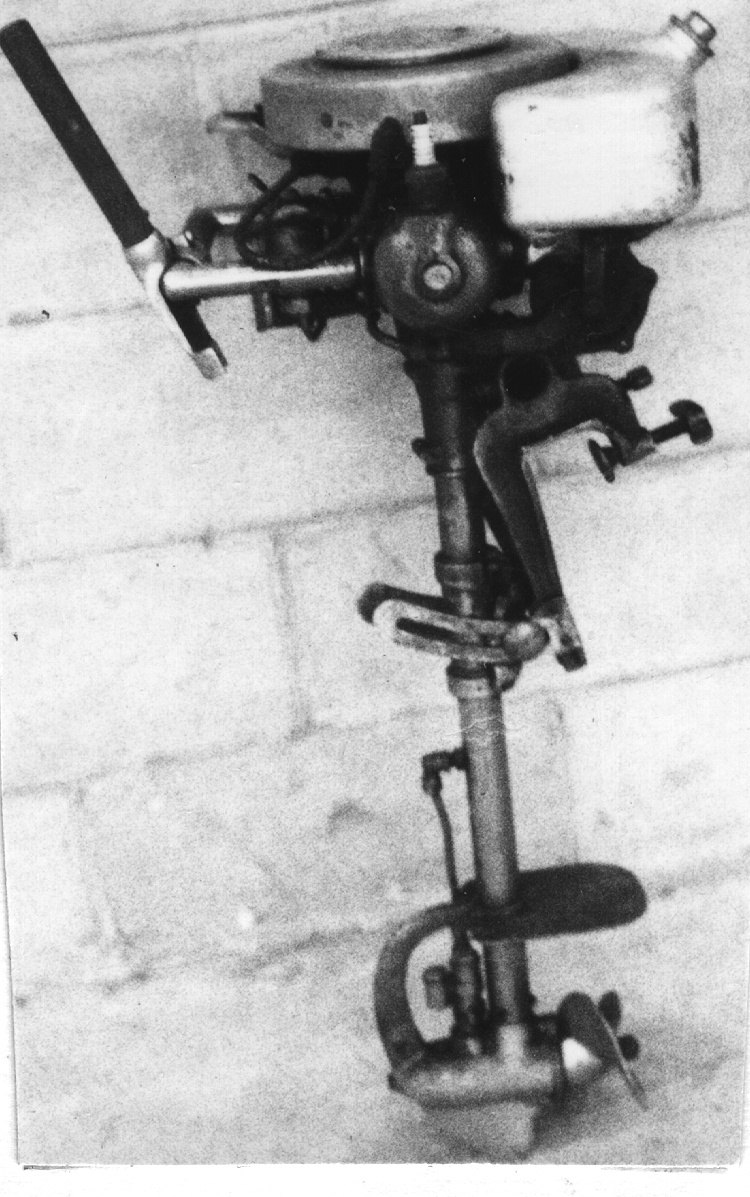Outboard motor
Use this image
Can I reuse this image without permission? Yes
Object images on the Ingenium Collection’s portal have the following Creative Commons license:
Copyright Ingenium / CC BY-NC-ND (Attribution-NonCommercial 4.0 International (CC BY-NC 4.0)
ATTRIBUTE THIS IMAGE
Ingenium,
1975.0606.001
Permalink:
Ingenium is releasing this image under the Creative Commons licensing framework, and encourages downloading and reuse for non-commercial purposes. Please acknowledge Ingenium and cite the artifact number.
DOWNLOAD IMAGEPURCHASE THIS IMAGE
This image is free for non-commercial use.
For commercial use, please consult our Reproduction Fees and contact us to purchase the image.
- OBJECT TYPE
- 2 CYL/OPPOSED TWIN/2 LL
- DATE
- 1925–1926
- ARTIFACT NUMBER
- 1975.0606.001
- MANUFACTURER
- JOHNSON MOTORS
- MODEL
- A-25
- LOCATION
- South Bend, Indiana, United States of America
More Information
General Information
- Serial #
- A18156
- Part Number
- 1
- Total Parts
- 1
- AKA
- N/A
- Patents
- N/A
- General Description
- ALUMINUM, ALLOY, CAST IRON
Dimensions
Note: These reflect the general size for storage and are not necessarily representative of the object's true dimensions.
- Length
- 89.0 cm
- Width
- 33.0 cm
- Height
- N/A
- Thickness
- N/A
- Weight
- N/A
- Diameter
- N/A
- Volume
- N/A
Lexicon
- Group
- Marine Transportation
- Category
- Motive power
- Sub-Category
- N/A
Manufacturer
- AKA
- JOHNSON MOTOR
- Country
- United States of America
- State/Province
- Indiana
- City
- South Bend
Context
- Country
- Unknown
- State/Province
- Unknown
- Period
- UNKNOWN
- Canada
-
The Johnson brothers crafted their first marine engine in a barn in Terre Haute, IN, in 1908. The company’s first outboard motor, a 2-hp twin-engine made of lightweight aluminum alloys, was produced on December 19, 1921. On May 8th, 1928, Canadian Johnson Motor Company Limited established its first location in Peterborough, Ontario. The manufacturing and assembly operations were initially located on the site of the present-day Canadian Canoe Museum. In 1935 Outboard Marine Corporation (OMC) bought the company. OMC was already an amalgamation of three merged companies (ELTO, Evinrude and another competitor) by the time it had bought the Johnson Motor Company. By 1959, the company had expanded to over 400, 000 square feet and was providing employment to over 1600 people. En 1908 Les frères Johnson ont fabriqué leur premier moteur marin en Terre Haute, IN. En décembre 1921 ils ont fabriqué un moteur à combustion à deux cylindres avec une puissance de deux qui étaient construits avec de l'alliage d'aluminium légère. Le 8 Mai, 1928 la compagnie nommée Canadian Johnson Motor Company Limited a établi une usine à Peterborough. L'usine était située ou le Musée des Canoës du Canada est installé aujourd'hui. En 1935 Outboard marine Corporation (OMC) a acheté la compagnie. OMC faisait déjà parti d’une fusion de trois compagnies (Elto, Evinrude et un autre compétiteur) quand ils ont acheté la compagnie Johnson Motor. Rendu en 1959 la compagnie avait eu tellement de succès qu'il avait plus de 1600 employées et a augmenté son usine a 400,000 pieds carrés. - Function
-
This artifact functions as a small internal combustion 2-cylinder 2 Horsepower engine. This artifact can be attached to the stern of a small boat. Cet artefact est conçu pour être attaché à la poupe d'un petit bateau. L'objet est un moteur à combustible qui a deux cylindres et un moteur avec une Puissance de deux. - Technical
-
In 1922, the Johnson brothers turned their attention to a small two-cylinder air-cooled motor, which they modified for use as a bicycle helper engine; these motorized bicycle attachments became known as Johnson Motor Wheels. Lou Johnson repurposed some of the Motor Wheel’s engine for a new invention: an outboard motor, and the result was a water-cooled 2-cylinder outboard weighing only 35lbs, significantly lighter than the bulky row boat motors of that time. The Johnson Waterbug or Light Twin introduced several groundbreaking features that are now commonplace but were revolutionary in 1922; notably, it incorporated a reliable flywheel magneto from the Quick Action Magneto Co. in South Bend, Indiana. Another innovative feature was the use of a rope for starting the motor, setting a trend among competitors who used cumbersome knobs or straps. En 1922 les frères Johnson ont modifié un moteur à deux cylindres refroidis à l'air pour fonctionner comme un moteur à aide bicycle. Ces attachements motorisés pour bicyclette ont été nommées Johnson Motor Wheels par leur compagnie. Lou Johnson a adapté la technologie de ces moteurs pour une nouvelle invention : le moteur hors-bord. Le résultat net de son expérience était un moteur à deux-cylindres qui était refroidi à l'eau et qui pesait seulement 35 livres. Le moteur était incroyablement léger a comparé aux moteurs encombrant en utilisation sur les bateaux à rames à cette époque. En 1922 le Johnson Waterbug ou Light Twin a introduit plusieurs additions révolutionnaires qui sont maintenant la norme pour les moteurs hors-bord. Notamment, un volant magnétique ainsi qu’une corde de lancement à place des sangles plus encombrant utilisé par des compétiteurs. - Area Notes
-
Unknown
Details
- Markings
- N/A
- Missing
- BROKEN CASTING, ON LOWER UNIT
- Finish
- Unknown
- Decoration
- N/A
CITE THIS OBJECT
If you choose to share our information about this collection object, please cite:
JOHNSON MOTORS, Outboard motor, circa 1925–1926, Artifact no. 1975.0606, Ingenium – Canada’s Museums of Science and Innovation, http://collection.ingeniumcanada.org/en/id/1975.0606.001/
FEEDBACK
Submit a question or comment about this artifact.
More Like This
